Feed aggregator
Snippet – Tarnished Glory (Morningstar III)
Prologue I
From: Leo Morningstar: A Critical Analysis. Baen Historical Press. Daybreak. Year 307.
Given his importance to the events of the critical period that reshaped the Daybreak Republic/Empire in a manner few beyond all hope of repair, it is perhaps not surprising that generations of historians, psychologists, and revisionists have visited and revisited the early years of a man who was both a catalyst for change and, at the same time, an earnest fighter for a conservative system that had not always been very kind to him. There is no shortage of commentary and analysis on his early career, ranging from detailed military histories to personality assessments that veer between the reasonable to the outrageous. Leo Morningstar has been branded a hero, a villain, and everything in-between. Indeed, it is a curious take on his life and career that he was both a great hero and a villain.
There is little doubt about the outline of his early life. His father was a war hero who died in action, leaving him under the care of his mother and the patronage of Captain – later Grand Senator – Grand Senator (Admiral) Sullivan. Although of common birth, at least as far as Daybreak was concerned, the combination of parentage and patronage ensured that Leo Morningstar would not only attend the Naval Academy but also survive a fight with then-Senior Cadet Francis Blackthrone that would otherwise have seen in expelled. The relationship between Leo and Francis Blackthrone would not end there, and their rivalry would cast a long shadow over the events of the following decade.
Seemingly having learned his lessons, Leo threw himself into training and graduated at the top of his class three years out of four, barely missing the chance to claim the Marty Sue Prize For Extreme Cleverness through a percentage point. A bright future beckoned for the young man, only to be swept away when it was discovered that he was having an affair with Fleur O’Hara, the wife of Commandant O’Hara. Unwilling to allow Leo to take part in the graduation ceremony, unable to find a way to demote him for bringing the Academy into dispute, Deputy Commandant Horace Valerian engineered an early promotion for Leo that came with a sting in the tail. On one hand, he would be put in effective command of RSS Waterhen, an outdated destroyer whose captain had effectively abandoned his post shortly after his assignment. On the other, he would be expected to take his new ship to the Yangtze Sector – hundreds of light years from Daybreak – and go into de facto exile.
It was not the first time that Leo’s libido had gotten him into trouble. It would not be the last.
His enemies thought they had engineered his effective destruction. They severely underestimated their target. Leo threw himself into doing his duty, escorting convoys, hunting down pirates, and eventually uncovering a plot to separate the sector from Daybreak and either demand better treatment or outright independence. Despite some missteps, including allowing himself to start a relationship with a young woman who later turned out to be one of the masterminds of the rebel plot, Leo successfully defended Daybreak’s presence in the sector and convinced his superiors to send reinforcements.
This may not have worked in his favour. The reinforcement squadron was commanded by Commodore Alexander Blackthrone, an uncle to Lieutenant-Commander Francis Blackthrone, and he wasted no time putting Leo in his place. His nephew was put in command of RSS Waterhen and Leo himself was expected to serve as his rival’s XO. The deployment did not go smoothly. Francis Blackthrone was ill-prepared for command, and made a handful of mistakes that eventually resulted in the near-destruction of the ship. Waterhen was only saved by Leo’s quick thinking.
One might expect this to win some plaudits and respect from a commanding officer. Instead, Francis Blackthrone assigned Leo to serve as naval liaison officer on Boulogne, a planet on the verge of civil war. Leo rapidly found himself on the front lines of a war when one side took advantage of Daybreak’s distraction to try to renegotiate the peace agreement that had been forced on them at gunpoint. Facing the near-total destruction of Daybreak’s allies, Leo devised a plan to turn the war around and decapitate the enemy forces. This plan was successful … but, in the meantime, Waterhen had been hijacked by rebel forces. Leo was forced to gamble everything on returning to his former ship, defeating the rebels, and returning to report to his superiors.
This victory did bring him some respect from Commodore Blackthrone. Leo’s command of Waterhen was confirmed (Francis, severely injured, was transferred to medical facilities on Yangtze). However, the ship was severely damaged by the final engagement and her crew – including Leo himself – were allowed a few weeks of leave before returning to their vessel. It should have been a time to relax. For Leo, a man of action, it was deeply boring. He was chaffing at the bit within a week.
Thankfully, unknown to him, he was about to meet a man who would be of singular importance in his future career… and embark on a mission that would change his life forever.
Prologue II
Gayle burned.
It was hard, very hard, to keep the rage and frustration from showing on her face as the shuttle neared her destination. She’d spent nearly a decade, since her father had brought her into the fold, working to undermine Daybreak’s control of the Yangtze Sector and ensure a better deal for locals who would otherwise be ruthlessly exploited by the most expansionist empire in human history, only to see the whole edifice come crashing down through the determination of a lone starship captain. Not even a real captain, to add insult to injury. Gayle didn’t pretend to understand the politics that had put a young man, barely out of his teens, in command of a warship, but she had to admit Daybreak had made a good call. Leo Morningstar had exposed the plot, destroyed several rebel warships, killed her father and forced Gayle herself to flee. And to think …
She ground her teeth, feeling the anger gnawing at her. She’d worked hard to present herself in a manner that would appeal to his prejudices, to make him want to like her and try to save her, and it had all come crashing down. She had known it was a gamble, when the rebels had taken Leo Morningstar into custody, but she’d thought she had it all under control. He hadn’t realised she was more than just a pretty face, not until it was too late, and she’d hoped their relationship would convince him to join her. The plot had always been risky – and they’d known they could easily lose right from the start – and the open support of the ranking officer in the sector could have made the difference between success and failure. And she’d failed. Her world remained in Daybreak’s clutches, her father was dead and the family corporation under new management … and she was on the run. She didn’t know if Daybreak knew she’d survived, but they hadn’t found a body. They’d be wise to assume she was still alive.
Not that there’d be much to recover from an exploding starship, she thought, the anger giving way to bitterness. Her father had died on the outdated heavy cruiser, his body vaporised. They’d done what they could to convince investigators every named figure in the plot had been on that ship, but the story was just a little too convenient. And they know there’s a growing rebellion even if they don’t know everyone involved.
It would be easy to give up, she reflected. She was a young woman with plenty of useful skills … skills she’d been careful to hide from Leo Morningstar, at least until the masks were off and they saw each other clearly for the first time. Her papers marked her out as a qualified technician and starship engineer, ensuring she could make a living almost anywhere. She could even find a homestead on a stage-one colony world, running a farm and raising a small army of children and stepping out of history once and for all. She wasn’t tempted. She knew how much her father had sacrificed, and the rest of his allies, in a desperate bid to save the sector from the empire. If they had been able to secure their position, and ask for membership as an autonomous world …
Bad rolls of the dice are inevitable, she thought, sourly. Leo had said that once, when he’d talked about his exile from Daybreak. An exile to glory, more like. If Leo wasn’t the most famous young man of his generation, it was a reflection on the enemy’s media rather than the young man himself. You just have to pick yourself up, learn from the experience, and move on.
She let out a breath as the shuttle docked, the gravity field shivering slightly. She wasn’t one to give up. Daybreak knew they existed now, true, but they wouldn’t change their approach to the sector just because some locals objected to being annexed. There was even a theory going round the underground arguing that Daybreak had deliberately baited the rebels into striking, in order to expose and destroy them. It might well be true. Leo hadn’t known anything of it, Gayle was sure, but he was hardly the most subtle thinker. His superiors might have had more in mind when they sent him into exile than just getting rid of him. Even if they hadn’t … it had paid off for them.
The hatch hissed open. A masked figure appeared, beckoning for her to stand and follow him. Gayle unbuckled herself and stood, feeling the deck shifting slightly below her feet … a slightly lower than normal gravity field, unusual beyond the edge of civilised space. It frustrated her, sometimes, that she had no idea who their backers truly were, but she understood the importance of secrecy. Daybreak wouldn’t hesitate to drop a hammer – or a flurry of kinetic projectiles – on any world that backed the rebels, and very few autonomous worlds could stand up to the Daybreak Navy for long. Their backers had to remain unknown, even to her. What she didn’t know she couldn’t be made to tell.
Her escort led her through two airlocks and into a space station. The bulkheads were bare, scoured of anything that might identify the station’s designers. It was probably pointless – most ships and stations in the region had passed through several pairs of hands before reaching their final destination – but it was better to be careful. Daybreak’s investigators had uncovered a handful of assets Gayle, and her father, had thought well-hidden. If they got a solid ID on a ship or a station, they might just be able to trace it back to the buyer.
The conference room was as bare as the rest of the station, a simple metal table flanked by two metal chairs. A tray sat on the table, holding a jug of water and a pair of simple plastic glasses, but there were no other comforts. There wasn’t even a holographic projector. Gayle’s lips twitched as she took her seat. The Cognoscenti – it was the only name she’d ever been given – were taking paranoia a little too far. If the space station was uncovered, and the crew failed to destroy it, the barren compartment would be the least of their worries.
She took a moment to calm herself, then looked up as the other hatch hissed open. A figure stepped into the chamber, wearing a mask and robes that made it impossible to get any idea of everything from their gender to their figure. They could be a heavy-worlder with a genetically-engineered body, making the outfit very tight, or they could be a tiny space-dweller wearing garb that looked and felt like a tent. There were no markings on the outfit, nothing to suggest their homeworld. It crossed her mind to wonder if she were dealing with aliens. There were no intelligent races in the known universe – save for humanity, and humanity’s intelligence was often in question – but it wasn’t impossible. Dozens of worlds had given birth to higher-order animal life forms. Why not an intelligent race?
Not impossible, she told herself. Just very unlikely.
“Greetings,” the representative said. She’d expected a toneless voice, but the figure spoke with a very definite Daybreak accent. That little detail would put the cat amongst the pigeons, if she were captured and forced to talk. The accent was probably designed to taunt the investigators. It was a little too stereotypical to be wholly real. “I am Cognoscenti.”
“Greetings,” Gayle said, as the figure glided over and sat facing her. The voice was masculine, suggesting she was dealing with a man. Or a woman with altered vocal cords or a simple voice changer. Either was possible. “Thank you for seeing me.”
“We have supplied ships and repair services to your forces,” Cognoscenti said, without any further pleasantries. “You have lost several vessels in engagements with Daybreak. Worse, Daybreak is now aware that someone is funding your operations. Why should we continue to support you?”
Gayle took a moment to calm herself before answering. The tone was flat, rather than accusatory, but somehow that made it worse. She hated the thought of being dependent on anyone, let alone a mysterious group hiding behind a strange name, yet there was little choice. Yangtze had barely started to rebuild her space-based industry when Daybreak arrived and she’d been one of the most advanced planets in the sector. There was an entire underground economy, true, but there were limits to how much it could provide. Gayle wouldn’t care to trust a vessel produced in a secret yard, even assuming the yard managed to put a starship together in the first place. They needed their supporters, despite the risks.
“We lost a battle,” she conceded, without allowing a hint of her angry and frustration into her voice. “There’s no point in denying it. However, the war is not lost and the ultimate cause of the war remains unaddressed. If we do not fight, this sector will be annexed completely and you, whoever you are, will remain under their thumb. Forever.”
She waited, studying Cognoscenti. His mask hid his reaction and yet … he had to be worried. No autonomous world truly believed they would be allowed to remain autonomous forever, no matter the terms of their annexation into the empire. Daybreak had spent decades pushing its military and economic power into every last incorporated sector, ensuring its corporations had the edge over their local counterparts, and it was just a matter of time before they started doing the same to the autonomous worlds. They had to be tempting targets. Planets like New Washington and Edo were extremely wealthy, by interstellar standards. And they didn’t have the military power to defend themselves if Daybreak wanted the wealth for themselves.
“We still have a large reserve of manpower,” she added. “The United Front has been recruiting aggressively. We have thousands of motivated starship crewmen and soldiers, ready and willing to fight for the cause; they just needed to be trained, armed, and supplied with ships they can use to take the fight to the enemy. If you support us, we can liberate ourselves.”
Or ensure a constant running sore that’ll keep Daybreak from bullying you while they’re dealing with us, she added, in the privacy of her own mind. She wasn’t blind to the simple reality the Cognoscenti wouldn’t be funding the United Front if they didn’t stand to gain from their victory. Or even a prolonged and ultimately inconclusive conflict. If we buy time for you, you can make best use of it while our mutual enemy is distracted.
“Every ship we send does raise the spectre of the vessel being tracked back to its point of origin,” Cognoscenti pointed out. “Can you ensure it doesn’t happen?”
“The ships have passed through so many hands that tracing them is a difficult and ultimately impossible task,” Gayle pointed out. “Quite frankly, if that was a concern you wouldn’t have supplied us with any ships.”
She winced, inwardly. Her father and his allies had created a network of shell corporations and other measures to obtain some ships, passing the vessels through several hands to obscure their origins as much as possible. It wasn’t clear how well they’d covered their tracks. It was clear that many of those vessels had been outdated, dangerously vulnerable to modern warships. They’d refitted the starships as best they could, but still … Daybreak had the edge. That had to change.
Cognoscenti spoke with a quiet intensity. “It is vitally important that you move to destabilise the sector as much as possible, and for that we will increase our efforts to supply you. Daybreak must be distracted.”
Gayle allowed herself a tight smile. “If you continue your support, Daybreak will be more than just distracted,” she promised. The plan was risky, but what wasn’t? And if it allowed her to get a little personal revenge into the bargain … “I have a plan.”
“Very good,” Cognoscenti said. “Do not fail us.”
Chapter One
Leo hated to admit it, but he was bored.
Two weeks of shore leave felt like agony, and he was only halfway through. There was little to do on Yangtze that didn’t bring back memories of Gayle, and just how much of a fool he’d made of himself when he’d thought her a sweet young lady unfairly held back by her society, and in truth he would sooner be throwing himself into Waterhen’s refit than sitting in the bar nursing a glass of beer and feeling sorry for himself. He had no idea if Commodore Blackthrone was genuinely trying to punish Leo by insisting he took leave, or if he were genuinely trying to help, but it didn’t matter. He was bored and lonely and just plain desperate for something – anything – to happen.
He sighed as he sat back in his seat, allowing his eyes to wander the bar. It was a spacer’s bar: the air heavy with tobacco smoke, the drinks high in price and low in quality, spacer rotgut competing with local beer and a handful of dubious-looking bottles of wine. Leo had never heard of any of the brands, particularly the bottles marked Caballus Eniru, but none looked worth half the price. The barmaids didn’t look worth it either. Spacers going on leave after weeks in interstellar space developed new standards of beauty, but there were limits. Not that it would matter to a merchant spacer, he supposed. The spaceport strip was meant to separate the spacer from his money as quick and pleasantly as possible, and it did it very well. It just wasn’t suitable for him.
You’re being an ass, he told himself, curtly. Stop it.
His mood darkened. There was little to do. He didn’t fancy the brothel, or the entertainment complex, or even going for a wander around Yangtze City. It had expanded rapidly in the last six months, so quickly that Leo had wondered if he’d landed in the wrong place when he disembarked from the shuttle, but it still served largely as a transhipment point rather than a settlement in its own right. The new colonists were being farmed out as quickly as possible, rather than being allowed to remain in the city. It would be decades, at best, before the planet started developing real cities. Some planets never did.
Two men started shouting, loudly. Leo looked up, half-expecting a fight. He’d been in enough bar fights during his misspent youth and … he shook his head, cursing under his breath. He really was too bored. The days in which he could trade blows with a merchant spacer, spend the night in the clink and be released the following day to face a stern lecture from his instructors were over. He was Commander Morningstar now. He had to set a good example for everyone else.
Sure, his thoughts mocked. You can set an example of what not to do.
The brief conflict died away as the barmaids hurried over, breaking up the fighters before they could do more than shout at each other and separating them with practiced skill. Leo was mildly impressed. The barmaids back home generally hid behind the bar and called the Shore Patrol, who could be relied upon to stun first and ask questions later. But then, Yangtze was nowhere near as developed as Daybreak and there were still relatively few spacers passing through. It would change in the next few decades, he was sure. The sector had a great deal of potential. A little investment and technological help and it would be well on the way to success.
“Leo Morningstar?”
Leo flinched, one hand dropping to the pistol at his belt. The newcomer had snuck up on him while he was fighting … Boothroyd would make fun of him, respectfully of course, if he ever heard about it. The Sergeant Major was on a forced march with the new recruits, drilling them ruthlessly; Leo wished, suddenly, that he’d asked to accompany them. The march would be many things, but it wouldn’t be boring.
“Yes,” he said, looking up. “What can I do for you?”
The newcomer smiled and sat facing Leo. He was a middle-aged man, appearing to be in his late forties. The streak of grey in his brown hair leant him an air of simple dignity, as well as marking him as a Daybreaker. It was possible to use cosmetic surgery to turn yourself into the most breathtakingly attractive person in the world, but such vanity was frowned upon on Daybreak. His tunic was Daybreaker too, so plain Leo knew it was part of a deliberate attempt to present himself in a certain way. The only adornment was a service pin, pinned to his collar, that proved he’d done his service and earned citizenship. It could be anything from front-line combat to cleaning the sewers, Leo reflected, but it deserved respect all the same.
“I am Senator Tiberius Quinton,” the newcomer said. “It’s a pleasure to make your acquaintance.”
Leo blinked, then straightened automatically. He’d never been that keen on memorising the names and faces of citizens who ran for elected office, particularly the ones who’d done their service and retired rather than keeping their skin in the game, but even he had heard of Tiberius Quinton. He was not just a ‘new man,’ a man whose family had never entered politics before him; he was one of the very few senators who’d campaigned without support from the long-established families and patronage networks. His victory had been one hell of an impressive achievement. It had to have rankled some of the older families the wrong way.
“Likewise,” he managed. Quinton would have had military experience, then. His opponent would not have failed to make a song and dance about Quinton lacking moral fibre, if he hadn’t put his own ass in the line of fire once or twice. “I had no idea you were coming.”
“I’m travelling incognito,” Quinton said. “You’d better check my ID before we go any further.”
Leo felt himself flush as he took the badge of office and pressed it against his wristcom. It had been months since he’d seen a news report with Quinton’s face and it was just possible he was dealing with an imposter … the answer came back a moment later, the military datanet confirming Quinton’s true identity. Leo returned the badge and sat back in his chair, feeling oddly unsure of himself. Normally, there would be a ceremony for a senatorial visitor. The fact Quinton had apparently refused one was … interesting.
“You appear to be you,” he said. It wasn’t that uncommon for senators to brush shoulders with their constituents on Daybreak, but that was hundreds of light years away. “Why didn’t you announce your arrival?”
“I’m on a fact-finding mission, and it’s sometimes easier to learn what’s really going on if you don’t arrive as dramatically as possible,” Quinton said. He had a personable air that made Leo want to like him. “It’s very easy to find someone willing to tell me what they think I want to hear, harder to get the truth.”
“And many people can’t handle the truth,” Leo said. Commodore Blackthrone had not been pleased by Leo’s report covering his nephew’s many failings, although he’d been man enough not to punish Leo for imprudence. Unless the shore leave was punishment … “What sort of truth do you want to hear?”
Quinton reached into his pocket, produced a privacy generator, and placed it on the table. Leo felt a faintly uncomfortable sensation brushing against his eardrums as the generator activated, creating a faint haze of visual and electromagnetic distortion that should make it impossible for anyone to overhear them. Even lip-reading was supposed to be impossible. Leo reminded himself not to place too much faith in the device. The security and intelligence services of a dozen planets would be trying to find ways to beat the field, if they hadn’t already succeeded. They wouldn’t gloat about it if they had. They’d keep it to themselves as long as possible.
“Tell me,” Quinton said. “What do you think of this sector? Politically speaking?”
Leo kept his face under tight control. Daybreakers were taught to be direct … and Quinton had clearly taken those lessons to heart. And he’d opened with a tricky subject … Leo could easily get in trouble for answering honestly, although he had an excellent defence. It was a major crime to refuse to answer questions from a senator, if he posed them. He’d be fined heavily at the very least, and given he had enemies back home the consequences would likely be a great deal more severe.
“It’s hard to say,” Leo said, after a moment. “Some locals have accepted the annexation and are trying to work with us, to ensure the process is beneficial to both sides. Others resent the loss of their independence, fear what we might do to them, or … simply don’t like us. Most governments, from what I’ve seen, aren’t very pleased even if they benefit from our presence. Their people rarely support us.”
Quinton cocked his head. “How many demands do we make of them?”
“Obedience,” Leo said. “The sector doesn’t have that much to offer, not yet, but we demand they follow our rules and … I imagine it rankles, even if there are good reasons behind the rules. We push them around a lot, imposing our laws and demanding that they grant our people and corporations extraterritorial rights.”
“I don’t think you need to imagine at all,” Quinton said.
Leo sucked in his breath. Quinton was perceptive.
“No,” he said. “I know it for a fact.”
He sighed, inwardly. It was easy to understand what had driven Gayle and her father to take such desperate measures, gambling everything on a plot to force a better deal from the all-powerful empire forcing its way into their sector. He was a loyal Daybreaker, and he understood the reasoning behind the creation of a de facto empire, but he couldn’t help feeling they were storing up trouble for themselves. Daybreak had brought some benefits to the sector, from saving failing colonies to hunting down pirates, yet it had also brought severe disadvantages. And the benefits and disadvantages had not been spread evenly.
“No,” Quinton agreed. “Do you think there’s anything we can do about it?”
“No,” Leo said. He shook his head. “I mean … we could stop being us, but …”
He shrugged, helplessly. The Great Interstellar War had taught the human race a very important lesson. Political disunity could not be allowed, and while many worlds could handle their own internal affairs without interference they couldn’t be permitted to do things that would cause interstellar incidents, perhaps even a second war that would bring humanity to the brink of extinction once again. Sure, there were small changes that could be made, but … it would be difficult to convince Daybreak to change course. Too much money and political power was tied up in keeping matters just the way they were.
“We could keep from giving our corporations protection as they force their way into local markets,” he mused. “But will they go along with it?”
“They may have to,” Quinton said. “The current situation is unsustainable.”
Leo blinked. He’d heard it before, from rebels and dissidents, but to hear it from a Daybreaker was shocking. Quinton wouldn’t have completed his service, let alone run for office and won, if he hadn’t been deeply committed to making the system work. And yet, he was calling the existence of the entire system into question?
“The autonomous worlds are increasingly resentful,” Quinton said, quietly. “We tax them, we supervise them, we ensure they labour under the burden of unequal treaties … and yet, they have no say in our government. We strip them of their best and brightest, leaving them with the dregs as our society benefits from skilled, capable and determined immigrants. And when they dare complain about it, we send the military to give them a spanking. Why should they not hate and resent us?”
He paused, letting his words hang in the air. “And those worlds have at least some degree of freedom. What about the colonies and settlements that have no freedom at all?”
Leo felt disorientated, as if the discussion had taken a turn in a very unexpected direction. It was … part of him wanted to stand up and leave, fearing that Quinton was leading him into very dangerous waters, and part of him knew he had to listen. The whole affair was so strange he felt as though he’d walked through the looking glass into a world where up was down, white was black, and two plus two equalled banana. The Navy was comparatively understandable, if only because he’d been in uniform for the last five years. This …
He sucked in his breath. “Should you be talking to me about this?”
“Interesting question,” Quinton said. “You were the ranking officer in this sector. You’re a loyalist, and no one can suggest otherwise, but you’re also young enough not to be wedded to the way things are. And you’re clear-eyed enough to see the trouble we’re storing up for ourselves.”
Leo shivered. He’d had the exact same thought.
Quinton smiled, a brief sharp expression crossing his face before fading again. “And I am a Senator, with the right to ask questions of whomever I please,” he added. “Who can argue otherwise?”
“True,” Leo conceded. “But I am only one man.”
“And a hero, back home,” Quinton said. “Your word could influence the debates, when they take place.”
“If they do,” Leo said.
“I’m going to put my hat in the ring for Consul, in the next few years,” Quinton said. “It will be an interesting election season, to be sure. If I win, or one of the few who agree with me wins in my place, the matter will be raised. I suspect the vast majority of Daybreakers don’t understand how bad things are getting, even a mere few light years from home, and the debates will make the problem clear to them. Your voice will help influence matters, when the final vote is taken.”
My patron may have something to say about that, Leo thought. Where does he stand on the matter?
It wasn’t a question he could ask. Not openly.
“If you do, I’ll be happy to testify,” he said, instead. The Senate could compel testimony. There was no point in trying to resist. “However …”
“We will be going up against some very vested interests,” Quinton said, interrupting. “I won’t deny it. There are a great many politicians and military officers who benefit greatly from the current situation. But the constitution is not a suicide pact. We work to unite the human race to prevent another catastrophic war and laying the seeds for future conflict will eventually undermine our project beyond the point of return. We dare not fight a civil war. Even if we win, we lose.”
Leo nodded, slowly. The Daybreak Navy was powerful enough to take on every other navy in the known galaxy and win, but the cost would be high and there’d be little left of humanity’s former unity when the dust settled. He couldn’t even begin to work out how such a war would progress, or what would happen when – if – the combatants started using planet-killing weapons. Again. There were worlds that had been destroyed during the last war, their populations slaughtered ruthlessly, and few had recovered to the point they could be resettled. And planet-killing weapons were a hell of a lot more destructive now.
“Someone is already playing games,” he mused. “We still don’t know who is backing the rebels.”
“I could give you a list of suspects,” Quinton said. “If Intelligence has narrowed it down any, they haven’t told me.”
Leo made a face. Intelligence would have told Quinton, if they had a solid idea of just who had sold warships and weapons to the rebels. They would have been relieved to prove their worth after successive failures, too. But if they didn’t know … whoever was behind the operation had covered their tracks very well. There would be a breakthrough eventually, Leo was sure, but when? He had no idea.
“That has to be stopped,” Quinton added. “Our hard-liners are already using it as an excuse to avoid granting more latitude to incorporated worlds, and if we don’t hunt the rebels down and identify their backers they’re only going to get worse. The citizens won’t listen to pleas for mercy and understanding if they’re mourning their dead and counting the cost. Why should they?”
He leaned back in his chair. “I don’t mean to place all this on you,” he added. “And I don’t expect you to take a stand against your patron, if he chooses to do so. But if there is anything you can do to help defuse this ticking time bomb before it’s too late, please do. We have no idea when the bomb is going to explode, but it will.”
Leo nodded, his insides churning. “I understand.”
“Glad you do.” Quinton picked up the generator and pocketed it, then stood. “It was nice to meet you, Commander, and I hope I can count on your vote when the time comes.”
He strode away before Leo could answer, walking out of the bar. Leo stared after him, unsure what had just happened. He’d missed something, he was sure, but what? The whole conversation had left him on edge, as if he knew he was in trouble without being entirely sure for what. It was just … strange, and yet … he finished his drink and stood himself, brushing down his tunic. He’d go back to Naval HQ, read the news reports, and then wait for the call to duty.
But he couldn’t help feeling unsure, as he made his way into the open air, if he’d dodged a bullet …
Or stepped right into the line of fire.
Comment on A Beginner’s Guide to Drucraft #35: Introduction to Essentia Capacity by Benedict
In reply to Alicia W..
Yes, you can (slightly) increase essentia capacity through conditioning and strength training. But it’s usually not as much as people would like, and you eventually hit a point of diminishing returns where you can’t realistically push it any higher.
Comment on A Beginner’s Guide to Drucraft #35: Introduction to Essentia Capacity by Benedict
In reply to Kevin.
Good spot on your part. Yes, and you’ll find out the details this autumn when Book #3 comes out.
Comment on A Beginner’s Guide to Drucraft #35: Introduction to Essentia Capacity by Benedict
In reply to Skeeve.
There are some methods, though they’re pretty esoteric and aren’t in common use.
Rapture
Emily Maguire’s new novel, Rapture, takes as its inspiration the legend of Pope Joan, reworking key elements of the myth to create a brilliant work of great power and beauty.
The story starts in 9th-century Mainz, Germany, where Agnes lives with her father, an English priest. Although his vows include celibacy, Agnes’s father has slept with a local Saxon woman, but her death in childbirth has left him with the responsibility of raising his daughter. Unusually for that time, Agnes is given an education, listening to the intellectual debates at her father’s dinner table. At one of these dinners, she meets Brother Randulf, a monk from Fulda Abbey, and thus begins their relationship. After her father’s untimely death, Randulf agrees to help Agnes disguise herself as a man to become a Benedictine monk. As Brother John, Agnes starts down the path that will lead her to becoming the head of the Roman Catholic church.
There is so much that is compelling about this novel. The writing is absolutely beautiful and often poetic in its intensity. Characterisation is intimate and believable, and Agnes’s perspective gives us a close insight into her views and feelings. The power of the novel lies in this range: Agnes is a person of huge intellect, but it is also her journey to womanhood, something that she initially represses, that becomes a key focus – with tragic consequences. The novel always bears its research lightly; we see the often-conflicted world of the monasteries, alongside the disintegration of the Carolingian dynasty after the death of Charlemagne and the terrible consequences of the ensuing civil war. Maguire depicts some horrific moments with artistic sensitivity and, as much as violence is a part of this world, its inclusion is never gratuitous.
This is a fabulous book for any serious reader of literary historical fiction. Very highly recommended.
The post Rapture appeared first on Historical Novel Society.
State of Emergency
Singapore, 1963. What can you say about a young woman, Siew Li, who walked away, without warning, from her twin children and husband? Jeremy Tiang says a lot as he weaves an always gripping and mostly grim story of people caught up in the long conflict between the forces of the right and left.
That the right won and steered Singapore through a rapid and rare transformation from third world to first is well-known. The story of the communist insurgence in Singapore and Malaysia has faded from public memory, despite works such as Anthony Burgess’s Malayan Trilogy and Yeng Pway Ngon’s Unrest. State of Emergency is a rich addition to this meagre literature.
Told from multiple viewpoints, linked stories connect small, human acts and place them against a larger narrative of ordinary people trapped in times when torture, murder, and massacre are condoned. From the opening scene, the historical MacDonald House bombing, to a fictional end in which Siew Li’s son gets as close to her as he ever will, this is a remarkable blend of the sweep of history and the minutiae of people’s lives.
There is a version of history which peddles the idea that the American invasion of Vietnam could have learned much from the more successful British-led intervention in Malaya. The survivors of Batang Kali (one of whom becomes a narrator for a while) would, of course, disagree. This novel gives them – and the dead – a voice.
I was left wanting to know much more about Siew Li than the author has revealed, even though she tells the story for some stints. There are surprising bloopers about the time zone in Thailand and a jungle being silent at night. On the balance, these are immaterial defects in this great work of historical fiction.
The post State of Emergency appeared first on Historical Novel Society.
Heir of Light preview chapter
Women in SF&F Month 2025: Thank You and Links
Thank you so very much to all of this year’s guests for the excellent essays that made April 2025 another amazing Women in SF&F Month! And thank you to everyone who shared their posts and helped spread the word about this year’s series. It is always very much appreciated! This year’s series has ended, but I wanted to make sure there was a way to find all of the guest posts from 2025. This was the fourteenth annual Women in […]
The post Women in SF&F Month 2025: Thank You and Links first appeared on Fantasy Cafe.Business Musings: Putting Yourself Out There
I do most of my business writing on Patreon these days, but roughly once per month, I’ll put a post for free on this website. This post initially went live on my Patreon page on March 30, 2025. If you go to Patreon, you’ll find other posts like this one.
Putting Yourself Out ThereI’m gearing back up to return to the university in the fall. After a heck of a couple of years, I’m resuming my very slow attempt to get a few extra college degrees. Mostly, it’s an excuse to listen to people much younger than myself learn cool stuff, and an excuse to listen to people somewhat younger than myself share their expertise.
I get inspired by all of that.
I’m searching class schedules and realizing that my Spanish has gotten rusty again, so there is probably a summertime online refresher in the complicated tenses on the horizon. Even though, really, using the proper tense is not my problem so much as finding the correct vocabulary word. As in any word that might suit in that circumstance. The vocabulary was the first thing to flee my brain in the hiatus.
The thing that fascinates me the most, though, is watching the theater kids, particularly those who are (at 18, 19, or 20) convinced they’re going to be Actors! (and yes, the exclamation point is there for a reason). Most won’t be, not because they’re not good enough, but because they don’t listen well and they already think they’re God’s gift to the profession.
Mostly, I watch the ones who are insecurely secure in their dreams. These kids know exactly what they want in their lives, but they’re not sure they’re good enough to get there, so they work extra hard to figure out where they should be.
Sometimes it is not where they expect to be. In the theater department in particular, they have to take courses in all aspects of theater, and they sometimes learn that they love a part of theater that they hadn’t expected to like at all.
Surprisingly enough to my younger self, the one who didn’t have the courage to follow her musical abilities into a music degree or to even walk into the theater department at the University of Wisconsin, there are a lot of introverts in theater. Some of those introverts are writers, yes, but many go onstage and perform. Most, in fact, because they like being someone else in front of a group. It’s safer for them.
I get safe. It makes sense. I also get the fear of doing something revealing in front of a crowd. Mostly, that fear is gone for me now. Years of public speaking and talking on panels at sf conventions eased my mind.
Still, I was pretty shocked when I learned that a lot of actors and musicians suffer severe stage fright—people you’ve all heard of. If they have to go onstage, they sit in the dressing room and shake, or, in some cases, puke, because they’re so scared.
Had I known that…well, I doubt I would have done it, because puking is not something I voluntarily do, even for art…but it certainly would have eased my mind about what for me is relatively minor stage fright (in comparison to what these folks have).
Really, though, it’s what they are willing to do for their dreams and their art. They put themselves out there. More importantly, they figure out how to put themselves out there.
Every year, I have a conversation with at least one of my writing students who is terrified for some reason I never probe of putting their work in front of an audience. It always boils down to the fact that they’re afraid of being seen.
Sidebar from a nearly 65-year-old person who has worked in the arts her entire life: You are never seen. Not in your entirety. You may reveal all of your secrets and no one will care. Or they’ll comment on the portrayal of something minor, like the cat, and kvetch about that. It’s disappointing…and freeing.
However, the fear of being seen is a real and crippling fear, stopping a lot of prose writers and poets from following their dreams. Writers, unlike actors and musicians, can hide from the world. You can use a pen name, set up a legal entity that doesn’t use your real name (in an obvious manner), and never let your picture out into the world.
You can hide and publish your work. That’s the great thing about being a writer.
Usually when a writer figures out their own personal workaround, they put their work on the market, whatever it means for them.
I had one of those discussions this past week with a couple of different writers, some in person, one online, and when I photo-bombed the Writers’ Block webinar on Wednesday.
After that moment on the webinar, I spent a few hours thinking about how universal that fear is among writers. I’ve been in this business almost fifty years now, and I’ve seen it every year.
Then Dean and I watched a little bit of The Voice. We often watch something to rest our poor brains, usually at dinner. We’ve moved away from news (since there’s no way that will relax anyone), and gone to documentaries and The Voice.
We usually watch a segment or two and then go back to whatever we were doing. It will take us days to watch an entire 2-hour episode.
So that Wednesday night, we watched two members of Michael Bublé’s team duet on a song he wrote, called “Home.” Most of you know it as a super hit for Blake Shelton, but Bublé wrote the song and released it first.
Before the battle, Bublé talked a bit about writing the song. I can’t find the clip for that (mostly because I’m lazy, but also because it’s not that relevant), but I did find the one that caught my attention.
It got me thinking, and I went up to my office and made a list.
Most people who work in the arts realize that their work has to be put out into the world.
- People who write music must perform that music to sell that song/sonata/whatever. They may be terrible singers. They might be shy as hell. But they need to make, at minimum, a demo tape.
Often they perform their own work, in some kind of concert, and it is that work that ends up catapulting them into whatever level of fame they will reach.
And then, partly because of the vagaries of the (exceedingly complex) music copyright laws, they may hear someone else cover their song. They might be like John Legend, who has said on The Voice that he cannot listen to a cover of one of his songs fairly. Or they might be like Bublé who not only assigned the song, but was honored by the way the singers performed it.
- People who write plays write them with production in mind. What is the point of writing a play if it’s just going to languish on your desk? The problem, though, with writing a play is that when it is performed, there will be an area that the performers cannot do or cannot say.
In early drafts of a play, the playwright will have to be nearby to do some kind of work to smooth out that section. Sometimes it’s because the star is a doofus and can’t say a word with more than two syllables, but mostly it’s because that section of the show, when performed in previews, did not work. Neil Simon deals with this a lot in his autobiography Rewrites.
- People who write screenplays know that they’re writing something that will be performed as well. I had a very famous writer friend who wrote the wordiest damn screenplays ever and had, in his contract, a clause that said not a word could be touched.
After his early years in Hollywood (when he didn’t have enough clout to have that stupid contract), he rarely sold a screenplay and when he did, it was a charity sale from a friend who would buy the screenplay so that the writer could retain his Writers Guild membership. (And then the charity friend would do a shooting script.)
- Artists know that their paintings or photographs will be displayed or used on covers or put on t-shirts and prints and everything else.
Even the lowest of the low, graffiti “artists,” the ones who deface buildings, understand that their art needs to be seen. (I’m grumpy about graffiti these days since Vegas has a lot of wall murals all over the city—and the freakin’ graffiti “artists” will deface them. Grrr. I hate people who deface other people’s art.)
- Even young poets these days understand that they might have to get up in front of a crowd at a poetry slam and declaim their poem.
- And let’s not talk about comedians, who are also writers, who get in front of a crowd, and risk bombing night after night after night. Dean and I saw one of George Carlin’s shows in his last years, and Carlin was testing material so new that he was holding paper torn from a notepad.
Some of it was funny. Much of it was not.
Fiction writers—people who write novels and short stories—are the only artists I know who expect someone else to publish their work. Fiction writers, particularly those who are traditionally published, believe that all they have to do is write it, and everyone will flock to their feet.
That’s an ingrained attitude, and a hard one to fight. Heck, a lot of these writers are worried when they decide to give a copy of their manuscript to an editor at a book publishing house or (worse) an agent.
Writers do not expect to have their work in the public view, and often fear it.
I’m not sure why this is. I think it’s just part of the culture.
There are movies that show writers at work, and someone else dragging that “brilliant” manuscript off the writer’s desk. Or the writer “gets discovered” in an English class (never happened when I was in school). Or someone else mailed off their manuscript.
That myth goes hand in hand with the idea that writing should be hard and writers should suffer while doing it. That myth also goes with the idea that anything written fast is terrible and anything labored over is brilliant. And that myth goes with the idea that being prolific is a sin. (Tell that to Charles Dickens and William Shakespeare.)
Indie writers have a similar problem, but it’s couched in other terms. I don’t want to learn how to publish. That’s going to be hard. It’ll take too much money or I can’t do covers or…or…
Okay, I want to reply, whatever roadblocks you want to set up for your work, go ahead.
But real artists—be they musicians or painters or (yes) writers—need to have their work seen. They need to figure out how to get on that stage despite their stage fright and put their art in front of an audience.
Otherwise the art will be destroyed when they die, tossed out with the trash or deleted off their computers.
Oh…and let’s talk “covers” for a minute. Blake Shelton’s version of “Home” is very different from Bublé’s version, which is different from the duet that aired on The Voice this past week.
If you’re lucky as a writer, and if you put yourself out there, at some point, someone will want to do make another piece of art using yours as inspiration. Maybe a movie, maybe a TV show, maybe a dramatic reading or an audio book.
That’s a “cover” for lack of a better term. (It really is a derivative work, and it does fall in a different place in the copyright law, but go with me on this for a minute.) Instead of being all protective and saying that you must control all things, say yes…if the contract terms are good.
That’s all.
A singer doesn’t have to get permission to cover a song. I can sing “Home” badly in front of an audience if I want to, but if I get paid for it, I need to let the songwriter know that I’m going to be covering the song. The songwriter cannot say no.
It gets complicated after that. (Okay, it’s already complicated.) But implied in all of this is that the music needs to get in front of an audience. The play will be performed. The screenplay will become the basis for a movie. The painting will hang on a gallery wall.
What makes writer-artists any different? Why should we fight so hard to create something and then be afraid to put it in front of an audience. Particularly since we’ll never see that audience. We don’t have to hear from them either, if we keep our email private and don’t go on social media and don’t read reviews.
What makes fiction writers so dang delicate? Every artist has fears. All of us do. If we want to make a living at our art, we learn to overcome the fear.
It may take a dozen workarounds. It might mean the writing equivalent of puking in the bathroom before stepping on the stage. But if you value your own work and your own dreams, you learn how to get past whatever is stopping you.
Just like other performers do.
“Putting Yourself Out There,” copyright © 2025 by Kristine Kathryn Rusch. Picture of Gavin is there because, despite appearances, he’s terrified of putting himself out there.
Horde Alone And Inheritance Quiz
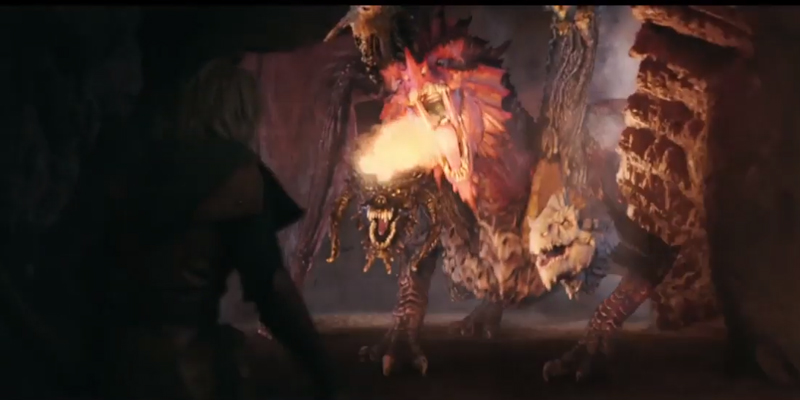
While House Andrews is away (hopefully somewhere gorgeous, where the only monsters are overloaded breakfast waffles), you’re left with me. Mwahahaha.
As always, the result is chaos! Fluffy, nerdy, deeply chalant chaos. Some of you are still trying to marry London though sheer force of headcanon – because would a guy with such good jawline really be capable of betrayal? And who among us hasn’t at one time suggested impromptu post-mortem thumb fingerprint extraction surgery in a toxic monster-infested cave trap? Long live Team Facts Be Damned, you’ve taught me all I know!
The comments have also been busy trying to figure out which Talent would serve us best beyond the gate.
I see you. I hear you. I have made you a thing: The Inheritance Talent Sorting Quiz.
Tried to write it as a ‘choose your own adventure’ story. That’s technically the tank-repairing grandma of LitRPG, so it should work. There are 6 possible results: assessor, tank, blade warden, scout, healer and mining foreman. Sorry chat, you can’t aim for the InBearitance. If we can’t all be Bear, no one can be Bear. It’s only fair.
Gentle note:This is just for fun. Every Talent plays a vital part in helping humanity survive. If you think getting a particular result might ruin your afternoon, it’s perfectly fine to skip the quiz. Bear still loves you.
Also: the newsletter doesn’t like the quiz plugin and sends it out in code. If you read this in email form and want to take the test, click here to come directly to the website.
Long may you survive the breach, BDH! Preferably with all your thumbs.
6668
The Inheritance Talent Quiz
When the first gate tore and monsters came out, everything went sideways. Humans freaked out. A few—not me, I’m a dog—woke up with powers no one could explain. Talents. Some became walking shields. Some turned into stabby-happy blade machines. Some just got very good at finding shinies.
The war is still going. It's time to find your place in the breach. Take the quiz. Get sorted. Don’t die. And bring dog biscuits.
— Bear, Winner of the "Best Girl" Guild Award, 3 years running
1 / 10
You step through the gate. The mist clings to your boots and the air smells like copper and rain. Ahead, alien darkness stretches, waiting.
Before you challenge it, you reach for your talisman. Every diver has one. Something to hold, remember, and ward off the worst. What do you carry?
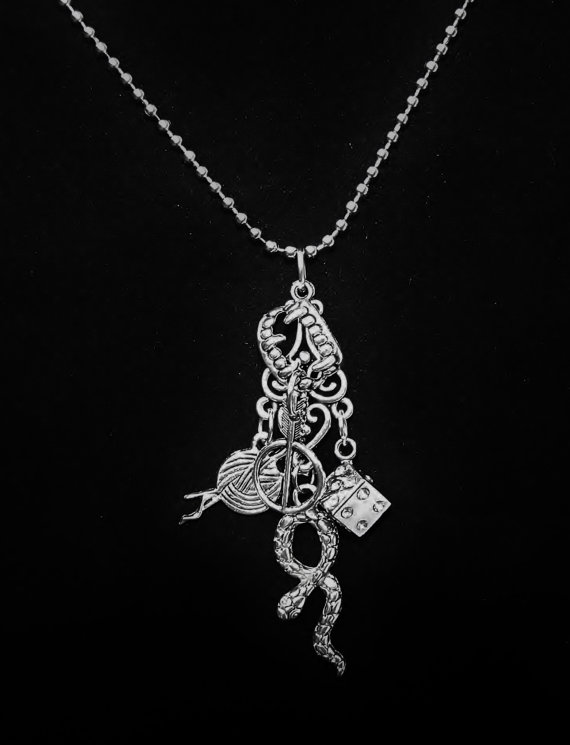 A dog tag from someone who didn’t make it. You wear it so no one forgets.
A coin you flip before each gate run. It doesn't matter what you call—it’s not about the outcome, it’s about the toss.
A nugget of rusty breach ore. Worth nothing. Kept it anyway. It hums sometimes.
A loop of thread, torn off from your oldest guild coveralls. It’s frayed. So are you. Still works.
A polished citrine crystal. Your mother said it brings prosperity. You mostly use it as a fidget spinner.
Just a ritual. You whisper your name once, then leave it behind. In the breach, no one can hold you, even by your shadow.
A dog tag from someone who didn’t make it. You wear it so no one forgets.
A coin you flip before each gate run. It doesn't matter what you call—it’s not about the outcome, it’s about the toss.
A nugget of rusty breach ore. Worth nothing. Kept it anyway. It hums sometimes.
A loop of thread, torn off from your oldest guild coveralls. It’s frayed. So are you. Still works.
A polished citrine crystal. Your mother said it brings prosperity. You mostly use it as a fidget spinner.
Just a ritual. You whisper your name once, then leave it behind. In the breach, no one can hold you, even by your shadow.
2 / 10
The first thing you encounter is a grove of bioluminescent fungi, stretching as far as the eye can see. Some pulse with variegated light; others twitch when the air moves. Do you…
 Immediately start cataloguing. Potential resource, possible danger—both matter.
Could it work as potential escape cover for later? Who knows what will be chasing you on your way out.
Clear a path through it—gently, if possible, forcefully if not.
Look for signs of medicinal properties. Even breach-nature heals if you know where to look.
Check whether it grows over something more valuable. You're in this for the income as much as the outcome.
Investigate the wider area while everyone is focused on the mushrooms. Someone has to.
Immediately start cataloguing. Potential resource, possible danger—both matter.
Could it work as potential escape cover for later? Who knows what will be chasing you on your way out.
Clear a path through it—gently, if possible, forcefully if not.
Look for signs of medicinal properties. Even breach-nature heals if you know where to look.
Check whether it grows over something more valuable. You're in this for the income as much as the outcome.
Investigate the wider area while everyone is focused on the mushrooms. Someone has to.
3 / 10
At the other end of the mushroom field, the ground starts to shake underfoot. Debris cascades down the cave walls. Ahead, a narrow tunnel splits left, and a spindly stone bridge stretches right across a deep chasm. Neither path looks safe. Make your choice.
 A "gut instinct" is your experience and perception telling you something before the brain has had the chance to formulate rational thought. You pick the path your intuition dictates.
Not all of you will be able to fit through the narrow tunnel. You test the bridge’s strength with your full weight. If it breaks, better it’s you than the others.
You guard the crossing until everyone else makes it through.
Survival is a priority, but resources are the whole reason the team is here. Which path leads to fewer regrets?
Bah. Rocks. You know rocks. Rocks fall, nobody died. They're overreacting.
Make sure everyone’s stable before committing to either direction.
A "gut instinct" is your experience and perception telling you something before the brain has had the chance to formulate rational thought. You pick the path your intuition dictates.
Not all of you will be able to fit through the narrow tunnel. You test the bridge’s strength with your full weight. If it breaks, better it’s you than the others.
You guard the crossing until everyone else makes it through.
Survival is a priority, but resources are the whole reason the team is here. Which path leads to fewer regrets?
Bah. Rocks. You know rocks. Rocks fall, nobody died. They're overreacting.
Make sure everyone’s stable before committing to either direction.
4 / 10
Good news: your whole team made it across the narrow stone bridge. Bad news: the air here crackles with static. Something hums in your teeth. Only one step into the eerie cold and your comm unit sputters and dies. HQ is gone. Radio silence. What do you do?
 Fall into leadership mode. Contact or no contact, someone needs to take responsibility for the team.
You have no authority here. You can only hope procedure will be maintained.
Mutter a curse and keep working. If it's important, they’ll find you.
Rally the team, keep panic from spreading.
Hold position and fortify your location until a new plan forms.
Double-time it to higher ground to assess the new area. Sooner or later, the order will be to move.
Fall into leadership mode. Contact or no contact, someone needs to take responsibility for the team.
You have no authority here. You can only hope procedure will be maintained.
Mutter a curse and keep working. If it's important, they’ll find you.
Rally the team, keep panic from spreading.
Hold position and fortify your location until a new plan forms.
Double-time it to higher ground to assess the new area. Sooner or later, the order will be to move.
5 / 10
You hear a faint tapping behind a collapsed wall in the new cavern. Comms are still down, so it could be someone from the assault team, trapped. How do you handle it?
 Leave the team to their work and go investigate from a side tunnel.
Clear the rubble with brute strength—there's no time to lose!
Weapon at the ready. Chances are it's foe, not friend.
Have your supplies at hand. You hope it's not too late for whoever's out there.
Use tools to clear rubble efficiently, like you were trained to do.
Evaluate the surroundings and probabilities before you even touch this new problem.
Leave the team to their work and go investigate from a side tunnel.
Clear the rubble with brute strength—there's no time to lose!
Weapon at the ready. Chances are it's foe, not friend.
Have your supplies at hand. You hope it's not too late for whoever's out there.
Use tools to clear rubble efficiently, like you were trained to do.
Evaluate the surroundings and probabilities before you even touch this new problem.
6 / 10
An ambush! There's monster fire as soon as you clear the suspicious tapping wall. Your instincts scream. You react with:
 Shield up, block as much of the damage as possible.
Fall back, analyzing the cavern for counterattack or escape options.
Find cover and prepare to deal with the inevitable.
Stealthily drop a grenade on the enemy from above. Play deadly games, win deadly prizes.
Rush the enemy, cutting your way out.
If it's heavy enough, it's a weapon. I'm not going down today.
Shield up, block as much of the damage as possible.
Fall back, analyzing the cavern for counterattack or escape options.
Find cover and prepare to deal with the inevitable.
Stealthily drop a grenade on the enemy from above. Play deadly games, win deadly prizes.
Rush the enemy, cutting your way out.
If it's heavy enough, it's a weapon. I'm not going down today.
7 / 10
You've escaped the monster ambush, but one of your teammates is down—bad leg wound, bleeding fast. What do you do?
 Assess the wound and try to stop the bleeding immediately.
Carry them without slowing down.
Clear a path for evacuation, with force if necessary.
Look around for that one lichen that acts as a painkiller. They must be in agony.
Find the fastest way back to the gate. Time matters.
Rig a makeshift stretcher out of whatever you have. You'll take turns getting them through this.
Assess the wound and try to stop the bleeding immediately.
Carry them without slowing down.
Clear a path for evacuation, with force if necessary.
Look around for that one lichen that acts as a painkiller. They must be in agony.
Find the fastest way back to the gate. Time matters.
Rig a makeshift stretcher out of whatever you have. You'll take turns getting them through this.
8 / 10
You've been in the breach for a day now and it's taking its toll. You find a mostly intact supply crate dropped by the assault team. What's the first thing you grab?
 The fresh pair of socks. Work conditions are hard and trench foot is harder!
A new can of high-vis spray paint. This breach is loaded!
Med supplies, the severe limb injury is draining ours.
Emergency rations. I need my strength.
Check for any weapons. Even with the safety protocols, we don't want them to fall in enemy hands.
The portable beacon. Escape routes matter more than loot.
The fresh pair of socks. Work conditions are hard and trench foot is harder!
A new can of high-vis spray paint. This breach is loaded!
Med supplies, the severe limb injury is draining ours.
Emergency rations. I need my strength.
Check for any weapons. Even with the safety protocols, we don't want them to fall in enemy hands.
The portable beacon. Escape routes matter more than loot.
9 / 10
You’ve reached the anchor chamber. It’s pulsing at critical mass. Once it ruptures, monsters will flood Earth. But this is also the first chamber you've come across any high-value ore. You have minutes. What do you do?
 Collapse the anchor. We'll find good ore in other breaches.
Slash at anything that comes from the anchor while others mine. We're in a blue threat-level breach, we can take these monsters.
Block the entrance. If creature wants to go through, it won't make it past you.
Get your team out alive. Nothing is worth dying for.
Move out. No looking back.
Secure the ore—fast. After all that, you’re not leaving empty-handed.
Collapse the anchor. We'll find good ore in other breaches.
Slash at anything that comes from the anchor while others mine. We're in a blue threat-level breach, we can take these monsters.
Block the entrance. If creature wants to go through, it won't make it past you.
Get your team out alive. Nothing is worth dying for.
Move out. No looking back.
Secure the ore—fast. After all that, you’re not leaving empty-handed.
10 / 10
As you stumble through the collapsing gate, bloodied and exhausted, one thought burns brightest in your mind. What was most important to you inside the breach?
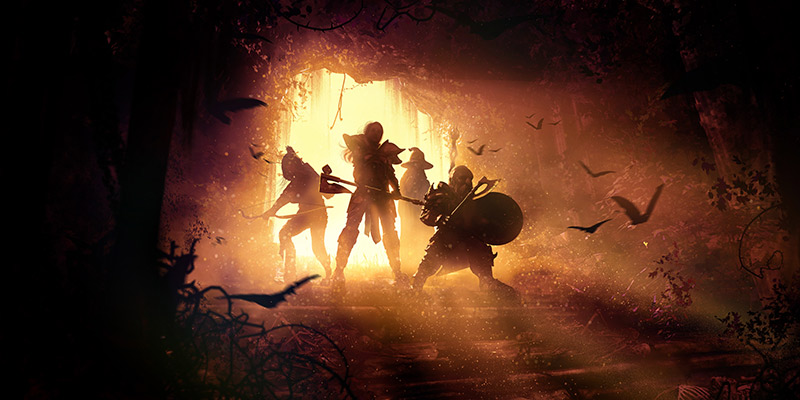 Giving the fight my all.
Understanding the breach so humanity can make the most out of it.
Protecting my team. Always.
Getting everyone out on their own feet.
Having something to show for it. Glory is good, but bonuses feed my kids better.
Outmaneuvering every threat the breach threw at me.
LinkedIn
Facebook
Twitter
VKontakte
div#ays-quiz-container-10 * { box-sizing: border-box; } /* Styles for Internet Explorer start */ #ays-quiz-container-10 #ays_finish_quiz_10 { } /* Styles for Quiz container */ #ays-quiz-container-10{ min-height: 350px; width:400px; background-color:#fff; background-position:center center;border-radius:0px 0px 0px 0px;box-shadow: 0px 0px 15px 1px rgba(0,0,0,0.4);border: none;} /* Styles for Navigation bar */ #ays-quiz-questions-nav-wrap-10 { width: 100%;border-radius:0px 0px 0px 0px;box-shadow: 0px 0px 15px 1px rgba(0,0,0,0.4);border: none;} #ays-quiz-questions-nav-wrap-10 .ays-quiz-questions-nav-content .ays-quiz-questions-nav-item a.ays_questions_nav_question { color: #000; border-color: #000; background-color: #fff; } #ays-quiz-questions-nav-wrap-10 .ays-quiz-questions-nav-content .ays-quiz-questions-nav-item.ays-quiz-questions-nav-item-active a.ays_questions_nav_question { box-shadow: inset 0 0 5px #000, 0 0 5px #000; } #ays-quiz-questions-nav-wrap-10 .ays-quiz-questions-nav-content .ays-quiz-questions-nav-item.ays-quiz-questions-nav-item-answered a.ays_questions_nav_question { color: #fff; border-color: #fff; background-color: #000; } #ays-quiz-questions-nav-wrap-10 .ays-quiz-questions-nav-content .ays-quiz-questions-nav-item a.ays_questions_nav_question.ays_quiz_correct_answer { color: rgba(39, 174, 96, 1); border-color: rgba(39, 174, 96, 1); background-color: rgba(39, 174, 96, 0.4); } #ays-quiz-questions-nav-wrap-10 .ays-quiz-questions-nav-content .ays-quiz-questions-nav-item a.ays_questions_nav_question.ays_quiz_wrong_answer { color: rgba(243, 134, 129, 1); border-color: rgba(243, 134, 129, 1); background-color: rgba(243, 134, 129, 0.4); } /* Styles for questions */ #ays-quiz-container-10 #ays_finish_quiz_10 div.step { min-height: 350px; } /* Styles for text inside quiz container */ #ays-quiz-container-10.ays-quiz-container .ays-questions-container .ays-start-page *:not(input), #ays-quiz-container-10.ays-quiz-container .ays-questions-container .ays_question_hint, #ays-quiz-container-10.ays-quiz-container .ays-questions-container label[for^="ays-answer-"], #ays-quiz-container-10.ays-quiz-container .ays-questions-container p, #ays-quiz-container-10.ays-quiz-container .ays-questions-container .ays-fs-title, #ays-quiz-container-10.ays-quiz-container .ays-questions-container .ays-fs-subtitle, #ays-quiz-container-10.ays-quiz-container .ays-questions-container .logged_in_message, #ays-quiz-container-10.ays-quiz-container .ays-questions-container .ays-quiz-limitation-count-of-takers, #ays-quiz-container-10.ays-quiz-container .ays-questions-container .ays-quiz-limitation-count-of-takers *, #ays-quiz-container-10.ays-quiz-container .ays-questions-container .ays_score_message, #ays-quiz-container-10.ays-quiz-container .ays-questions-container .ays_message{ color: #000; outline: none; } /* Quiz title / transformation */ #ays-quiz-container-10 .ays-fs-title{ text-transform: uppercase; font-size: 21px; text-align: center; text-shadow: none; } #ays-quiz-container-10 .ays-quiz-password-message-box, #ays-quiz-container-10 .ays-quiz-question-note-message-box, #ays-quiz-container-10 .ays_quiz_question, #ays-quiz-container-10 .ays_quiz_question *:not([class^='enlighter']) { color: #000; } #ays-quiz-container-10 textarea, #ays-quiz-container-10 input::first-letter, #ays-quiz-container-10 select::first-letter, #ays-quiz-container-10 option::first-letter { color: initial !important; } #ays-quiz-container-10 p::first-letter:not(.ays_no_questions_message) { color: #000 !important; background-color: transparent !important; font-size: inherit !important; font-weight: inherit !important; float: none !important; line-height: inherit !important; margin: 0 !important; padding: 0 !important; } #ays-quiz-container-10 .select2-container, #ays-quiz-container-10 .ays-field * { font-size: 15px !important; } #ays-quiz-container-10 .ays-fs-subtitle p { text-align: center ; } #ays-quiz-container-10 .ays_quiz_question p { font-size: 16px; text-align: center; } #ays-quiz-container-10 .ays_quiz_question { text-align: center ; margin-bottom: 10px; } #ays-quiz-container-10 .ays_quiz_question pre { max-width: 100%; white-space: break-spaces; } div#ays-quiz-container-10 .ays-questions-container .ays-field, div#ays-quiz-container-10 .ays-questions-container .ays-field input~label[for^='ays-answer-'], div#ays-quiz-container-10 .ays-questions-container .ays-modern-dark-question *, div#ays-quiz-container-10 .ays-questions-container .ays_quiz_question, div#ays-quiz-container-10 .ays-questions-container .ays_quiz_question *{ word-break: break-word; } #ays-quiz-container-10 .ays-quiz-timer p { font-size: 16px; } #ays-quiz-container-10 section.ays_quiz_redirection_timer_container hr, #ays-quiz-container-10 section.ays_quiz_timer_container hr { margin: 0; } #ays-quiz-container-10 section.ays_quiz_timer_container.ays_quiz_timer_red_warning .ays-quiz-timer { color: red; } #ays-quiz-container-10 .ays_thank_you_fs p { text-align: center; } #ays-quiz-container-10 .information_form input[type='text'], #ays-quiz-container-10 .information_form input[type='url'], #ays-quiz-container-10 .information_form input[type='number'], #ays-quiz-container-10 .information_form input[type='email'], #ays-quiz-container-10 .information_form input[type='tel'], #ays-quiz-container-10 .information_form textarea, #ays-quiz-container-10 .information_form select, #ays-quiz-container-10 .information_form option { color: initial !important; outline: none; margin-left: 0; background-image: unset; } #ays-quiz-container-10 .information_form input[type='checkbox'] { margin: 0 10px; outline: initial; -webkit-appearance: auto; -moz-appearance: auto; position: initial; width: initial; height: initial; border: initial; background: initial; } #ays-quiz-container-10 .information_form input[type='checkbox']::after { content: none; } #ays-quiz-container-10 .wrong_answer_text{ color:#ff4d4d; } #ays-quiz-container-10 .right_answer_text{ color:#33cc33; } #ays-quiz-container-10 .right_answer_text p { font-size:16px; } #ays-quiz-container-10 .wrong_answer_text p { font-size:16px; } #ays-quiz-container-10 .ays_questtion_explanation p { font-size:16px; } #ays-quiz-container-10 .ays_cb_and_a, #ays-quiz-container-10 .ays_cb_and_a * { color: rgb(0,0,0); text-align: center; } #ays-quiz-container-10 iframe { /*min-height: 350px;*/ } #ays-quiz-container-10 label.ays_for_checkbox, #ays-quiz-container-10 span.ays_checkbox_for_span { color: initial !important; display: block; } /* Quiz textarea height */ #ays-quiz-container-10 textarea { height: 100px; min-height: 100px; } /* Quiz rate and passed users count */ #ays-quiz-container-10 .ays_quizn_ancnoxneri_qanak, #ays-quiz-container-10 .ays_quiz_rete_avg{ color:#fff; background-color:#000; } #ays-quiz-container-10 .ays-questions-container > .ays_quizn_ancnoxneri_qanak { padding: 5px 20px; } #ays-quiz-container-10 div.for_quiz_rate.ui.star.rating .icon { color: rgba(0,0,0,0.35); } #ays-quiz-container-10 .ays_quiz_rete_avg div.for_quiz_rate_avg.ui.star.rating .icon { color: rgba(255,255,255,0.5); } #ays-quiz-container-10 .ays_quiz_rete .ays-quiz-rate-link-box .ays-quiz-rate-link { color: #000; } /* Loaders */ #ays-quiz-container-10 div.lds-spinner, #ays-quiz-container-10 div.lds-spinner2 { color: #000; } #ays-quiz-container-10 div.lds-spinner div:after, #ays-quiz-container-10 div.lds-spinner2 div:after { background-color: #000; } #ays-quiz-container-10 .lds-circle, #ays-quiz-container-10 .lds-facebook div, #ays-quiz-container-10 .lds-ellipsis div{ background: #000; } #ays-quiz-container-10 .lds-ripple div{ border-color: #000; } #ays-quiz-container-10 .lds-dual-ring::after, #ays-quiz-container-10 .lds-hourglass::after{ border-color: #000 transparent #000 transparent; } /* Stars */ #ays-quiz-container-10 .ui.rating .icon, #ays-quiz-container-10 .ui.rating .icon:before { font-family: Rating !important; } /* Progress bars */ #ays-quiz-container-10 #ays_finish_quiz_10 .ays-progress { border-color: rgba(0,0,0,0.8); } #ays-quiz-container-10 #ays_finish_quiz_10 .ays-progress-bg { background-color: rgba(0,0,0,0.3); } #ays-quiz-container-10 .ays-progress-value { color: #000; text-align: center; } #ays-quiz-container-10 .ays-progress-bar { background-color: #27AE60; } #ays-quiz-container-10 .ays-question-counter .ays-live-bar-wrap { direction:ltr !important; } #ays-quiz-container-10 .ays-live-bar-fill{ color: #000; border-bottom: 2px solid rgba(0,0,0,0.8); text-shadow: 0px 0px 5px #fff; } #ays-quiz-container-10 .ays-live-bar-fill.ays-live-fourth, #ays-quiz-container-10 .ays-live-bar-fill.ays-live-third, #ays-quiz-container-10 .ays-live-bar-fill.ays-live-second { text-shadow: unset; } #ays-quiz-container-10 .ays-live-bar-percent{ display:none; } /* Music, Sound */ #ays-quiz-container-10 .ays_music_sound { color:rgb(0,0,0); } /* Dropdown questions scroll bar */ #ays-quiz-container-10 blockquote { border-left-color: #000 !important; } /* Quiz Password */ #ays-quiz-container-10 .ays-start-page > input[id^='ays_quiz_password_val_'], #ays-quiz-container-10 .ays-quiz-password-toggle-visibility-box { width: 100%; margin: 0 auto; } /* Question hint */ #ays-quiz-container-10 .ays_question_hint_container .ays_question_hint_text { background-color:#fff; box-shadow: 0 0 15px 3px rgba(0,0,0,0.6); max-width: 270px; } #ays-quiz-container-10 .ays_question_hint_container .ays_question_hint_text p { max-width: unset; } #ays-quiz-container-10 .ays_questions_hint_max_width_class { max-width: 80%; } /* Information form */ #ays-quiz-container-10 .ays-form-title{ color:rgb(0,0,0); } /* Quiz timer */ #ays-quiz-container-10 div.ays-quiz-redirection-timer, #ays-quiz-container-10 div.ays-quiz-timer{ color: #000; text-align: center; } #ays-quiz-container-10 div.ays-quiz-timer.ays-quiz-message-before-timer:before { font-weight: 500; } /* Quiz buttons */ #ays-quiz-container-10 input#ays-submit, #ays-quiz-container-10 #ays_finish_quiz_10 .action-button, div#ays-quiz-container-10 #ays_finish_quiz_10 .action-button.ays_restart_button { background-color: #27AE60; color:#333; font-size: 17px; padding: 10px 20px; border-radius: 3px; white-space: nowrap; letter-spacing: 0; box-shadow: unset; white-space: normal; word-break: break-word; } #ays-quiz-container-10 input#ays-submit, #ays-quiz-container-10 #ays_finish_quiz_10 input.action-button { } #ays-quiz-container-10 #ays_finish_quiz_10 a[class~=ajax_add_to_cart]{ background-color: #fff; color:#333; padding: 10px 5px; font-size: 14px; border-radius: 3px; white-space: nowrap; border: 1px solid #333; } #ays-quiz-container-10 #ays_finish_quiz_10 .action-button.ays_check_answer { padding: 5px 10px; font-size: 17px !important; } #ays-quiz-container-10 #ays_finish_quiz_10 .action-button.ays_download_certificate { white-space: nowrap; padding: 5px 10px; } #ays-quiz-container-10 #ays_finish_quiz_10 .action-button.ays_arrow { color:#333!important; white-space: nowrap; padding: 5px 10px; } #ays-quiz-container-10 input#ays-submit:hover, #ays-quiz-container-10 input#ays-submit:focus, #ays-quiz-container-10 #ays_finish_quiz_10 .action-button:hover, #ays-quiz-container-10 #ays_finish_quiz_10 .action-button:focus { box-shadow: 0 0 0 2px #333; background-color: #27AE60; } #ays-quiz-container-10 .ays_restart_button { color: #333; } #ays-quiz-container-10 .ays_restart_button_p { display: flex; justify-content: center; flex-wrap: wrap; } #ays-quiz-container-10 .ays_buttons_div { justify-content: center; } #ays-quiz-container-10 .step:first-of-type .ays_buttons_div { justify-content: center !important; } #ays-quiz-container-10 input[type='button'], #ays-quiz-container-10 input[type='submit'] { color: #333 !important; outline: none; } #ays-quiz-container-10 #ays_finish_quiz_10 i.ays_early_finish.action-button[disabled]:hover, #ays-quiz-container-10 #ays_finish_quiz_10 i.ays_early_finish.action-button[disabled]:focus, #ays-quiz-container-10 #ays_finish_quiz_10 i.ays_early_finish.action-button[disabled], #ays-quiz-container-10 #ays_finish_quiz_10 i.ays_arrow.action-button[disabled]:hover, #ays-quiz-container-10 #ays_finish_quiz_10 i.ays_arrow.action-button[disabled]:focus, #ays-quiz-container-10 #ays_finish_quiz_10 i.ays_arrow.action-button[disabled] { color: #aaa !important; } #ays-quiz-container-10 .ays_finish.action-button{ margin: 10px 5px; } #ays-quiz-container-10 .ays-share-btn.ays-share-btn-branded { color: #fff; } /* Question answers */ #ays-quiz-container-10 .ays-field { border-color: #444; border-style: solid; border-width: 1px; box-shadow: none;flex-direction: row-reverse; } #ays-quiz-container-10 .ays-quiz-answers .ays-field:hover{ opacity: 1; } #ays-quiz-container-10 #ays_finish_quiz_10 .ays-field label.ays_answer_caption[for^='ays-answer-'] { z-index: 1; position:initial;bottom:0;} #ays-quiz-container-10 #ays_finish_quiz_10 .ays-field input~label[for^='ays-answer-'] { padding: 5px; } #ays-quiz-container-10 #ays_finish_quiz_10 .ays-field { margin-bottom: 10px; } #ays-quiz-container-10 #ays_finish_quiz_10 .ays-field.ays_grid_view_item { width: calc(50% - 5px); } #ays-quiz-container-10 #ays_finish_quiz_10 .ays-field.ays_grid_view_item:nth-child(odd) { margin-right: 5px; } #ays-quiz-container-10 #ays_finish_quiz_10 .ays-field input:checked+label:before { border-color: #27AE60; background: #27AE60; background-clip: content-box; } #ays-quiz-container-10 .ays-quiz-answers div.ays-text-right-answer { color: #000; } /* Answer maximum length of a text field */ #ays-quiz-container-10 .ays_quiz_question_text_message{ color: #000; text-align: left; font-size: 12px; } div#ays-quiz-container-10 div.ays_quiz_question_text_error_message { color: #ff0000; } /* Questions answer image */ #ays-quiz-container-10 .ays-answer-image { width:15em; height:150px; object-fit: cover; } /* Questions answer right/wrong icons */ #ays-quiz-container-10 .ays-field input~label.answered.correct:after{ content: url('http://ilona-andrews.com/wp-content/plugins/quiz-maker/public/images/correct.png'); } #ays-quiz-container-10 .ays-field input~label.answered.wrong:after{ content: url('http://ilona-andrews.com/wp-content/plugins/quiz-maker/public/images/wrong.png'); } #ays-quiz-container-10 .ays-field label.answered:last-of-type:after{ height: auto; left: 10px;top: 10px;} /* Dropdown questions */ #ays-quiz-container-10 .select2-container--default .select2-search--dropdown .select2-search__field:focus, #ays-quiz-container-10 .select2-container--default .select2-search--dropdown .select2-search__field { outline: unset; padding: 0.75rem; } #ays-quiz-container-10 #ays_finish_quiz_10 .ays-field .select2-container--default .select2-selection--single { border-bottom: 2px solid #27AE60; background-color: #27AE60; } #ays-quiz-container-10 .ays-field .select2-container--default .select2-selection--single .select2-selection__rendered, #ays-quiz-container-10 .ays-field .select2-container--default .select2-selection--single .select2-selection__placeholder, #ays-quiz-container-10 .ays-field .select2-container--default .select2-selection--single .select2-selection__arrow { color: #d8519f; } #ays-quiz-container-10 .ays-field .select2-container--default .select2-selection--single .select2-selection__rendered, #ays-quiz-container-10 .select2-container--default .select2-results__option--highlighted[aria-selected] { background-color: #27AE60; } #ays-quiz-container-10 .ays-field .select2-container--default, #ays-quiz-container-10 .ays-field .select2-container--default .selection, #ays-quiz-container-10 .ays-field .select2-container--default .dropdown-wrapper, #ays-quiz-container-10 .ays-field .select2-container--default .select2-selection--single .select2-selection__rendered, #ays-quiz-container-10 .ays-field .select2-container--default .select2-selection--single .select2-selection__rendered .select2-selection__placeholder, #ays-quiz-container-10 .ays-field .select2-container--default .select2-selection--single .select2-selection__arrow, #ays-quiz-container-10 .ays-field .select2-container--default .select2-selection--single .select2-selection__arrow b[role='presentation'] { font-size: 16px !important; } #ays-quiz-container-10 .select2-container--default .select2-results__option { padding: 6px; } /* Dropdown questions scroll bar */ #ays-quiz-container-10 .select2-results__options::-webkit-scrollbar { width: 7px; } #ays-quiz-container-10 .select2-results__options::-webkit-scrollbar-track { background-color: rgba(255,255,255,0.35); } #ays-quiz-container-10 .select2-results__options::-webkit-scrollbar-thumb { transition: .3s ease-in-out; background-color: rgba(255,255,255,0.55); } #ays-quiz-container-10 .select2-results__options::-webkit-scrollbar-thumb:hover { transition: .3s ease-in-out; background-color: rgba(255,255,255,0.85); } /* WooCommerce product */ #ays-quiz-container-10 .ays-woo-block { background-color: rgba(39,174,96,0.8); } #ays-quiz-container-10 .ays-woo-product-block h4.ays-woo-product-title > a { color: #000; } /* Audio / Video */ #ays-quiz-container-10 .mejs-container .mejs-time{ box-sizing: unset; } #ays-quiz-container-10 .mejs-container .mejs-time-rail { padding-top: 15px; } #ays-quiz-container-10 .mejs-container .mejs-mediaelement video { margin: 0; } /* Limitation */ #ays-quiz-container-10 .ays-quiz-limitation-count-of-takers { padding: 50px; } #ays-quiz-container-10 div.ays-quiz-results-toggle-block span.ays-show-res-toggle.ays-res-toggle-show, #ays-quiz-container-10 div.ays-quiz-results-toggle-block span.ays-show-res-toggle.ays-res-toggle-hide{ color: #000; } #ays-quiz-container-10 div.ays-quiz-results-toggle-block input:checked + label.ays_switch_toggle { border: 1px solid #000; } #ays-quiz-container-10 div.ays-quiz-results-toggle-block input:checked + label.ays_switch_toggle { border: 1px solid #000; } #ays-quiz-container-10 div.ays-quiz-results-toggle-block input:checked + label.ays_switch_toggle:after{ background: #000; } #ays-quiz-container-10.ays_quiz_elegant_dark div.ays-quiz-results-toggle-block input:checked + label.ays_switch_toggle:after, #ays-quiz-container-10.ays_quiz_rect_dark div.ays-quiz-results-toggle-block input:checked + label.ays_switch_toggle:after{ background: #000; } /* Hestia theme (Version: 3.0.16) | Start */ #ays-quiz-container-10 .mejs-container .mejs-inner .mejs-controls .mejs-button > button:hover, #ays-quiz-container-10 .mejs-container .mejs-inner .mejs-controls .mejs-button > button { box-shadow: unset; background-color: transparent; } #ays-quiz-container-10 .mejs-container .mejs-inner .mejs-controls .mejs-button > button { margin: 10px 6px; } /* Hestia theme (Version: 3.0.16) | End */ /* Go theme (Version: 1.4.3) | Start */ #ays-quiz-container-10 label[for^='ays-answer']:before, #ays-quiz-container-10 label[for^='ays-answer']:before { -webkit-mask-image: unset; mask-image: unset; } #ays-quiz-container-10.ays_quiz_classic_light .ays-field input:checked+label.answered:before, #ays-quiz-container-10.ays_quiz_classic_dark .ays-field input:checked+label.answered:before { background-color: #27AE60 !important; } #ays-quiz-container-10.ays_quiz_classic_light .ays-field input:checked+label.answered.correct:before, #ays-quiz-container-10.ays_quiz_classic_dark .ays-field input:checked+label.answered.correct:before { background-color: #27ae60 !important; } #ays-quiz-container-10.ays_quiz_classic_light .ays-field input:checked+label.answered.wrong:before, #ays-quiz-container-10.ays_quiz_classic_dark .ays-field input:checked+label.answered.wrong:before { background-color: #cc3700 !important; } /* Go theme (Version: 1.4.3) | End */ #ays-quiz-container-10 .ays_quiz_results fieldset.ays_fieldset .ays_quiz_question .wp-video { width: 100% !important; max-width: 100%; } /* Classic Dark / Classic Light */ /* Dropdown questions right/wrong styles */ #ays-quiz-container-10.ays_quiz_classic_dark .correct_div, #ays-quiz-container-10.ays_quiz_classic_light .correct_div{ border-color: green !important; opacity: 1 !important; background-color: rgba(39,174,96,0.4) !important; } #ays-quiz-container-10.ays_quiz_classic_dark .correct_div .selected-field, #ays-quiz-container-10.ays_quiz_classic_light .correct_div .selected-field { padding: 0px 10px 0px 10px; color: green !important; } #ays-quiz-container-10.ays_quiz_classic_dark .wrong_div, #ays-quiz-container-10.ays_quiz_classic_light .wrong_div{ border-color: red !important; opacity: 1 !important; background-color: rgba(243,134,129,0.4) !important; } #ays-quiz-container-10.ays_quiz_classic_dark .ays-field.checked_answer_div.wrong_div input:checked~label, #ays-quiz-container-10.ays_quiz_classic_light .ays-field.checked_answer_div.wrong_div input:checked~label { background-color: rgba(243,134,129,0.4) !important; } #ays-quiz-container-10 .ays_question_result .ays-field .ays_quiz_hide_correct_answer:after{ content: '' !important; } #ays-quiz-container-10 .ays-quiz-close-full-screen { fill: #000; } #ays-quiz-container-10 .ays-quiz-open-full-screen { fill: #000; } @media screen and (max-width: 768px){ #ays-quiz-container-10{ max-width: 100%; } div#ays-quiz-container-10.ays_quiz_modern_light .step, div#ays-quiz-container-10.ays_quiz_modern_dark .step { padding-right: 0px !important; padding-top: 0px !important; } div#ays-quiz-container-10.ays_quiz_modern_light div.step[data-question-id], div#ays-quiz-container-10.ays_quiz_modern_dark div.step[data-question-id] { background-size: cover !important; background-position: center center !important; } div#ays-quiz-container-10.ays_quiz_modern_light .ays-abs-fs:not(.ays-start-page):not(.ays-end-page), div#ays-quiz-container-10.ays_quiz_modern_dark .ays-abs-fs:not(.ays-start-page):not(.ays-end-page) { width: 100%; } #ays-quiz-container-10 .ays_quiz_question p { font-size: 16px; } #ays-quiz-container-10 .select2-container, #ays-quiz-container-10 .ays-field * { font-size: 15px !important; } div#ays-quiz-container-10 input#ays-submit, div#ays-quiz-container-10 #ays_finish_quiz_10 .action-button, div#ays-quiz-container-10 #ays_finish_quiz_10 .action-button.ays_restart_button { font-size: 17px; } div#ays-quiz-container-10 div.ays-questions-container div.ays-woo-block { width: 100%; } /* Quiz title / mobile font size */ div#ays-quiz-container-10 .ays-fs-title { font-size: 21px; } } /* Custom css styles */ /* RTL direction styles */
#ays-quiz-container-10 p {
margin: 0.625em;
}
#ays-quiz-container-10 .ays-field.checked_answer_div input:checked~label {
background-color: rgba(39,174,96,0.6);
}
#ays-quiz-container-10.ays_quiz_classic_light .enable_correction .ays-field.checked_answer_div input:checked+label,
#ays-quiz-container-10.ays_quiz_classic_dark .enable_correction .ays-field.checked_answer_div input:checked+label {
background-color: transparent;
}
#ays-quiz-container-10.ays-quiz-container.ays_quiz_classic_light .ays-questions-container .ays-field:hover label[for^='ays-answer-'],
#ays-quiz-container-10 .ays-field:hover{
background: rgba(39,174,96,0.8);
color: #fff;
transition: all .3s;
}
#ays-quiz-container-10 #ays_finish_quiz_10 .action-button:hover,
#ays-quiz-container-10 #ays_finish_quiz_10 .action-button:focus {
box-shadow: 0 0 0 2px rgba(255, 255, 255, 0.5), 0 0 0 3px #333;
background: #27AE60;
}
if(typeof aysQuizOptions === 'undefined'){
var aysQuizOptions = [];
}
aysQuizOptions['10'] = 'eyJxdWl6X3ZlcnNpb24iOiI4LjcuNCIsImNvcmVfdmVyc2lvbiI6IjYuOCIsInBocF92ZXJzaW9uIjoiOC4yLjI4IiwiY29sb3IiOiIjMjdBRTYwIiwiYmdfY29sb3IiOiIjZmZmIiwidGV4dF9jb2xvciI6IiMwMDAiLCJoZWlnaHQiOjM1MCwid2lkdGgiOjQwMCwiZW5hYmxlX2xvZ2dlZF91c2VycyI6Im9mZiIsImluZm9ybWF0aW9uX2Zvcm0iOiJkaXNhYmxlIiwiZm9ybV9uYW1lIjoib2ZmIiwiZm9ybV9lbWFpbCI6Im9mZiIsImZvcm1fcGhvbmUiOiJvZmYiLCJpbWFnZV93aWR0aCI6IiIsImltYWdlX2hlaWdodCI6IiIsImVuYWJsZV9jb3JyZWN0aW9uIjoib2ZmIiwiZW5hYmxlX3Byb2dyZXNzX2JhciI6Im9mZiIsImVuYWJsZV9xdWVzdGlvbnNfcmVzdWx0Ijoib2ZmIiwicmFuZG9taXplX3F1ZXN0aW9ucyI6Im9mZiIsInJhbmRvbWl6ZV9hbnN3ZXJzIjoib2ZmIiwiZW5hYmxlX3F1ZXN0aW9uc19jb3VudGVyIjoib24iLCJlbmFibGVfcmVzdHJpY3Rpb25fcGFzcyI6Im9mZiIsImVuYWJsZV9yZXN0cmljdGlvbl9wYXNzX3VzZXJzIjoib2ZmIiwicmVzdHJpY3Rpb25fcGFzc19tZXNzYWdlIjoiIiwicmVzdHJpY3Rpb25fcGFzc191c2Vyc19tZXNzYWdlIjoiIiwidXNlcl9yb2xlIjpbXSwiYXlzX3VzZXJzX3NlYXJjaCI6W10sImN1c3RvbV9jc3MiOiIiLCJsaW1pdF91c2VycyI6Im9mZiIsImxpbWl0YXRpb25fbWVzc2FnZSI6IiIsInJlZGlyZWN0X3VybCI6IiIsInJlZGlyZWN0aW9uX2RlbGF5IjowLCJhbnN3ZXJzX3ZpZXciOiJsaXN0IiwiZW5hYmxlX3J0bF9kaXJlY3Rpb24iOiJvZmYiLCJlbmFibGVfbG9nZ2VkX3VzZXJzX21lc3NhZ2UiOiIiLCJxdWVzdGlvbnNfY291bnQiOiIiLCJlbmFibGVfcXVlc3Rpb25fYmFuayI6Im9mZiIsImVuYWJsZV9saXZlX3Byb2dyZXNzX2JhciI6Im9mZiIsImVuYWJsZV9wZXJjZW50X3ZpZXciOiJvZmYiLCJlbmFibGVfYXZlcmFnZV9zdGF0aXN0aWNhbCI6Im9mZiIsImVuYWJsZV9uZXh0X2J1dHRvbiI6Im9mZiIsImVuYWJsZV9wcmV2aW91c19idXR0b24iOiJvZmYiLCJlbmFibGVfYXJyb3dzIjoib2ZmIiwidGltZXJfdGV4dCI6IiIsInF1aXpfdGhlbWUiOiJjbGFzc2ljX2xpZ2h0IiwiZW5hYmxlX3NvY2lhbF9idXR0b25zIjoib24iLCJmaW5hbF9yZXN1bHRfdGV4dCI6IiIsImVuYWJsZV9wYXNzX2NvdW50Ijoib24iLCJoaWRlX3Njb3JlIjoib24iLCJyYXRlX2Zvcm1fdGl0bGUiOiIiLCJib3hfc2hhZG93X2NvbG9yIjoiIzAwMCIsInF1aXpfYm9yZGVyX3JhZGl1cyI6IjAiLCJxdWl6X2JnX2ltYWdlIjoiIiwicXVpel9ib3JkZXJfd2lkdGgiOiIxIiwicXVpel9ib3JkZXJfc3R5bGUiOiJzb2xpZCIsInF1aXpfYm9yZGVyX2NvbG9yIjoiIzAwMCIsInF1aXpfbG9hZGVyIjoiZGVmYXVsdCIsInF1ZXN0X2FuaW1hdGlvbiI6InNoYWtlIiwiZW5hYmxlX2JnX211c2ljIjoib2ZmIiwicXVpel9iZ19tdXNpYyI6IiIsImFuc3dlcnNfZm9udF9zaXplIjoxNSwic2hvd19jcmVhdGVfZGF0ZSI6Im9mZiIsInNob3dfYXV0aG9yIjoib2ZmIiwiZW5hYmxlX2Vhcmx5X2ZpbmlzaCI6Im9mZiIsImFuc3dlcnNfcndfdGV4dHMiOiJkaXNhYmxlIiwiZGlzYWJsZV9zdG9yZV9kYXRhIjoib2ZmIiwiZW5hYmxlX2JhY2tncm91bmRfZ3JhZGllbnQiOiJvZmYiLCJiYWNrZ3JvdW5kX2dyYWRpZW50X2NvbG9yXzEiOiIjMDAwIiwiYmFja2dyb3VuZF9ncmFkaWVudF9jb2xvcl8yIjoiI2ZmZiIsInF1aXpfZ3JhZGllbnRfZGlyZWN0aW9uIjoidmVydGljYWwiLCJyZWRpcmVjdF9hZnRlcl9zdWJtaXQiOiJvZmYiLCJzdWJtaXRfcmVkaXJlY3RfdXJsIjoiIiwic3VibWl0X3JlZGlyZWN0X2RlbGF5IjoiMCIsInByb2dyZXNzX2Jhcl9zdHlsZSI6ImZpcnN0IiwiZW5hYmxlX2V4aXRfYnV0dG9uIjoib2ZmIiwiZXhpdF9yZWRpcmVjdF91cmwiOiIiLCJpbWFnZV9zaXppbmciOiJjb3ZlciIsInF1aXpfYmdfaW1hZ2VfcG9zaXRpb24iOiJjZW50ZXIgY2VudGVyIiwiY3VzdG9tX2NsYXNzIjoiIiwiZW5hYmxlX3NvY2lhbF9saW5rcyI6Im9mZiIsInNvY2lhbF9saW5rcyI6eyJsaW5rZWRpbl9saW5rIjoiIiwiZmFjZWJvb2tfbGluayI6IiIsInR3aXR0ZXJfbGluayI6IiIsInZrb250YWt0ZV9saW5rIjoiIiwiaW5zdGFncmFtX2xpbmsiOiIiLCJ5b3V0dWJlX2xpbmsiOiIifSwic2hvd19xdWl6X3RpdGxlIjoib24iLCJzaG93X3F1aXpfZGVzYyI6Im9uIiwic2hvd19sb2dpbl9mb3JtIjoib2ZmIiwibW9iaWxlX21heF93aWR0aCI6IiIsImxpbWl0X3VzZXJzX2J5IjoiaXAiLCJleHBsYW5hdGlvbl90aW1lIjoiNCIsImVuYWJsZV9jbGVhcl9hbnN3ZXIiOiJvZmYiLCJzaG93X2NhdGVnb3J5Ijoib2ZmIiwic2hvd19xdWVzdGlvbl9jYXRlZ29yeSI6Im9mZiIsImFuc3dlcnNfcGFkZGluZyI6IjUiLCJhbnN3ZXJzX2JvcmRlciI6Im9uIiwiYW5zd2Vyc19ib3JkZXJfd2lkdGgiOiIxIiwiYW5zd2Vyc19ib3JkZXJfc3R5bGUiOiJzb2xpZCIsImFuc3dlcnNfYm9yZGVyX2NvbG9yIjoiIzQ0NCIsImFuc19pbWdfaGVpZ2h0IjoiMTUwIiwiYW5zX2ltZ19jYXB0aW9uX3N0eWxlIjoib3V0c2lkZSIsImFuc19pbWdfY2FwdGlvbl9wb3NpdGlvbiI6ImJvdHRvbSIsImFuc3dlcnNfYm94X3NoYWRvdyI6Im9mZiIsImFuc3dlcnNfYm94X3NoYWRvd19jb2xvciI6IiMwMDAiLCJzaG93X2Fuc3dlcnNfY2FwdGlvbiI6Im9uIiwiYW5zd2Vyc19tYXJnaW4iOjEwLCJhbnNfcmlnaHRfd3JvbmdfaWNvbiI6ImRlZmF1bHQiLCJkaXNwbGF5X3Njb3JlIjoiYnlfcG9pbnRzIiwiZW5hYmxlX3J3X2FzbndlcnNfc291bmRzIjoib2ZmIiwicXVpel9iZ19pbWdfaW5fZmluaXNoX3BhZ2UiOiJvZmYiLCJmaW5pc2hfYWZ0ZXJfd3JvbmdfYW5zd2VyIjoib2ZmIiwiYWZ0ZXJfdGltZXJfdGV4dCI6IiIsImVuYWJsZV9lbnRlcl9rZXkiOiJvbiIsInNob3dfcmF0ZV9hZnRlcl9yYXRlIjoib24iLCJidXR0b25zX3RleHRfY29sb3IiOiIjMzMzIiwiYnV0dG9uc19wb3NpdGlvbiI6ImNlbnRlciIsImJ1dHRvbnNfc2l6ZSI6Im1lZGl1bSIsImJ1dHRvbnNfZm9udF9zaXplIjoiMTciLCJidXR0b25zX3dpZHRoIjoiIiwiYnV0dG9uc19sZWZ0X3JpZ2h0X3BhZGRpbmciOiIyMCIsImJ1dHRvbnNfdG9wX2JvdHRvbV9wYWRkaW5nIjoiMTAiLCJidXR0b25zX2JvcmRlcl9yYWRpdXMiOiIzIiwiZW5hYmxlX2F1ZGlvX2F1dG9wbGF5Ijoib2ZmIiwiZW5hYmxlX2xlYXZlX3BhZ2UiOiJvbiIsInNob3dfb25seV93cm9uZ19hbnN3ZXIiOiJvZmYiLCJwYXNzX3Njb3JlIjowLCJwYXNzX3Njb3JlX21lc3NhZ2UiOiI8aDQgc3R5bGU9XCJ0ZXh0LWFsaWduOiBjZW50ZXI7XCI+Q29uZ3JhdHVsYXRpb25zITxcL2g0PlxyXG48cCBzdHlsZT1cInRleHQtYWxpZ246IGNlbnRlcjtcIj5Zb3UgcGFzc2VkIHRoZSBxdWl6ITxcL3A+IiwiZmFpbF9zY29yZV9tZXNzYWdlIjoiPGg0IHN0eWxlPVwidGV4dC1hbGlnbjogY2VudGVyO1wiPk9vcHMhPFwvaDQ+XHJcbjxwIHN0eWxlPVwidGV4dC1hbGlnbjogY2VudGVyO1wiPllvdSBoYXZlIG5vdCBwYXNzZWQgdGhlIHF1aXohXHJcblRyeSBhZ2FpbiE8XC9wPiIsImFuc3dlcnNfb2JqZWN0X2ZpdCI6ImNvdmVyIiwicXVpel9tYXhfcGFzc19jb3VudCI6MSwicXVlc3Rpb25fZm9udF9zaXplIjoxNiwicXVpel93aWR0aF9ieV9wZXJjZW50YWdlX3B4IjoicGl4ZWxzIiwicXVlc3Rpb25zX2hpbnRfaWNvbl9vcl90ZXh0IjoiaGlkZSIsInF1ZXN0aW9uc19oaW50X3ZhbHVlIjoiIiwiZW5hYmxlX2Vhcmx5X2ZpbnNoX2NvbWZpcm1fYm94Ijoib24iLCJoaWRlX2NvcnJlY3RfYW5zd2VycyI6Im9mZiIsInF1aXpfbG9hZGVyX3RleHRfdmFsdWUiOiIiLCJzaG93X2luZm9ybWF0aW9uX2Zvcm0iOiJvbiIsInNob3dfcXVlc3Rpb25zX2V4cGxhbmF0aW9uIjoiZGlzYWJsZSIsImVuYWJsZV9xdWVzdGlvbnNfb3JkZXJpbmdfYnlfY2F0Ijoib2ZmIiwiZW5hYmxlX3NlbmRfbWFpbF90b191c2VyX2J5X3Bhc3Nfc2NvcmUiOiJvZmYiLCJlbmFibGVfc2VuZF9tYWlsX3RvX2FkbWluX2J5X3Bhc3Nfc2NvcmUiOiJvZmYiLCJzaG93X3F1ZXN0aW9uc19udW1iZXJpbmciOiJub25lIiwic2hvd19hbnN3ZXJzX251bWJlcmluZyI6Im5vbmUiLCJxdWl6X2xvYWRlcl9jdXN0b21fZ2lmIjoiIiwiZGlzYWJsZV9ob3Zlcl9lZmZlY3QiOiJvZmYiLCJxdWl6X2xvYWRlcl9jdXN0b21fZ2lmX3dpZHRoIjoxMDAsInF1aXpfdGl0bGVfdHJhbnNmb3JtYXRpb24iOiJ1cHBlcmNhc2UiLCJxdWl6X2ltYWdlX3dpZHRoX2J5X3BlcmNlbnRhZ2VfcHgiOiJwaXhlbHMiLCJxdWl6X2ltYWdlX2hlaWdodCI6IiIsInF1aXpfYmdfaW1nX29uX3N0YXJ0X3BhZ2UiOiJvZmYiLCJxdWl6X2JveF9zaGFkb3dfeF9vZmZzZXQiOjAsInF1aXpfYm94X3NoYWRvd195X29mZnNldCI6MCwicXVpel9ib3hfc2hhZG93X3pfb2Zmc2V0IjoxNSwicXVpel9xdWVzdGlvbl90ZXh0X2FsaWdubWVudCI6ImNlbnRlciIsInF1aXpfYXJyb3dfdHlwZSI6ImRlZmF1bHQiLCJxdWl6X3Nob3dfd3JvbmdfYW5zd2Vyc19maXJzdCI6Im9mZiIsInF1aXpfZGlzcGxheV9hbGxfcXVlc3Rpb25zIjoib2ZmIiwicXVpel90aW1lcl9yZWRfd2FybmluZyI6Im9mZiIsInF1aXpfc2NoZWR1bGVfdGltZXpvbmUiOiJVVEMtNiIsInF1ZXN0aW9uc19oaW50X2J1dHRvbl92YWx1ZSI6IiIsInF1aXpfdGFja2Vyc19tZXNzYWdlIjoiVGhpcyBxdWl6IGlzIGV4cGlyZWQhIiwicXVpel9lbmFibGVfbGlua2VkaW5fc2hhcmVfYnV0dG9uIjoib24iLCJxdWl6X2VuYWJsZV9mYWNlYm9va19zaGFyZV9idXR0b24iOiJvbiIsInF1aXpfZW5hYmxlX3R3aXR0ZXJfc2hhcmVfYnV0dG9uIjoib24iLCJxdWl6X2VuYWJsZV92a29udGFrdGVfc2hhcmVfYnV0dG9uIjoib24iLCJxdWl6X21ha2VfcmVzcG9uc2VzX2Fub255bW91cyI6Im9mZiIsInF1aXpfbWFrZV9hbGxfcmV2aWV3X2xpbmsiOiJvZmYiLCJxdWl6X21lc3NhZ2VfYmVmb3JlX3RpbWVyIjoiIiwicXVpel9wYXNzd29yZF9tZXNzYWdlIjoiIiwiZW5hYmxlX3NlZV9yZXN1bHRfY29uZmlybV9ib3giOiJvZmYiLCJkaXNwbGF5X2ZpZWxkc19sYWJlbHMiOiJvZmYiLCJxdWl6X2VuYWJsZV9wYXNzd29yZF92aXNpYmlsaXR5Ijoib2ZmIiwicXVlc3Rpb25fbW9iaWxlX2ZvbnRfc2l6ZSI6MTYsImFuc3dlcnNfbW9iaWxlX2ZvbnRfc2l6ZSI6MTUsInNvY2lhbF9idXR0b25zX2hlYWRpbmciOiIiLCJzb2NpYWxfbGlua3NfaGVhZGluZyI6IiIsInF1aXpfZW5hYmxlX3F1ZXN0aW9uX2NhdGVnb3J5X2Rlc2NyaXB0aW9uIjoib2ZmIiwicXVpel9tZXNzYWdlX2JlZm9yZV9yZWRpcmVjdF90aW1lciI6IiIsImJ1dHRvbnNfbW9iaWxlX2ZvbnRfc2l6ZSI6MTcsInF1aXpfYW5zd2VyX2JveF9zaGFkb3dfeF9vZmZzZXQiOjAsInF1aXpfYW5zd2VyX2JveF9zaGFkb3dfeV9vZmZzZXQiOjAsInF1aXpfYW5zd2VyX2JveF9zaGFkb3dfel9vZmZzZXQiOjEwLCJxdWl6X2VuYWJsZV90aXRsZV90ZXh0X3NoYWRvdyI6Im9mZiIsInF1aXpfdGl0bGVfdGV4dF9zaGFkb3dfY29sb3IiOiIjMzMzIiwicmlnaHRfYW5zd2Vyc19mb250X3NpemUiOjE2LCJ3cm9uZ19hbnN3ZXJzX2ZvbnRfc2l6ZSI6MTYsInF1ZXN0X2V4cGxhbmF0aW9uX2ZvbnRfc2l6ZSI6MTYsInF1aXpfd2FpdGluZ190aW1lIjoib2ZmIiwicXVpel90aXRsZV90ZXh0X3NoYWRvd194X29mZnNldCI6MiwicXVpel90aXRsZV90ZXh0X3NoYWRvd195X29mZnNldCI6MiwicXVpel90aXRsZV90ZXh0X3NoYWRvd196X29mZnNldCI6MiwicXVpel9zaG93X29ubHlfd3JvbmdfYW5zd2VycyI6Im9mZiIsInF1aXpfdGl0bGVfZm9udF9zaXplIjoyMSwicXVpel90aXRsZV9tb2JpbGVfZm9udF9zaXplIjoyMSwicXVpel9wYXNzd29yZF93aWR0aCI6IiIsInF1aXpfcmV2aWV3X3BsYWNlaG9sZGVyX3RleHQiOiIiLCJxdWl6X21ha2VfcmV2aWV3X3JlcXVpcmVkIjoib2ZmIiwicXVpel9lbmFibGVfcmVzdWx0c190b2dnbGUiOiJvZmYiLCJxdWVzdGlvbl9jb3VudF9wZXJfcGFnZSI6bnVsbCwicXVlc3Rpb25fY291bnRfcGVyX3BhZ2VfbnVtYmVyIjoiIiwibWFpbF9tZXNzYWdlIjoiIiwiZW5hYmxlX2NlcnRpZmljYXRlIjoib2ZmIiwiZW5hYmxlX2NlcnRpZmljYXRlX3dpdGhvdXRfc2VuZCI6Im9mZiIsImNlcnRpZmljYXRlX3Bhc3MiOiIwIiwiZm9ybV90aXRsZSI6IiIsImNlcnRpZmljYXRlX3RpdGxlIjoiPHNwYW4gc3R5bGU9XCJmb250LXNpemU6IDUwcHg7IGZvbnQtd2VpZ2h0OiBib2xkO1wiPkNlcnRpZmljYXRlIG9mIENvbXBsZXRpb248XC9zcGFuPiIsImNlcnRpZmljYXRlX2JvZHkiOiI8c3BhbiBzdHlsZT1cImZvbnQtc2l6ZTogMjVweDtcIj48aT5UaGlzIGlzIHRvIGNlcnRpZnkgdGhhdDxcL2k+PFwvc3Bhbj5cclxuXHJcbjxzcGFuIHN0eWxlPVwiZm9udC1zaXplOiAzMHB4O1wiPjxiPiUldXNlcl9uYW1lJSU8XC9iPjxcL3NwYW4+XHJcblxyXG48c3BhbiBzdHlsZT1cImZvbnQtc2l6ZTogMjVweDtcIj48aT5oYXMgY29tcGxldGVkIHRoZSBxdWl6PFwvaT48XC9zcGFuPlxyXG5cclxuPHNwYW4gc3R5bGU9XCJmb250LXNpemU6IDMwcHg7XCI+XCIlJXF1aXpfbmFtZSUlXCI8XC9zcGFuPlxyXG5cclxuPHNwYW4gc3R5bGU9XCJmb250LXNpemU6IDIwcHg7XCI+d2l0aCBhIHNjb3JlIG9mIDxiPiUlc2NvcmUlJTxcL2I+PFwvc3Bhbj5cclxuXHJcbjxzcGFuIHN0eWxlPVwiZm9udC1zaXplOiAyNXB4O1wiPjxpPmRhdGVkPFwvaT48XC9zcGFuPlxyXG48c3BhbiBzdHlsZT1cImZvbnQtc2l6ZTogMzBweDtcIj4lJWN1cnJlbnRfZGF0ZSUlPFwvc3Bhbj4iLCJtYWlsY2hpbXBfbGlzdCI6IiIsImVuYWJsZV9tYWlsY2hpbXAiOiJvZmYiLCJlbmFibGVfZG91YmxlX29wdF9pbiI6Im9mZiIsImFjdGl2ZV9kYXRlX2NoZWNrIjoib2ZmIiwiYWN0aXZlSW50ZXJ2YWwiOiIyMDI1LTA0LTMwIDA4OjM1OjExIiwiZGVhY3RpdmVJbnRlcnZhbCI6IjIwMjUtMDQtMzAgMDg6MzU6MTEiLCJhY3RpdmVfZGF0ZV9tZXNzYWdlIjoiVGhlIHF1aXogaGFzIGV4cGlyZWQhIiwiYWN0aXZlX2RhdGVfcHJlX3N0YXJ0X21lc3NhZ2UiOiJUaGUgcXVpeiB3aWxsIGJlIGF2YWlsYWJsZSBzb29uISIsImNoZWNrYm94X3Njb3JlX2J5Ijoib24iLCJjYWxjdWxhdGVfc2NvcmUiOiJieV9jb3JyZWN0bmVzcyIsInNlbmRfcmVzdWx0c191c2VyIjoib2ZmIiwic2VuZF9pbnRlcnZhbF9tc2ciOiJvZmYiLCJxdWVzdGlvbl9iYW5rX3R5cGUiOiJnZW5lcmFsIiwicXVlc3Rpb25zX2JhbmtfY2F0X2NvdW50Ijp7IjEiOiIifSwiZW5hYmxlX3RhY2tlcnNfY291bnQiOiJvZmYiLCJ0YWNrZXJzX2NvdW50IjoiIiwic2VuZF9yZXN1bHRzX2FkbWluIjoib24iLCJzZW5kX2ludGVydmFsX21zZ190b19hZG1pbiI6Im9mZiIsInNob3dfaW50ZXJ2YWxfbWVzc2FnZSI6Im9uIiwiYWxsb3dfY29sbGVjdGluZ19sb2dnZWRfaW5fdXNlcnNfZGF0YSI6Im9mZiIsInF1aXpfcGFzc19zY29yZSI6IjAiLCJzZW5kX2NlcnRpZmljYXRlX3RvX2FkbWluIjoib2ZmIiwiY2VydGlmaWNhdGVfaW1hZ2UiOiIiLCJjZXJ0aWZpY2F0ZV9mcmFtZSI6ImRlZmF1bHQiLCJjZXJ0aWZpY2F0ZV9vcmllbnRhdGlvbiI6ImwiLCJtYWtlX3F1ZXN0aW9uc19yZXF1aXJlZCI6Im9mZiIsImVuYWJsZV9wYXNzd29yZCI6Im9mZiIsInBhc3N3b3JkX3F1aXoiOiIiLCJtYWlsX21lc3NhZ2VfYWRtaW4iOiIiLCJzZW5kX21haWxfdG9fc2l0ZV9hZG1pbiI6Im9uIiwiZ2VuZXJhdGVfcGFzc3dvcmQiOiJnZW5lcmFsIiwiZ2VuZXJhdGVkX3Bhc3N3b3JkcyI6eyJjcmVhdGVkX3Bhc3N3b3JkcyI6W10sImFjdGl2ZV9wYXNzd29yZHMiOltdLCJ1c2VkX3Bhc3N3b3JkcyI6W119LCJkaXNwbGF5X3Njb3JlX2J5IjoiYnlfa2V5d29yZHMiLCJzaG93X3NjaGVkdWxlX3RpbWVyIjoib2ZmIiwic2hvd190aW1lcl90eXBlIjoiY291bnRkb3duIiwicHJvZ3Jlc3NfbGl2ZV9iYXJfc3R5bGUiOiJkZWZhdWx0IiwiZW5hYmxlX2Z1bGxfc2NyZWVuX21vZGUiOiJvZmYiLCJlbmFibGVfbmF2aWdhdGlvbl9iYXIiOiJvZmYiLCJoaWRlX2xpbWl0X2F0dGVtcHRzX25vdGljZSI6Im9mZiIsInR1cm5fb25fZXh0cmFfc2VjdXJpdHlfY2hlY2siOiJvbiIsImVuYWJsZV90b3Bfa2V5d29yZHMiOiJvZmYiLCJhc3NpZ25fa2V5d29yZHMiOlt7ImFzc2lnbl90b3Bfa2V5d29yZCI6IkEiLCJhc3NpZ25fdG9wX2tleXdvcmRfdGV4dCI6IiJ9LHsiYXNzaWduX3RvcF9rZXl3b3JkIjoiQiIsImFzc2lnbl90b3Bfa2V5d29yZF90ZXh0IjoiIn0seyJhc3NpZ25fdG9wX2tleXdvcmQiOiJDIiwiYXNzaWduX3RvcF9rZXl3b3JkX3RleHQiOiIifSx7ImFzc2lnbl90b3Bfa2V5d29yZCI6IkQiLCJhc3NpZ25fdG9wX2tleXdvcmRfdGV4dCI6IiJ9XSwicXVpel9lbmFibGVfY291cG9uIjoib2ZmIiwicXVpel9jb3Vwb25zX2FycmF5Ijp7InF1aXpfYWN0aXZlX2NvdXBvbnMiOltdLCJxdWl6X2luYWN0aXZlX2NvdXBvbnMiOltdfSwiYXBwbHlfcG9pbnRzX3RvX2tleXdvcmRzIjoib2ZmIiwibGltaXRfYXR0ZW1wdHNfY291bnRfYnlfdXNlcl9yb2xlIjoiIiwiZW5hYmxlX2F1dG9zdGFydCI6Im9mZiIsInBheXBhbF9hbW91bnQiOm51bGwsInBheXBhbF9jdXJyZW5jeSI6bnVsbCwicGF5cGFsX21lc3NhZ2UiOiIiLCJlbmFibGVfc3RyaXBlIjoib2ZmIiwic3RyaXBlX2Ftb3VudCI6IiIsInN0cmlwZV9jdXJyZW5jeSI6IiIsInN0cmlwZV9tZXNzYWdlIjoiWW91IG5lZWQgdG8gcGF5IHRvIHBhc3MgdGhpcyBxdWl6LiIsInBheW1lbnRfdHlwZSI6InByZXBheSIsImVuYWJsZV9tb25pdG9yIjoib2ZmIiwibW9uaXRvcl9saXN0IjoiIiwiYWN0aXZlX2NhbXBfbGlzdCI6IiIsImVuYWJsZV9zbGFjayI6Im9mZiIsInNsYWNrX2NvbnZlcnNhdGlvbiI6IiIsImFjdGl2ZV9jYW1wX2F1dG9tYXRpb24iOiIiLCJlbmFibGVfYWN0aXZlX2NhbXAiOiJvZmYiLCJlbmFibGVfemFwaWVyIjoib2ZmIiwiZW5hYmxlX2dvb2dsZV9zaGVldHMiOiJvZmYiLCJzcHJlYWRzaGVldF9pZCI6IiIsImdvb2dsZV9zaGVldF9jdXN0b21fZmllbGRzIjpbXSwicXVpel9hdHRyaWJ1dGVzIjpudWxsLCJxdWl6X2F0dHJpYnV0ZXNfYWN0aXZlX29yZGVyIjpudWxsLCJxdWl6X2F0dHJpYnV0ZXNfcGFzc2l2ZV9vcmRlciI6WyJheXNfZm9ybV9uYW1lIiwiYXlzX2Zvcm1fZW1haWwiLCJheXNfZm9ybV9waG9uZSJdLCJyZXF1aXJlZF9maWVsZHMiOm51bGwsImVuYWJsZV90aW1lciI6Im9mZiIsInRpbWVyIjoxMDAsImVuYWJsZV9xdWl6X3JhdGUiOiJvZmYiLCJlbmFibGVfcmF0ZV9hdmciOiJvZmYiLCJlbmFibGVfYm94X3NoYWRvdyI6Im9uIiwiZW5hYmxlX2JvcmRlciI6Im9mZiIsInF1aXpfdGltZXJfaW5fdGl0bGUiOiJvZmYiLCJlbmFibGVfcmF0ZV9jb21tZW50cyI6Im9mZiIsImVuYWJsZV9yZXN0YXJ0X2J1dHRvbiI6Im9mZiIsImF1dG9maWxsX3VzZXJfZGF0YSI6Im9mZiIsImVuYWJsZV9jb3B5X3Byb3RlY3Rpb24iOiJvZmYiLCJlbmFibGVfcGF5cGFsIjoib2ZmIiwiYXlzX2VuYWJsZV9yZXN0cmljdGlvbl9wYXNzIjoib2ZmIiwiYXlzX2VuYWJsZV9yZXN0cmljdGlvbl9wYXNzX3VzZXJzIjoib2ZmIiwicmVzdWx0X3RleHQiOm51bGwsImVuYWJsZV9yZXN1bHQiOiJvZmYiLCJlbmFibGVfbWFkX21pbWkiOiJvZmYiLCJtYWRfbWltaV9saXN0IjoiIiwiZW5hYmxlX2NvbnZlcnRLaXQiOiJvZmYiLCJjb252ZXJ0S2l0X2Zvcm1faWQiOiIiLCJlbmFibGVfZ2V0UmVzcG9uc2UiOiJvZmYiLCJnZXRSZXNwb25zZV9saXN0IjoiIiwic3VibWl0X3JlZGlyZWN0X2FmdGVyIjoiIiwicndfYW5zd2Vyc19zb3VuZHMiOmZhbHNlLCJpZCI6IjEwIiwidGl0bGUiOiJUaGUgSW5oZXJpdGFuY2UgVGFsZW50IFF1aXoiLCJkZXNjcmlwdGlvbiI6IldoZW4gdGhlIGZpcnN0IGdhdGUgdG9yZSBhbmQgbW9uc3RlcnMgY2FtZSBvdXQsIGV2ZXJ5dGhpbmcgd2VudCBzaWRld2F5cy4gSHVtYW5zIGZyZWFrZWQgb3V0LiBBIGZld1x1MjAxNG5vdCBtZSwgSVx1MjAxOW0gYSBkb2dcdTIwMTR3b2tlIHVwIHdpdGggcG93ZXJzIG5vIG9uZSBjb3VsZCBleHBsYWluLiBUYWxlbnRzLiBTb21lIGJlY2FtZSB3YWxraW5nIHNoaWVsZHMuIFNvbWUgdHVybmVkIGludG8gc3RhYmJ5LWhhcHB5IGJsYWRlIG1hY2hpbmVzLiBTb21lIGp1c3QgZ290IHZlcnkgZ29vZCBhdCBmaW5kaW5nIHNoaW5pZXMuXHJcblRoZSB3YXIgaXMgc3RpbGwgZ29pbmcuIEl0J3MgdGltZSB0byBmaW5kIHlvdXIgcGxhY2UgaW4gdGhlIGJyZWFjaC4gVGFrZSB0aGUgcXVpei4gR2V0IHNvcnRlZC4gRG9uXHUyMDE5dCBkaWUuIEFuZCBicmluZyBkb2cgYmlzY3VpdHMuXHJcblxyXG5cdTIwMTQgQmVhciwgV2lubmVyIG9mIHRoZSBcIkJlc3QgR2lybFwiIEd1aWxkIEF3YXJkLCAzIHllYXJzIHJ1bm5pbmdcclxuXHJcbiZuYnNwOyIsInF1aXpfaW1hZ2UiOiJodHRwczpcL1wvaWxvbmEtYW5kcmV3cy5jb21cL3dwLWNvbnRlbnRcL3VwbG9hZHNcLzIwMjVcLzA0XC9Qb3J0YWwuanBnIiwicXVpel9jYXRlZ29yeV9pZCI6IjEiLCJxdWVzdGlvbl9pZHMiOiI4Nyw4NCw4NSw4Myw4Miw4MCw3OSw4MSw4Niw3OCIsIm9yZGVyaW5nIjoiMTAiLCJwdWJsaXNoZWQiOiIxIiwiaW50ZXJ2YWxzIjoiW3tcImludGVydmFsX21pblwiOlwiMFwiLFwiaW50ZXJ2YWxfbWF4XCI6XCIyNVwiLFwiaW50ZXJ2YWxfdGV4dFwiOlwiQ29uZ3JhdHVsYXRpb25zLCB5b3UgYXJlIGFuIEFzc2Vzc29yIVxcclxcblxcclxcbk9yIHlvdXIgb2ZmaWNpYWwgdGl0bGUsIERpbWVuc2lvbiBCcmVhY2ggUmVzb3VyY2UgQXNzZXNzb3IuIFlvdXIgVGFsZW50IHNjYW5zIGFuZCBldmFsdWF0ZXMsIGRldGVjdGluZyBhbGwgdGhlIHJlc291cmNlcyBpbiB5b3VyIGVudmlyb25tZW50LCBiZSB0aGV5IG9yZ2FuaWMgb3IgaW5vcmdhbmljLlxcclxcbldpdGhvdXQgeW91LCB0aGUgYnJlYWNoIHdvdWxkIGp1c3QgY3JlYXRlIGRhbmdlciBhbmQgd2l0aGhvbGQgaXRzIHdlYWx0aC4gSHVtYW5pdHlcXHUyMDE5cyByZXNvdXJjZXMgYW5kIGNoYW5jZXMgd291bGQgYmUgZGltaW5pc2hlZC4gXFxyXFxuWW91XFx1MjAxOXJlIHNvIHZhbHVhYmxlIHRvIEVhcnRoXFx1MjAxOXMgc3Vydml2YWwsIHRoZSBHdWlsZHMgY2FuXFx1MjAxOXQgaGlyZSB5b3UgZm9yIGFsbCB0aGUgYWRhbWFudGl0ZSBpbiB0aGUgd29ybGQuIEFuZCBib3ksIGhhdmUgdGhleSB0cmllZCFcXHJcXG5cXHJcXG5CZWFyIHNheXM6IFxcXCJTbWFydCBodW1hbi4gU25pZmYgZmlyc3QuXFxcIlxcclxcblwiLFwiaW50ZXJ2YWxfaW1hZ2VcIjpcImh0dHBzOlxcXC9cXFwvaWxvbmEtYW5kcmV3cy5jb21cXFwvd3AtY29udGVudFxcXC91cGxvYWRzXFxcLzIwMjVcXFwvMDRcXFwvMV9CbDBqYktjNUZVWlRhUHhKUGZvcF9RLmdpZlwiLFwiaW50ZXJ2YWxfcmVkaXJlY3RfdXJsXCI6XCJcIixcImludGVydmFsX3JlZGlyZWN0X2RlbGF5XCI6XCJcIixcImludGVydmFsX3dwcm9kdWN0XCI6XCJcIixcImludGVydmFsX2tleXdvcmRcIjpcIkFcIn0se1wiaW50ZXJ2YWxfbWluXCI6XCIyNlwiLFwiaW50ZXJ2YWxfbWF4XCI6XCI1MFwiLFwiaW50ZXJ2YWxfdGV4dFwiOlwiQ29uZ3JhdHVsYXRpb25zLCB5b3UgYXJlIGEgQmxhZGUgV2FyZGVuIVxcclxcblxcclxcblByZWNpc2lvbiwgcHJvdGVjdGlvbiwgbGV0aGFsIGdyYWNlXFx1MjAxNHlvdSBob2xkIGFsbCB0aGUgY2FyZHMhIFlvdSBjYW4gZGlzaCBvdXQgbGV0aGFsIGRhbWFnZSB3aXRoIHlvdXIgd2VhcG9uIEFORCBtYWtlIHlvdXJzZWxmIGludnVsbmVyYWJsZSBpbiB5b3VyIG93biBwcm90ZWN0aXZlIGZvcmNlZmllbGQuIE5vIHRoYXQgYW55b25lXFx1MjAxOXMgY291bnRpbmcsIGJ1dCBpZiB0aGV5IHdlcmUsIHlvdVxcdTIwMTlkIGJlIGEgd2lubmVyIGluIHRoZSBUYWxlbnQgbG90dGVyeS4gXFxyXFxuVGhhdCB1c3VhbGx5IG1lYW5zIHlvdVxcdTIwMTlyZSBnaXZlbiB0aGUgaW1wb3J0YW50IHJvbGVzLCBhbmQgdGhhdCBubyBvbmUgZGllcyB3aGlsZSB5b3Ugc3RpbGwgc3RhbmQuIFBlb3BsZSBmb2xsb3cgeW91IGludG8gZGFuZ2VyIGJlY2F1c2UgdGhleSB0cnVzdCB5b3UgdG8gY2FydmUgdGhlIHdheSBvdXQuIEV2ZW4gdGhlIGdvdmVybm1lbnQgdGFza3MgeW91IHRvIHByb3RlY3QgdGhlaXIgb3duLiBcXHJcXG5cXHJcXG5CZWFyIHNheXM6IFxcXCJTdHJvbmcuIEJpdGUgYmFjayBoYXJkZXIuXFxcIlxcclxcblwiLFwiaW50ZXJ2YWxfaW1hZ2VcIjpcImh0dHBzOlxcXC9cXFwvaWxvbmEtYW5kcmV3cy5jb21cXFwvd3AtY29udGVudFxcXC91cGxvYWRzXFxcLzIwMjVcXFwvMDRcXFwvZm9yY2Utc2hpZWxkLWVzY3Vkby1kZS1mb3JjYS5naWZcIixcImludGVydmFsX3JlZGlyZWN0X3VybFwiOlwiXCIsXCJpbnRlcnZhbF9yZWRpcmVjdF9kZWxheVwiOlwiXCIsXCJpbnRlcnZhbF93cHJvZHVjdFwiOlwiXCIsXCJpbnRlcnZhbF9rZXl3b3JkXCI6XCJCXCJ9LHtcImludGVydmFsX21pblwiOlwiNTFcIixcImludGVydmFsX21heFwiOlwiNzVcIixcImludGVydmFsX3RleHRcIjpcIkNvbmdyYXR1bGF0aW9ucywgeW91IGFyZSBhIFRhbmshXFxyXFxuXFxyXFxuWW91IGFyZSB0aGUgbW91bnRhaW4gdGhhdCBtb3Zlcy4gTGl0ZXJhbGx5IHN0cm9uZyBlbm91Z2ggdG8gYmVuY2hwcmVzcyBhIGNhci4gVGhlIG1lYXQgc2hpZWxkIHRoYXQgZG9lc24ndCBjcmFjaywgYWx3YXlzIHB1dHRpbmcgeW91cnNlbGYgYmV0d2VlbiB5b3VyIHRlYW0gYW5kIGRhbmdlci4gWW91ciBhbW91ciBhbmQgc2hpZWxkIGFsb25lIHdlaWdoIG1vcmUgdGhhbiBzb21lIG9mIHlvdXIgdGVhbSBtYXRlcy5cXHJcXG5XaGVuIHRoZSBicmVhY2ggYmFyZXMgaXRzIGZhbmdzLCB5b3UgdGFrZSB0aGUgaGl0LCBob2xkIHRoZSBsaW5lLCBhbmQgZW5kdXJlLiBFdmVyeW9uZSBpcyB5b3VyIHByaW9yaXR5LCBidXQgeW91IGFyZSBubyBvbmVcXHUyMDE5cy4gVGhhdFxcdTIwMTlzIGEgaGVhdnkgc2FjcmlmaWNlIHlvdSBkb25cXHUyMDE5dCBiZWFyIGZvciBnbG9yeSBcXHUyMDE0eW91IGRvIGl0IGJlY2F1c2Ugc29tZWJvZHkgaGFzIHRvLiBcXHJcXG5cXHJcXG5CZWFyIHNheXM6IFxcXCJCaWcuIEJyYXZlLiBDYXJyaWVzIGFsbCwgZXZlbiBkb2cgYmlzY3VpdC5cXFwiXFxyXFxuXCIsXCJpbnRlcnZhbF9pbWFnZVwiOlwiaHR0cHM6XFxcL1xcXC9pbG9uYS1hbmRyZXdzLmNvbVxcXC93cC1jb250ZW50XFxcL3VwbG9hZHNcXFwvMjAyNVxcXC8wNFxcXC9jYTJiMzY1OTE5MTM4ZjEyYjgwN2YyOTkzMWVlYjk4Yi5naWZcIixcImludGVydmFsX3JlZGlyZWN0X3VybFwiOlwiXCIsXCJpbnRlcnZhbF9yZWRpcmVjdF9kZWxheVwiOlwiXCIsXCJpbnRlcnZhbF93cHJvZHVjdFwiOlwiXCIsXCJpbnRlcnZhbF9rZXl3b3JkXCI6XCJDXCJ9LHtcImludGVydmFsX21pblwiOlwiNzZcIixcImludGVydmFsX21heFwiOlwiMTAwXCIsXCJpbnRlcnZhbF90ZXh0XCI6XCJDb25ncmF0dWxhdGlvbnMsIHlvdSBhcmUgYSBIZWFsZXIhXFxyXFxuXFxyXFxuWW91IGFyZSB0aGUgcmVhc29uIHRoZSBoZXJvZXMgd2FsayBhd2F5IGFsaXZlLiBJZiB0aGV5IGdldCB0byB5b3UgaW4gdGltZSwgdGhlcmVcXHUyMDE5cyBub3RoaW5nIHlvdSBjYW5cXHUyMDE5dCBmaXggZXhjZXB0IGRlYXRoLlxcclxcbllvdSBkb25cXHUyMDE5dCBoZWFkIG91dCBpbnRvIHRoZSBicmVhY2ggd2l0aCBldmVyeSB0ZWFtLCBiZWNhdXNlIHlvdVxcdTIwMTlyZSB0b28gdmFsdWFibGUgdG8gZW5kYW5nZXIuIEJ1dCB3aGVuIHlvdSBkbywgeW91IGJyaW5nIGhvcGUgaW4gdGhlIG1pZHN0IG9mIGRlYXRoIGFuZCBtYWRuZXNzLiBcXHJcXG5BbmQgd2hlbiB0aGUgb3RoZXIgVGFsZW50cyBjb21lIG91dCBvZiB0aGUgZ2F0ZSwgYSBtYXNzIG9mIGJsb29kIGFuZCBwYWluLCBjYXJyeWluZyB0aGVpciBjYXN1YWx0aWVzLCB5b3VyIHdvcmsgaXMgbWVyZWx5IGJlZ2lubmluZy5cXHJcXG5FdmVyeSBzY2FyIHRlbGxzIGEgc3RvcnlcXHUyMDE0YW5kIGJlY2F1c2Ugb2YgeW91LCB0aG9zZSBzdG9yaWVzIGtlZXAgZ29pbmcuXFxyXFxuXFxyXFxuQmVhciBzYXlzOiBcXFwiRml4LiBUaGVuIGZpeCBhZ2Fpbi4gT3VjaGllcyBuZXZlciBzdG9wLlxcXCJcXHJcXG5cIixcImludGVydmFsX2ltYWdlXCI6XCJodHRwczpcXFwvXFxcL2lsb25hLWFuZHJld3MuY29tXFxcL3dwLWNvbnRlbnRcXFwvdXBsb2Fkc1xcXC8yMDI1XFxcLzA0XFxcL2hlYWxpbmctY2hhcm1lZC5naWZcIixcImludGVydmFsX3JlZGlyZWN0X3VybFwiOlwiXCIsXCJpbnRlcnZhbF9yZWRpcmVjdF9kZWxheVwiOlwiXCIsXCJpbnRlcnZhbF93cHJvZHVjdFwiOlwiXCIsXCJpbnRlcnZhbF9rZXl3b3JkXCI6XCJEXCJ9LHtcImludGVydmFsX21pblwiOlwiXCIsXCJpbnRlcnZhbF9tYXhcIjpcIlwiLFwiaW50ZXJ2YWxfdGV4dFwiOlwiQ29uZ3JhdHVsYXRpb25zLCB5b3UgYXJlIGEgU2NvdXQhXFxyXFxuXFxyXFxuWW91IG1vdmUgZmFzdGVyLCBzZWUgc2hhcnBlciwgaGVhciBiZXR0ZXIgYW5kIHRoaW5rIHF1aWNrZXIgdGhhbiBhbnlvbmUgZWxzZS4gSWYgeW91IGNvbmNlbnRyYXRlLCB5b3UgY2FuIHNlbnNlIG11c2hyb29tcyBiZWluZyB0b3hpYyB0aHJlZSB0dW5uZWxzIGF3YXkuXFxyXFxuSXRcXHUyMDE5cyBub3QganVzdCBhYm91dCBzdXJ2aXZhbCB3aGVuIHlvdSBoZWFkIG91dCBpbiBmcm9udCBvZiBldmVyeW9uZSBpbiB0aGUgYnJlYWNoLiBZb3UgaGF2ZSB0byBvdXRzbWFydCwgb3V0bWFuZXV2ZXIsIGFuZCBvdXRydW4gZGFuZ2VyLCBhbmQgY29tZSBiYWNrIHRvIGJyaW5nIGZpcnN0IHdhcm5pbmcuIFlvdSByZWFkIGV2ZXJ5IHNoYWRvdyBhbmQgc291bmQgYmV5b25kIHRoZSBnYXRlIGxpa2UgYSBtYXAsIGFuZCBtYWtlIHN1cmUgdGhlIHJlc3Qgb2YgeW91ciB0ZWFtIGRvblxcdTIwMTl0IGdldCBjYXVnaHQgdW5hd2FyZS5cXHJcXG5cXHJcXG5CZWFyIHNheXM6IFxcXCJMaWdodCBwYXdzLiBTbWFydCBwYXdzLiBFYXJzIHVwLCBleWVzIG9wZW4hXFxcIlxcclxcblwiLFwiaW50ZXJ2YWxfaW1hZ2VcIjpcImh0dHBzOlxcXC9cXFwvaWxvbmEtYW5kcmV3cy5jb21cXFwvd3AtY29udGVudFxcXC91cGxvYWRzXFxcLzIwMjVcXFwvMDRcXFwva3V6Y28tZW1wZXJvci0xLmdpZlwiLFwiaW50ZXJ2YWxfcmVkaXJlY3RfdXJsXCI6XCJcIixcImludGVydmFsX3JlZGlyZWN0X2RlbGF5XCI6XCJcIixcImludGVydmFsX3dwcm9kdWN0XCI6XCJcIixcImludGVydmFsX2tleXdvcmRcIjpcIkVcIn0se1wiaW50ZXJ2YWxfbWluXCI6XCJcIixcImludGVydmFsX21heFwiOlwiXCIsXCJpbnRlcnZhbF90ZXh0XCI6XCJDb25ncmF0dWxhdGlvbnMsIHlvdSBhcmUgYSBNaW5pbmcgRm9yZW1hbiFcXHJcXG5cXHJcXG5TdXJ2aXZhbCBpc24ndCBqdXN0IGFib3V0IGtpbGxpbmcgbW9uc3RlcnNcXHUyMDE0aXRcXHUyMDE5cyBhYm91dCBidWlsZGluZyBzb21ldGhpbmcgYWZ0ZXJ3YXJkLiBPdGhlcnMgaGVyb2ljYWxseSBzd2luZyBibGFkZXMgYW5kIGRvZGdlIG1vbnN0ZXIgY2xhd3MsIGJ1dCB3aG8gaXMgbWFraW5nIGFsbCB0aGF0IHBvc3NpYmxlPyBZb3UgYXJlIVxcclxcblxcdTIwMWNQbGF5aW5nIGFyb3VuZCB3aXRoIHByZXR0eSByb2Nrc1xcdTIwMWQgZW5zdXJlcyBodW1hbml0eSBnZXRzIHRoZSBwcmVjaW91cyBtZXRhbHMgdG8gcmVpbmZvcmNlIGFybW91ciBhbmQgZm9yZ2UgdGhlIHdlYXBvbnMuIE5vIHdvbmRlciB5b3UgZ2V0IHBhaWQgdGhlIGJpZyBidWNrcyFcXHJcXG5NaW5lcnMgYXJlIHN0cm9uZywgYWRhcHRhYmxlLCBwcmFnbWF0aWMgYW5kIG5vdCBhYm92ZSBzbWFja2luZyBhIG1vbnN0ZXIgd2l0aCBhIHJvY2sgZHJpbGwgaWYgaXQgY29tZXMgdG8gdGhhdC4gWW91J3JlIHRoZSBiZWRyb2NrIGV2ZXJ5b25lIGVsc2UgYnVpbGRzIG9uLlxcclxcblxcclxcbkJlYXIgc2F5czpcXFwiIFNoaW55IHJvY2tzIGdvb2QuIFNoaW55IHJvY2tzIG1lYW4gYmFjb24uXFxcIlxcclxcblwiLFwiaW50ZXJ2YWxfaW1hZ2VcIjpcImh0dHBzOlxcXC9cXFwvaWxvbmEtYW5kcmV3cy5jb21cXFwvd3AtY29udGVudFxcXC91cGxvYWRzXFxcLzIwMjVcXFwvMDRcXFwvVFNCRXZvbHV0aW9uLUFsbC1CbG9ja3MuZ2lmXCIsXCJpbnRlcnZhbF9yZWRpcmVjdF91cmxcIjpcIlwiLFwiaW50ZXJ2YWxfcmVkaXJlY3RfZGVsYXlcIjpcIlwiLFwiaW50ZXJ2YWxfd3Byb2R1Y3RcIjpcIlwiLFwiaW50ZXJ2YWxfa2V5d29yZFwiOlwiRlwifV0iLCJhdXRob3JfaWQiOiI0NDc3IiwicG9zdF9pZCI6bnVsbCwiY3JlYXRlX2RhdGUiOiIyMDI1LTA0LTI5IDE0OjM4OjQ1IiwicXVpel91cmwiOiIiLCJpc191c2VyX2xvZ2dlZF9pbiI6ZmFsc2UsInF1aXpfYW5pbWF0aW9uX3RvcCI6MTAwLCJxdWl6X2VuYWJsZV9hbmltYXRpb25fdG9wIjoib24iLCJzdG9yZV9hbGxfbm90X2ZpbmlzaGVkX3Jlc3VsdHMiOmZhbHNlfQ==';
Giving the fight my all.
Understanding the breach so humanity can make the most out of it.
Protecting my team. Always.
Getting everyone out on their own feet.
Having something to show for it. Glory is good, but bonuses feed my kids better.
Outmaneuvering every threat the breach threw at me.
LinkedIn
Facebook
Twitter
VKontakte
div#ays-quiz-container-10 * { box-sizing: border-box; } /* Styles for Internet Explorer start */ #ays-quiz-container-10 #ays_finish_quiz_10 { } /* Styles for Quiz container */ #ays-quiz-container-10{ min-height: 350px; width:400px; background-color:#fff; background-position:center center;border-radius:0px 0px 0px 0px;box-shadow: 0px 0px 15px 1px rgba(0,0,0,0.4);border: none;} /* Styles for Navigation bar */ #ays-quiz-questions-nav-wrap-10 { width: 100%;border-radius:0px 0px 0px 0px;box-shadow: 0px 0px 15px 1px rgba(0,0,0,0.4);border: none;} #ays-quiz-questions-nav-wrap-10 .ays-quiz-questions-nav-content .ays-quiz-questions-nav-item a.ays_questions_nav_question { color: #000; border-color: #000; background-color: #fff; } #ays-quiz-questions-nav-wrap-10 .ays-quiz-questions-nav-content .ays-quiz-questions-nav-item.ays-quiz-questions-nav-item-active a.ays_questions_nav_question { box-shadow: inset 0 0 5px #000, 0 0 5px #000; } #ays-quiz-questions-nav-wrap-10 .ays-quiz-questions-nav-content .ays-quiz-questions-nav-item.ays-quiz-questions-nav-item-answered a.ays_questions_nav_question { color: #fff; border-color: #fff; background-color: #000; } #ays-quiz-questions-nav-wrap-10 .ays-quiz-questions-nav-content .ays-quiz-questions-nav-item a.ays_questions_nav_question.ays_quiz_correct_answer { color: rgba(39, 174, 96, 1); border-color: rgba(39, 174, 96, 1); background-color: rgba(39, 174, 96, 0.4); } #ays-quiz-questions-nav-wrap-10 .ays-quiz-questions-nav-content .ays-quiz-questions-nav-item a.ays_questions_nav_question.ays_quiz_wrong_answer { color: rgba(243, 134, 129, 1); border-color: rgba(243, 134, 129, 1); background-color: rgba(243, 134, 129, 0.4); } /* Styles for questions */ #ays-quiz-container-10 #ays_finish_quiz_10 div.step { min-height: 350px; } /* Styles for text inside quiz container */ #ays-quiz-container-10.ays-quiz-container .ays-questions-container .ays-start-page *:not(input), #ays-quiz-container-10.ays-quiz-container .ays-questions-container .ays_question_hint, #ays-quiz-container-10.ays-quiz-container .ays-questions-container label[for^="ays-answer-"], #ays-quiz-container-10.ays-quiz-container .ays-questions-container p, #ays-quiz-container-10.ays-quiz-container .ays-questions-container .ays-fs-title, #ays-quiz-container-10.ays-quiz-container .ays-questions-container .ays-fs-subtitle, #ays-quiz-container-10.ays-quiz-container .ays-questions-container .logged_in_message, #ays-quiz-container-10.ays-quiz-container .ays-questions-container .ays-quiz-limitation-count-of-takers, #ays-quiz-container-10.ays-quiz-container .ays-questions-container .ays-quiz-limitation-count-of-takers *, #ays-quiz-container-10.ays-quiz-container .ays-questions-container .ays_score_message, #ays-quiz-container-10.ays-quiz-container .ays-questions-container .ays_message{ color: #000; outline: none; } /* Quiz title / transformation */ #ays-quiz-container-10 .ays-fs-title{ text-transform: uppercase; font-size: 21px; text-align: center; text-shadow: none; } #ays-quiz-container-10 .ays-quiz-password-message-box, #ays-quiz-container-10 .ays-quiz-question-note-message-box, #ays-quiz-container-10 .ays_quiz_question, #ays-quiz-container-10 .ays_quiz_question *:not([class^='enlighter']) { color: #000; } #ays-quiz-container-10 textarea, #ays-quiz-container-10 input::first-letter, #ays-quiz-container-10 select::first-letter, #ays-quiz-container-10 option::first-letter { color: initial !important; } #ays-quiz-container-10 p::first-letter:not(.ays_no_questions_message) { color: #000 !important; background-color: transparent !important; font-size: inherit !important; font-weight: inherit !important; float: none !important; line-height: inherit !important; margin: 0 !important; padding: 0 !important; } #ays-quiz-container-10 .select2-container, #ays-quiz-container-10 .ays-field * { font-size: 15px !important; } #ays-quiz-container-10 .ays-fs-subtitle p { text-align: center ; } #ays-quiz-container-10 .ays_quiz_question p { font-size: 16px; text-align: center; } #ays-quiz-container-10 .ays_quiz_question { text-align: center ; margin-bottom: 10px; } #ays-quiz-container-10 .ays_quiz_question pre { max-width: 100%; white-space: break-spaces; } div#ays-quiz-container-10 .ays-questions-container .ays-field, div#ays-quiz-container-10 .ays-questions-container .ays-field input~label[for^='ays-answer-'], div#ays-quiz-container-10 .ays-questions-container .ays-modern-dark-question *, div#ays-quiz-container-10 .ays-questions-container .ays_quiz_question, div#ays-quiz-container-10 .ays-questions-container .ays_quiz_question *{ word-break: break-word; } #ays-quiz-container-10 .ays-quiz-timer p { font-size: 16px; } #ays-quiz-container-10 section.ays_quiz_redirection_timer_container hr, #ays-quiz-container-10 section.ays_quiz_timer_container hr { margin: 0; } #ays-quiz-container-10 section.ays_quiz_timer_container.ays_quiz_timer_red_warning .ays-quiz-timer { color: red; } #ays-quiz-container-10 .ays_thank_you_fs p { text-align: center; } #ays-quiz-container-10 .information_form input[type='text'], #ays-quiz-container-10 .information_form input[type='url'], #ays-quiz-container-10 .information_form input[type='number'], #ays-quiz-container-10 .information_form input[type='email'], #ays-quiz-container-10 .information_form input[type='tel'], #ays-quiz-container-10 .information_form textarea, #ays-quiz-container-10 .information_form select, #ays-quiz-container-10 .information_form option { color: initial !important; outline: none; margin-left: 0; background-image: unset; } #ays-quiz-container-10 .information_form input[type='checkbox'] { margin: 0 10px; outline: initial; -webkit-appearance: auto; -moz-appearance: auto; position: initial; width: initial; height: initial; border: initial; background: initial; } #ays-quiz-container-10 .information_form input[type='checkbox']::after { content: none; } #ays-quiz-container-10 .wrong_answer_text{ color:#ff4d4d; } #ays-quiz-container-10 .right_answer_text{ color:#33cc33; } #ays-quiz-container-10 .right_answer_text p { font-size:16px; } #ays-quiz-container-10 .wrong_answer_text p { font-size:16px; } #ays-quiz-container-10 .ays_questtion_explanation p { font-size:16px; } #ays-quiz-container-10 .ays_cb_and_a, #ays-quiz-container-10 .ays_cb_and_a * { color: rgb(0,0,0); text-align: center; } #ays-quiz-container-10 iframe { /*min-height: 350px;*/ } #ays-quiz-container-10 label.ays_for_checkbox, #ays-quiz-container-10 span.ays_checkbox_for_span { color: initial !important; display: block; } /* Quiz textarea height */ #ays-quiz-container-10 textarea { height: 100px; min-height: 100px; } /* Quiz rate and passed users count */ #ays-quiz-container-10 .ays_quizn_ancnoxneri_qanak, #ays-quiz-container-10 .ays_quiz_rete_avg{ color:#fff; background-color:#000; } #ays-quiz-container-10 .ays-questions-container > .ays_quizn_ancnoxneri_qanak { padding: 5px 20px; } #ays-quiz-container-10 div.for_quiz_rate.ui.star.rating .icon { color: rgba(0,0,0,0.35); } #ays-quiz-container-10 .ays_quiz_rete_avg div.for_quiz_rate_avg.ui.star.rating .icon { color: rgba(255,255,255,0.5); } #ays-quiz-container-10 .ays_quiz_rete .ays-quiz-rate-link-box .ays-quiz-rate-link { color: #000; } /* Loaders */ #ays-quiz-container-10 div.lds-spinner, #ays-quiz-container-10 div.lds-spinner2 { color: #000; } #ays-quiz-container-10 div.lds-spinner div:after, #ays-quiz-container-10 div.lds-spinner2 div:after { background-color: #000; } #ays-quiz-container-10 .lds-circle, #ays-quiz-container-10 .lds-facebook div, #ays-quiz-container-10 .lds-ellipsis div{ background: #000; } #ays-quiz-container-10 .lds-ripple div{ border-color: #000; } #ays-quiz-container-10 .lds-dual-ring::after, #ays-quiz-container-10 .lds-hourglass::after{ border-color: #000 transparent #000 transparent; } /* Stars */ #ays-quiz-container-10 .ui.rating .icon, #ays-quiz-container-10 .ui.rating .icon:before { font-family: Rating !important; } /* Progress bars */ #ays-quiz-container-10 #ays_finish_quiz_10 .ays-progress { border-color: rgba(0,0,0,0.8); } #ays-quiz-container-10 #ays_finish_quiz_10 .ays-progress-bg { background-color: rgba(0,0,0,0.3); } #ays-quiz-container-10 .ays-progress-value { color: #000; text-align: center; } #ays-quiz-container-10 .ays-progress-bar { background-color: #27AE60; } #ays-quiz-container-10 .ays-question-counter .ays-live-bar-wrap { direction:ltr !important; } #ays-quiz-container-10 .ays-live-bar-fill{ color: #000; border-bottom: 2px solid rgba(0,0,0,0.8); text-shadow: 0px 0px 5px #fff; } #ays-quiz-container-10 .ays-live-bar-fill.ays-live-fourth, #ays-quiz-container-10 .ays-live-bar-fill.ays-live-third, #ays-quiz-container-10 .ays-live-bar-fill.ays-live-second { text-shadow: unset; } #ays-quiz-container-10 .ays-live-bar-percent{ display:none; } /* Music, Sound */ #ays-quiz-container-10 .ays_music_sound { color:rgb(0,0,0); } /* Dropdown questions scroll bar */ #ays-quiz-container-10 blockquote { border-left-color: #000 !important; } /* Quiz Password */ #ays-quiz-container-10 .ays-start-page > input[id^='ays_quiz_password_val_'], #ays-quiz-container-10 .ays-quiz-password-toggle-visibility-box { width: 100%; margin: 0 auto; } /* Question hint */ #ays-quiz-container-10 .ays_question_hint_container .ays_question_hint_text { background-color:#fff; box-shadow: 0 0 15px 3px rgba(0,0,0,0.6); max-width: 270px; } #ays-quiz-container-10 .ays_question_hint_container .ays_question_hint_text p { max-width: unset; } #ays-quiz-container-10 .ays_questions_hint_max_width_class { max-width: 80%; } /* Information form */ #ays-quiz-container-10 .ays-form-title{ color:rgb(0,0,0); } /* Quiz timer */ #ays-quiz-container-10 div.ays-quiz-redirection-timer, #ays-quiz-container-10 div.ays-quiz-timer{ color: #000; text-align: center; } #ays-quiz-container-10 div.ays-quiz-timer.ays-quiz-message-before-timer:before { font-weight: 500; } /* Quiz buttons */ #ays-quiz-container-10 input#ays-submit, #ays-quiz-container-10 #ays_finish_quiz_10 .action-button, div#ays-quiz-container-10 #ays_finish_quiz_10 .action-button.ays_restart_button { background-color: #27AE60; color:#333; font-size: 17px; padding: 10px 20px; border-radius: 3px; white-space: nowrap; letter-spacing: 0; box-shadow: unset; white-space: normal; word-break: break-word; } #ays-quiz-container-10 input#ays-submit, #ays-quiz-container-10 #ays_finish_quiz_10 input.action-button { } #ays-quiz-container-10 #ays_finish_quiz_10 a[class~=ajax_add_to_cart]{ background-color: #fff; color:#333; padding: 10px 5px; font-size: 14px; border-radius: 3px; white-space: nowrap; border: 1px solid #333; } #ays-quiz-container-10 #ays_finish_quiz_10 .action-button.ays_check_answer { padding: 5px 10px; font-size: 17px !important; } #ays-quiz-container-10 #ays_finish_quiz_10 .action-button.ays_download_certificate { white-space: nowrap; padding: 5px 10px; } #ays-quiz-container-10 #ays_finish_quiz_10 .action-button.ays_arrow { color:#333!important; white-space: nowrap; padding: 5px 10px; } #ays-quiz-container-10 input#ays-submit:hover, #ays-quiz-container-10 input#ays-submit:focus, #ays-quiz-container-10 #ays_finish_quiz_10 .action-button:hover, #ays-quiz-container-10 #ays_finish_quiz_10 .action-button:focus { box-shadow: 0 0 0 2px #333; background-color: #27AE60; } #ays-quiz-container-10 .ays_restart_button { color: #333; } #ays-quiz-container-10 .ays_restart_button_p { display: flex; justify-content: center; flex-wrap: wrap; } #ays-quiz-container-10 .ays_buttons_div { justify-content: center; } #ays-quiz-container-10 .step:first-of-type .ays_buttons_div { justify-content: center !important; } #ays-quiz-container-10 input[type='button'], #ays-quiz-container-10 input[type='submit'] { color: #333 !important; outline: none; } #ays-quiz-container-10 #ays_finish_quiz_10 i.ays_early_finish.action-button[disabled]:hover, #ays-quiz-container-10 #ays_finish_quiz_10 i.ays_early_finish.action-button[disabled]:focus, #ays-quiz-container-10 #ays_finish_quiz_10 i.ays_early_finish.action-button[disabled], #ays-quiz-container-10 #ays_finish_quiz_10 i.ays_arrow.action-button[disabled]:hover, #ays-quiz-container-10 #ays_finish_quiz_10 i.ays_arrow.action-button[disabled]:focus, #ays-quiz-container-10 #ays_finish_quiz_10 i.ays_arrow.action-button[disabled] { color: #aaa !important; } #ays-quiz-container-10 .ays_finish.action-button{ margin: 10px 5px; } #ays-quiz-container-10 .ays-share-btn.ays-share-btn-branded { color: #fff; } /* Question answers */ #ays-quiz-container-10 .ays-field { border-color: #444; border-style: solid; border-width: 1px; box-shadow: none;flex-direction: row-reverse; } #ays-quiz-container-10 .ays-quiz-answers .ays-field:hover{ opacity: 1; } #ays-quiz-container-10 #ays_finish_quiz_10 .ays-field label.ays_answer_caption[for^='ays-answer-'] { z-index: 1; position:initial;bottom:0;} #ays-quiz-container-10 #ays_finish_quiz_10 .ays-field input~label[for^='ays-answer-'] { padding: 5px; } #ays-quiz-container-10 #ays_finish_quiz_10 .ays-field { margin-bottom: 10px; } #ays-quiz-container-10 #ays_finish_quiz_10 .ays-field.ays_grid_view_item { width: calc(50% - 5px); } #ays-quiz-container-10 #ays_finish_quiz_10 .ays-field.ays_grid_view_item:nth-child(odd) { margin-right: 5px; } #ays-quiz-container-10 #ays_finish_quiz_10 .ays-field input:checked+label:before { border-color: #27AE60; background: #27AE60; background-clip: content-box; } #ays-quiz-container-10 .ays-quiz-answers div.ays-text-right-answer { color: #000; } /* Answer maximum length of a text field */ #ays-quiz-container-10 .ays_quiz_question_text_message{ color: #000; text-align: left; font-size: 12px; } div#ays-quiz-container-10 div.ays_quiz_question_text_error_message { color: #ff0000; } /* Questions answer image */ #ays-quiz-container-10 .ays-answer-image { width:15em; height:150px; object-fit: cover; } /* Questions answer right/wrong icons */ #ays-quiz-container-10 .ays-field input~label.answered.correct:after{ content: url('http://ilona-andrews.com/wp-content/plugins/quiz-maker/public/images/correct.png'); } #ays-quiz-container-10 .ays-field input~label.answered.wrong:after{ content: url('http://ilona-andrews.com/wp-content/plugins/quiz-maker/public/images/wrong.png'); } #ays-quiz-container-10 .ays-field label.answered:last-of-type:after{ height: auto; left: 10px;top: 10px;} /* Dropdown questions */ #ays-quiz-container-10 .select2-container--default .select2-search--dropdown .select2-search__field:focus, #ays-quiz-container-10 .select2-container--default .select2-search--dropdown .select2-search__field { outline: unset; padding: 0.75rem; } #ays-quiz-container-10 #ays_finish_quiz_10 .ays-field .select2-container--default .select2-selection--single { border-bottom: 2px solid #27AE60; background-color: #27AE60; } #ays-quiz-container-10 .ays-field .select2-container--default .select2-selection--single .select2-selection__rendered, #ays-quiz-container-10 .ays-field .select2-container--default .select2-selection--single .select2-selection__placeholder, #ays-quiz-container-10 .ays-field .select2-container--default .select2-selection--single .select2-selection__arrow { color: #d8519f; } #ays-quiz-container-10 .ays-field .select2-container--default .select2-selection--single .select2-selection__rendered, #ays-quiz-container-10 .select2-container--default .select2-results__option--highlighted[aria-selected] { background-color: #27AE60; } #ays-quiz-container-10 .ays-field .select2-container--default, #ays-quiz-container-10 .ays-field .select2-container--default .selection, #ays-quiz-container-10 .ays-field .select2-container--default .dropdown-wrapper, #ays-quiz-container-10 .ays-field .select2-container--default .select2-selection--single .select2-selection__rendered, #ays-quiz-container-10 .ays-field .select2-container--default .select2-selection--single .select2-selection__rendered .select2-selection__placeholder, #ays-quiz-container-10 .ays-field .select2-container--default .select2-selection--single .select2-selection__arrow, #ays-quiz-container-10 .ays-field .select2-container--default .select2-selection--single .select2-selection__arrow b[role='presentation'] { font-size: 16px !important; } #ays-quiz-container-10 .select2-container--default .select2-results__option { padding: 6px; } /* Dropdown questions scroll bar */ #ays-quiz-container-10 .select2-results__options::-webkit-scrollbar { width: 7px; } #ays-quiz-container-10 .select2-results__options::-webkit-scrollbar-track { background-color: rgba(255,255,255,0.35); } #ays-quiz-container-10 .select2-results__options::-webkit-scrollbar-thumb { transition: .3s ease-in-out; background-color: rgba(255,255,255,0.55); } #ays-quiz-container-10 .select2-results__options::-webkit-scrollbar-thumb:hover { transition: .3s ease-in-out; background-color: rgba(255,255,255,0.85); } /* WooCommerce product */ #ays-quiz-container-10 .ays-woo-block { background-color: rgba(39,174,96,0.8); } #ays-quiz-container-10 .ays-woo-product-block h4.ays-woo-product-title > a { color: #000; } /* Audio / Video */ #ays-quiz-container-10 .mejs-container .mejs-time{ box-sizing: unset; } #ays-quiz-container-10 .mejs-container .mejs-time-rail { padding-top: 15px; } #ays-quiz-container-10 .mejs-container .mejs-mediaelement video { margin: 0; } /* Limitation */ #ays-quiz-container-10 .ays-quiz-limitation-count-of-takers { padding: 50px; } #ays-quiz-container-10 div.ays-quiz-results-toggle-block span.ays-show-res-toggle.ays-res-toggle-show, #ays-quiz-container-10 div.ays-quiz-results-toggle-block span.ays-show-res-toggle.ays-res-toggle-hide{ color: #000; } #ays-quiz-container-10 div.ays-quiz-results-toggle-block input:checked + label.ays_switch_toggle { border: 1px solid #000; } #ays-quiz-container-10 div.ays-quiz-results-toggle-block input:checked + label.ays_switch_toggle { border: 1px solid #000; } #ays-quiz-container-10 div.ays-quiz-results-toggle-block input:checked + label.ays_switch_toggle:after{ background: #000; } #ays-quiz-container-10.ays_quiz_elegant_dark div.ays-quiz-results-toggle-block input:checked + label.ays_switch_toggle:after, #ays-quiz-container-10.ays_quiz_rect_dark div.ays-quiz-results-toggle-block input:checked + label.ays_switch_toggle:after{ background: #000; } /* Hestia theme (Version: 3.0.16) | Start */ #ays-quiz-container-10 .mejs-container .mejs-inner .mejs-controls .mejs-button > button:hover, #ays-quiz-container-10 .mejs-container .mejs-inner .mejs-controls .mejs-button > button { box-shadow: unset; background-color: transparent; } #ays-quiz-container-10 .mejs-container .mejs-inner .mejs-controls .mejs-button > button { margin: 10px 6px; } /* Hestia theme (Version: 3.0.16) | End */ /* Go theme (Version: 1.4.3) | Start */ #ays-quiz-container-10 label[for^='ays-answer']:before, #ays-quiz-container-10 label[for^='ays-answer']:before { -webkit-mask-image: unset; mask-image: unset; } #ays-quiz-container-10.ays_quiz_classic_light .ays-field input:checked+label.answered:before, #ays-quiz-container-10.ays_quiz_classic_dark .ays-field input:checked+label.answered:before { background-color: #27AE60 !important; } #ays-quiz-container-10.ays_quiz_classic_light .ays-field input:checked+label.answered.correct:before, #ays-quiz-container-10.ays_quiz_classic_dark .ays-field input:checked+label.answered.correct:before { background-color: #27ae60 !important; } #ays-quiz-container-10.ays_quiz_classic_light .ays-field input:checked+label.answered.wrong:before, #ays-quiz-container-10.ays_quiz_classic_dark .ays-field input:checked+label.answered.wrong:before { background-color: #cc3700 !important; } /* Go theme (Version: 1.4.3) | End */ #ays-quiz-container-10 .ays_quiz_results fieldset.ays_fieldset .ays_quiz_question .wp-video { width: 100% !important; max-width: 100%; } /* Classic Dark / Classic Light */ /* Dropdown questions right/wrong styles */ #ays-quiz-container-10.ays_quiz_classic_dark .correct_div, #ays-quiz-container-10.ays_quiz_classic_light .correct_div{ border-color: green !important; opacity: 1 !important; background-color: rgba(39,174,96,0.4) !important; } #ays-quiz-container-10.ays_quiz_classic_dark .correct_div .selected-field, #ays-quiz-container-10.ays_quiz_classic_light .correct_div .selected-field { padding: 0px 10px 0px 10px; color: green !important; } #ays-quiz-container-10.ays_quiz_classic_dark .wrong_div, #ays-quiz-container-10.ays_quiz_classic_light .wrong_div{ border-color: red !important; opacity: 1 !important; background-color: rgba(243,134,129,0.4) !important; } #ays-quiz-container-10.ays_quiz_classic_dark .ays-field.checked_answer_div.wrong_div input:checked~label, #ays-quiz-container-10.ays_quiz_classic_light .ays-field.checked_answer_div.wrong_div input:checked~label { background-color: rgba(243,134,129,0.4) !important; } #ays-quiz-container-10 .ays_question_result .ays-field .ays_quiz_hide_correct_answer:after{ content: '' !important; } #ays-quiz-container-10 .ays-quiz-close-full-screen { fill: #000; } #ays-quiz-container-10 .ays-quiz-open-full-screen { fill: #000; } @media screen and (max-width: 768px){ #ays-quiz-container-10{ max-width: 100%; } div#ays-quiz-container-10.ays_quiz_modern_light .step, div#ays-quiz-container-10.ays_quiz_modern_dark .step { padding-right: 0px !important; padding-top: 0px !important; } div#ays-quiz-container-10.ays_quiz_modern_light div.step[data-question-id], div#ays-quiz-container-10.ays_quiz_modern_dark div.step[data-question-id] { background-size: cover !important; background-position: center center !important; } div#ays-quiz-container-10.ays_quiz_modern_light .ays-abs-fs:not(.ays-start-page):not(.ays-end-page), div#ays-quiz-container-10.ays_quiz_modern_dark .ays-abs-fs:not(.ays-start-page):not(.ays-end-page) { width: 100%; } #ays-quiz-container-10 .ays_quiz_question p { font-size: 16px; } #ays-quiz-container-10 .select2-container, #ays-quiz-container-10 .ays-field * { font-size: 15px !important; } div#ays-quiz-container-10 input#ays-submit, div#ays-quiz-container-10 #ays_finish_quiz_10 .action-button, div#ays-quiz-container-10 #ays_finish_quiz_10 .action-button.ays_restart_button { font-size: 17px; } div#ays-quiz-container-10 div.ays-questions-container div.ays-woo-block { width: 100%; } /* Quiz title / mobile font size */ div#ays-quiz-container-10 .ays-fs-title { font-size: 21px; } } /* Custom css styles */ /* RTL direction styles */
#ays-quiz-container-10 p {
margin: 0.625em;
}
#ays-quiz-container-10 .ays-field.checked_answer_div input:checked~label {
background-color: rgba(39,174,96,0.6);
}
#ays-quiz-container-10.ays_quiz_classic_light .enable_correction .ays-field.checked_answer_div input:checked+label,
#ays-quiz-container-10.ays_quiz_classic_dark .enable_correction .ays-field.checked_answer_div input:checked+label {
background-color: transparent;
}
#ays-quiz-container-10.ays-quiz-container.ays_quiz_classic_light .ays-questions-container .ays-field:hover label[for^='ays-answer-'],
#ays-quiz-container-10 .ays-field:hover{
background: rgba(39,174,96,0.8);
color: #fff;
transition: all .3s;
}
#ays-quiz-container-10 #ays_finish_quiz_10 .action-button:hover,
#ays-quiz-container-10 #ays_finish_quiz_10 .action-button:focus {
box-shadow: 0 0 0 2px rgba(255, 255, 255, 0.5), 0 0 0 3px #333;
background: #27AE60;
}
if(typeof aysQuizOptions === 'undefined'){
var aysQuizOptions = [];
}
aysQuizOptions['10'] = 'eyJxdWl6X3ZlcnNpb24iOiI4LjcuNCIsImNvcmVfdmVyc2lvbiI6IjYuOCIsInBocF92ZXJzaW9uIjoiOC4yLjI4IiwiY29sb3IiOiIjMjdBRTYwIiwiYmdfY29sb3IiOiIjZmZmIiwidGV4dF9jb2xvciI6IiMwMDAiLCJoZWlnaHQiOjM1MCwid2lkdGgiOjQwMCwiZW5hYmxlX2xvZ2dlZF91c2VycyI6Im9mZiIsImluZm9ybWF0aW9uX2Zvcm0iOiJkaXNhYmxlIiwiZm9ybV9uYW1lIjoib2ZmIiwiZm9ybV9lbWFpbCI6Im9mZiIsImZvcm1fcGhvbmUiOiJvZmYiLCJpbWFnZV93aWR0aCI6IiIsImltYWdlX2hlaWdodCI6IiIsImVuYWJsZV9jb3JyZWN0aW9uIjoib2ZmIiwiZW5hYmxlX3Byb2dyZXNzX2JhciI6Im9mZiIsImVuYWJsZV9xdWVzdGlvbnNfcmVzdWx0Ijoib2ZmIiwicmFuZG9taXplX3F1ZXN0aW9ucyI6Im9mZiIsInJhbmRvbWl6ZV9hbnN3ZXJzIjoib2ZmIiwiZW5hYmxlX3F1ZXN0aW9uc19jb3VudGVyIjoib24iLCJlbmFibGVfcmVzdHJpY3Rpb25fcGFzcyI6Im9mZiIsImVuYWJsZV9yZXN0cmljdGlvbl9wYXNzX3VzZXJzIjoib2ZmIiwicmVzdHJpY3Rpb25fcGFzc19tZXNzYWdlIjoiIiwicmVzdHJpY3Rpb25fcGFzc191c2Vyc19tZXNzYWdlIjoiIiwidXNlcl9yb2xlIjpbXSwiYXlzX3VzZXJzX3NlYXJjaCI6W10sImN1c3RvbV9jc3MiOiIiLCJsaW1pdF91c2VycyI6Im9mZiIsImxpbWl0YXRpb25fbWVzc2FnZSI6IiIsInJlZGlyZWN0X3VybCI6IiIsInJlZGlyZWN0aW9uX2RlbGF5IjowLCJhbnN3ZXJzX3ZpZXciOiJsaXN0IiwiZW5hYmxlX3J0bF9kaXJlY3Rpb24iOiJvZmYiLCJlbmFibGVfbG9nZ2VkX3VzZXJzX21lc3NhZ2UiOiIiLCJxdWVzdGlvbnNfY291bnQiOiIiLCJlbmFibGVfcXVlc3Rpb25fYmFuayI6Im9mZiIsImVuYWJsZV9saXZlX3Byb2dyZXNzX2JhciI6Im9mZiIsImVuYWJsZV9wZXJjZW50X3ZpZXciOiJvZmYiLCJlbmFibGVfYXZlcmFnZV9zdGF0aXN0aWNhbCI6Im9mZiIsImVuYWJsZV9uZXh0X2J1dHRvbiI6Im9mZiIsImVuYWJsZV9wcmV2aW91c19idXR0b24iOiJvZmYiLCJlbmFibGVfYXJyb3dzIjoib2ZmIiwidGltZXJfdGV4dCI6IiIsInF1aXpfdGhlbWUiOiJjbGFzc2ljX2xpZ2h0IiwiZW5hYmxlX3NvY2lhbF9idXR0b25zIjoib24iLCJmaW5hbF9yZXN1bHRfdGV4dCI6IiIsImVuYWJsZV9wYXNzX2NvdW50Ijoib24iLCJoaWRlX3Njb3JlIjoib24iLCJyYXRlX2Zvcm1fdGl0bGUiOiIiLCJib3hfc2hhZG93X2NvbG9yIjoiIzAwMCIsInF1aXpfYm9yZGVyX3JhZGl1cyI6IjAiLCJxdWl6X2JnX2ltYWdlIjoiIiwicXVpel9ib3JkZXJfd2lkdGgiOiIxIiwicXVpel9ib3JkZXJfc3R5bGUiOiJzb2xpZCIsInF1aXpfYm9yZGVyX2NvbG9yIjoiIzAwMCIsInF1aXpfbG9hZGVyIjoiZGVmYXVsdCIsInF1ZXN0X2FuaW1hdGlvbiI6InNoYWtlIiwiZW5hYmxlX2JnX211c2ljIjoib2ZmIiwicXVpel9iZ19tdXNpYyI6IiIsImFuc3dlcnNfZm9udF9zaXplIjoxNSwic2hvd19jcmVhdGVfZGF0ZSI6Im9mZiIsInNob3dfYXV0aG9yIjoib2ZmIiwiZW5hYmxlX2Vhcmx5X2ZpbmlzaCI6Im9mZiIsImFuc3dlcnNfcndfdGV4dHMiOiJkaXNhYmxlIiwiZGlzYWJsZV9zdG9yZV9kYXRhIjoib2ZmIiwiZW5hYmxlX2JhY2tncm91bmRfZ3JhZGllbnQiOiJvZmYiLCJiYWNrZ3JvdW5kX2dyYWRpZW50X2NvbG9yXzEiOiIjMDAwIiwiYmFja2dyb3VuZF9ncmFkaWVudF9jb2xvcl8yIjoiI2ZmZiIsInF1aXpfZ3JhZGllbnRfZGlyZWN0aW9uIjoidmVydGljYWwiLCJyZWRpcmVjdF9hZnRlcl9zdWJtaXQiOiJvZmYiLCJzdWJtaXRfcmVkaXJlY3RfdXJsIjoiIiwic3VibWl0X3JlZGlyZWN0X2RlbGF5IjoiMCIsInByb2dyZXNzX2Jhcl9zdHlsZSI6ImZpcnN0IiwiZW5hYmxlX2V4aXRfYnV0dG9uIjoib2ZmIiwiZXhpdF9yZWRpcmVjdF91cmwiOiIiLCJpbWFnZV9zaXppbmciOiJjb3ZlciIsInF1aXpfYmdfaW1hZ2VfcG9zaXRpb24iOiJjZW50ZXIgY2VudGVyIiwiY3VzdG9tX2NsYXNzIjoiIiwiZW5hYmxlX3NvY2lhbF9saW5rcyI6Im9mZiIsInNvY2lhbF9saW5rcyI6eyJsaW5rZWRpbl9saW5rIjoiIiwiZmFjZWJvb2tfbGluayI6IiIsInR3aXR0ZXJfbGluayI6IiIsInZrb250YWt0ZV9saW5rIjoiIiwiaW5zdGFncmFtX2xpbmsiOiIiLCJ5b3V0dWJlX2xpbmsiOiIifSwic2hvd19xdWl6X3RpdGxlIjoib24iLCJzaG93X3F1aXpfZGVzYyI6Im9uIiwic2hvd19sb2dpbl9mb3JtIjoib2ZmIiwibW9iaWxlX21heF93aWR0aCI6IiIsImxpbWl0X3VzZXJzX2J5IjoiaXAiLCJleHBsYW5hdGlvbl90aW1lIjoiNCIsImVuYWJsZV9jbGVhcl9hbnN3ZXIiOiJvZmYiLCJzaG93X2NhdGVnb3J5Ijoib2ZmIiwic2hvd19xdWVzdGlvbl9jYXRlZ29yeSI6Im9mZiIsImFuc3dlcnNfcGFkZGluZyI6IjUiLCJhbnN3ZXJzX2JvcmRlciI6Im9uIiwiYW5zd2Vyc19ib3JkZXJfd2lkdGgiOiIxIiwiYW5zd2Vyc19ib3JkZXJfc3R5bGUiOiJzb2xpZCIsImFuc3dlcnNfYm9yZGVyX2NvbG9yIjoiIzQ0NCIsImFuc19pbWdfaGVpZ2h0IjoiMTUwIiwiYW5zX2ltZ19jYXB0aW9uX3N0eWxlIjoib3V0c2lkZSIsImFuc19pbWdfY2FwdGlvbl9wb3NpdGlvbiI6ImJvdHRvbSIsImFuc3dlcnNfYm94X3NoYWRvdyI6Im9mZiIsImFuc3dlcnNfYm94X3NoYWRvd19jb2xvciI6IiMwMDAiLCJzaG93X2Fuc3dlcnNfY2FwdGlvbiI6Im9uIiwiYW5zd2Vyc19tYXJnaW4iOjEwLCJhbnNfcmlnaHRfd3JvbmdfaWNvbiI6ImRlZmF1bHQiLCJkaXNwbGF5X3Njb3JlIjoiYnlfcG9pbnRzIiwiZW5hYmxlX3J3X2FzbndlcnNfc291bmRzIjoib2ZmIiwicXVpel9iZ19pbWdfaW5fZmluaXNoX3BhZ2UiOiJvZmYiLCJmaW5pc2hfYWZ0ZXJfd3JvbmdfYW5zd2VyIjoib2ZmIiwiYWZ0ZXJfdGltZXJfdGV4dCI6IiIsImVuYWJsZV9lbnRlcl9rZXkiOiJvbiIsInNob3dfcmF0ZV9hZnRlcl9yYXRlIjoib24iLCJidXR0b25zX3RleHRfY29sb3IiOiIjMzMzIiwiYnV0dG9uc19wb3NpdGlvbiI6ImNlbnRlciIsImJ1dHRvbnNfc2l6ZSI6Im1lZGl1bSIsImJ1dHRvbnNfZm9udF9zaXplIjoiMTciLCJidXR0b25zX3dpZHRoIjoiIiwiYnV0dG9uc19sZWZ0X3JpZ2h0X3BhZGRpbmciOiIyMCIsImJ1dHRvbnNfdG9wX2JvdHRvbV9wYWRkaW5nIjoiMTAiLCJidXR0b25zX2JvcmRlcl9yYWRpdXMiOiIzIiwiZW5hYmxlX2F1ZGlvX2F1dG9wbGF5Ijoib2ZmIiwiZW5hYmxlX2xlYXZlX3BhZ2UiOiJvbiIsInNob3dfb25seV93cm9uZ19hbnN3ZXIiOiJvZmYiLCJwYXNzX3Njb3JlIjowLCJwYXNzX3Njb3JlX21lc3NhZ2UiOiI8aDQgc3R5bGU9XCJ0ZXh0LWFsaWduOiBjZW50ZXI7XCI+Q29uZ3JhdHVsYXRpb25zITxcL2g0PlxyXG48cCBzdHlsZT1cInRleHQtYWxpZ246IGNlbnRlcjtcIj5Zb3UgcGFzc2VkIHRoZSBxdWl6ITxcL3A+IiwiZmFpbF9zY29yZV9tZXNzYWdlIjoiPGg0IHN0eWxlPVwidGV4dC1hbGlnbjogY2VudGVyO1wiPk9vcHMhPFwvaDQ+XHJcbjxwIHN0eWxlPVwidGV4dC1hbGlnbjogY2VudGVyO1wiPllvdSBoYXZlIG5vdCBwYXNzZWQgdGhlIHF1aXohXHJcblRyeSBhZ2FpbiE8XC9wPiIsImFuc3dlcnNfb2JqZWN0X2ZpdCI6ImNvdmVyIiwicXVpel9tYXhfcGFzc19jb3VudCI6MSwicXVlc3Rpb25fZm9udF9zaXplIjoxNiwicXVpel93aWR0aF9ieV9wZXJjZW50YWdlX3B4IjoicGl4ZWxzIiwicXVlc3Rpb25zX2hpbnRfaWNvbl9vcl90ZXh0IjoiaGlkZSIsInF1ZXN0aW9uc19oaW50X3ZhbHVlIjoiIiwiZW5hYmxlX2Vhcmx5X2ZpbnNoX2NvbWZpcm1fYm94Ijoib24iLCJoaWRlX2NvcnJlY3RfYW5zd2VycyI6Im9mZiIsInF1aXpfbG9hZGVyX3RleHRfdmFsdWUiOiIiLCJzaG93X2luZm9ybWF0aW9uX2Zvcm0iOiJvbiIsInNob3dfcXVlc3Rpb25zX2V4cGxhbmF0aW9uIjoiZGlzYWJsZSIsImVuYWJsZV9xdWVzdGlvbnNfb3JkZXJpbmdfYnlfY2F0Ijoib2ZmIiwiZW5hYmxlX3NlbmRfbWFpbF90b191c2VyX2J5X3Bhc3Nfc2NvcmUiOiJvZmYiLCJlbmFibGVfc2VuZF9tYWlsX3RvX2FkbWluX2J5X3Bhc3Nfc2NvcmUiOiJvZmYiLCJzaG93X3F1ZXN0aW9uc19udW1iZXJpbmciOiJub25lIiwic2hvd19hbnN3ZXJzX251bWJlcmluZyI6Im5vbmUiLCJxdWl6X2xvYWRlcl9jdXN0b21fZ2lmIjoiIiwiZGlzYWJsZV9ob3Zlcl9lZmZlY3QiOiJvZmYiLCJxdWl6X2xvYWRlcl9jdXN0b21fZ2lmX3dpZHRoIjoxMDAsInF1aXpfdGl0bGVfdHJhbnNmb3JtYXRpb24iOiJ1cHBlcmNhc2UiLCJxdWl6X2ltYWdlX3dpZHRoX2J5X3BlcmNlbnRhZ2VfcHgiOiJwaXhlbHMiLCJxdWl6X2ltYWdlX2hlaWdodCI6IiIsInF1aXpfYmdfaW1nX29uX3N0YXJ0X3BhZ2UiOiJvZmYiLCJxdWl6X2JveF9zaGFkb3dfeF9vZmZzZXQiOjAsInF1aXpfYm94X3NoYWRvd195X29mZnNldCI6MCwicXVpel9ib3hfc2hhZG93X3pfb2Zmc2V0IjoxNSwicXVpel9xdWVzdGlvbl90ZXh0X2FsaWdubWVudCI6ImNlbnRlciIsInF1aXpfYXJyb3dfdHlwZSI6ImRlZmF1bHQiLCJxdWl6X3Nob3dfd3JvbmdfYW5zd2Vyc19maXJzdCI6Im9mZiIsInF1aXpfZGlzcGxheV9hbGxfcXVlc3Rpb25zIjoib2ZmIiwicXVpel90aW1lcl9yZWRfd2FybmluZyI6Im9mZiIsInF1aXpfc2NoZWR1bGVfdGltZXpvbmUiOiJVVEMtNiIsInF1ZXN0aW9uc19oaW50X2J1dHRvbl92YWx1ZSI6IiIsInF1aXpfdGFja2Vyc19tZXNzYWdlIjoiVGhpcyBxdWl6IGlzIGV4cGlyZWQhIiwicXVpel9lbmFibGVfbGlua2VkaW5fc2hhcmVfYnV0dG9uIjoib24iLCJxdWl6X2VuYWJsZV9mYWNlYm9va19zaGFyZV9idXR0b24iOiJvbiIsInF1aXpfZW5hYmxlX3R3aXR0ZXJfc2hhcmVfYnV0dG9uIjoib24iLCJxdWl6X2VuYWJsZV92a29udGFrdGVfc2hhcmVfYnV0dG9uIjoib24iLCJxdWl6X21ha2VfcmVzcG9uc2VzX2Fub255bW91cyI6Im9mZiIsInF1aXpfbWFrZV9hbGxfcmV2aWV3X2xpbmsiOiJvZmYiLCJxdWl6X21lc3NhZ2VfYmVmb3JlX3RpbWVyIjoiIiwicXVpel9wYXNzd29yZF9tZXNzYWdlIjoiIiwiZW5hYmxlX3NlZV9yZXN1bHRfY29uZmlybV9ib3giOiJvZmYiLCJkaXNwbGF5X2ZpZWxkc19sYWJlbHMiOiJvZmYiLCJxdWl6X2VuYWJsZV9wYXNzd29yZF92aXNpYmlsaXR5Ijoib2ZmIiwicXVlc3Rpb25fbW9iaWxlX2ZvbnRfc2l6ZSI6MTYsImFuc3dlcnNfbW9iaWxlX2ZvbnRfc2l6ZSI6MTUsInNvY2lhbF9idXR0b25zX2hlYWRpbmciOiIiLCJzb2NpYWxfbGlua3NfaGVhZGluZyI6IiIsInF1aXpfZW5hYmxlX3F1ZXN0aW9uX2NhdGVnb3J5X2Rlc2NyaXB0aW9uIjoib2ZmIiwicXVpel9tZXNzYWdlX2JlZm9yZV9yZWRpcmVjdF90aW1lciI6IiIsImJ1dHRvbnNfbW9iaWxlX2ZvbnRfc2l6ZSI6MTcsInF1aXpfYW5zd2VyX2JveF9zaGFkb3dfeF9vZmZzZXQiOjAsInF1aXpfYW5zd2VyX2JveF9zaGFkb3dfeV9vZmZzZXQiOjAsInF1aXpfYW5zd2VyX2JveF9zaGFkb3dfel9vZmZzZXQiOjEwLCJxdWl6X2VuYWJsZV90aXRsZV90ZXh0X3NoYWRvdyI6Im9mZiIsInF1aXpfdGl0bGVfdGV4dF9zaGFkb3dfY29sb3IiOiIjMzMzIiwicmlnaHRfYW5zd2Vyc19mb250X3NpemUiOjE2LCJ3cm9uZ19hbnN3ZXJzX2ZvbnRfc2l6ZSI6MTYsInF1ZXN0X2V4cGxhbmF0aW9uX2ZvbnRfc2l6ZSI6MTYsInF1aXpfd2FpdGluZ190aW1lIjoib2ZmIiwicXVpel90aXRsZV90ZXh0X3NoYWRvd194X29mZnNldCI6MiwicXVpel90aXRsZV90ZXh0X3NoYWRvd195X29mZnNldCI6MiwicXVpel90aXRsZV90ZXh0X3NoYWRvd196X29mZnNldCI6MiwicXVpel9zaG93X29ubHlfd3JvbmdfYW5zd2VycyI6Im9mZiIsInF1aXpfdGl0bGVfZm9udF9zaXplIjoyMSwicXVpel90aXRsZV9tb2JpbGVfZm9udF9zaXplIjoyMSwicXVpel9wYXNzd29yZF93aWR0aCI6IiIsInF1aXpfcmV2aWV3X3BsYWNlaG9sZGVyX3RleHQiOiIiLCJxdWl6X21ha2VfcmV2aWV3X3JlcXVpcmVkIjoib2ZmIiwicXVpel9lbmFibGVfcmVzdWx0c190b2dnbGUiOiJvZmYiLCJxdWVzdGlvbl9jb3VudF9wZXJfcGFnZSI6bnVsbCwicXVlc3Rpb25fY291bnRfcGVyX3BhZ2VfbnVtYmVyIjoiIiwibWFpbF9tZXNzYWdlIjoiIiwiZW5hYmxlX2NlcnRpZmljYXRlIjoib2ZmIiwiZW5hYmxlX2NlcnRpZmljYXRlX3dpdGhvdXRfc2VuZCI6Im9mZiIsImNlcnRpZmljYXRlX3Bhc3MiOiIwIiwiZm9ybV90aXRsZSI6IiIsImNlcnRpZmljYXRlX3RpdGxlIjoiPHNwYW4gc3R5bGU9XCJmb250LXNpemU6IDUwcHg7IGZvbnQtd2VpZ2h0OiBib2xkO1wiPkNlcnRpZmljYXRlIG9mIENvbXBsZXRpb248XC9zcGFuPiIsImNlcnRpZmljYXRlX2JvZHkiOiI8c3BhbiBzdHlsZT1cImZvbnQtc2l6ZTogMjVweDtcIj48aT5UaGlzIGlzIHRvIGNlcnRpZnkgdGhhdDxcL2k+PFwvc3Bhbj5cclxuXHJcbjxzcGFuIHN0eWxlPVwiZm9udC1zaXplOiAzMHB4O1wiPjxiPiUldXNlcl9uYW1lJSU8XC9iPjxcL3NwYW4+XHJcblxyXG48c3BhbiBzdHlsZT1cImZvbnQtc2l6ZTogMjVweDtcIj48aT5oYXMgY29tcGxldGVkIHRoZSBxdWl6PFwvaT48XC9zcGFuPlxyXG5cclxuPHNwYW4gc3R5bGU9XCJmb250LXNpemU6IDMwcHg7XCI+XCIlJXF1aXpfbmFtZSUlXCI8XC9zcGFuPlxyXG5cclxuPHNwYW4gc3R5bGU9XCJmb250LXNpemU6IDIwcHg7XCI+d2l0aCBhIHNjb3JlIG9mIDxiPiUlc2NvcmUlJTxcL2I+PFwvc3Bhbj5cclxuXHJcbjxzcGFuIHN0eWxlPVwiZm9udC1zaXplOiAyNXB4O1wiPjxpPmRhdGVkPFwvaT48XC9zcGFuPlxyXG48c3BhbiBzdHlsZT1cImZvbnQtc2l6ZTogMzBweDtcIj4lJWN1cnJlbnRfZGF0ZSUlPFwvc3Bhbj4iLCJtYWlsY2hpbXBfbGlzdCI6IiIsImVuYWJsZV9tYWlsY2hpbXAiOiJvZmYiLCJlbmFibGVfZG91YmxlX29wdF9pbiI6Im9mZiIsImFjdGl2ZV9kYXRlX2NoZWNrIjoib2ZmIiwiYWN0aXZlSW50ZXJ2YWwiOiIyMDI1LTA0LTMwIDA4OjM1OjExIiwiZGVhY3RpdmVJbnRlcnZhbCI6IjIwMjUtMDQtMzAgMDg6MzU6MTEiLCJhY3RpdmVfZGF0ZV9tZXNzYWdlIjoiVGhlIHF1aXogaGFzIGV4cGlyZWQhIiwiYWN0aXZlX2RhdGVfcHJlX3N0YXJ0X21lc3NhZ2UiOiJUaGUgcXVpeiB3aWxsIGJlIGF2YWlsYWJsZSBzb29uISIsImNoZWNrYm94X3Njb3JlX2J5Ijoib24iLCJjYWxjdWxhdGVfc2NvcmUiOiJieV9jb3JyZWN0bmVzcyIsInNlbmRfcmVzdWx0c191c2VyIjoib2ZmIiwic2VuZF9pbnRlcnZhbF9tc2ciOiJvZmYiLCJxdWVzdGlvbl9iYW5rX3R5cGUiOiJnZW5lcmFsIiwicXVlc3Rpb25zX2JhbmtfY2F0X2NvdW50Ijp7IjEiOiIifSwiZW5hYmxlX3RhY2tlcnNfY291bnQiOiJvZmYiLCJ0YWNrZXJzX2NvdW50IjoiIiwic2VuZF9yZXN1bHRzX2FkbWluIjoib24iLCJzZW5kX2ludGVydmFsX21zZ190b19hZG1pbiI6Im9mZiIsInNob3dfaW50ZXJ2YWxfbWVzc2FnZSI6Im9uIiwiYWxsb3dfY29sbGVjdGluZ19sb2dnZWRfaW5fdXNlcnNfZGF0YSI6Im9mZiIsInF1aXpfcGFzc19zY29yZSI6IjAiLCJzZW5kX2NlcnRpZmljYXRlX3RvX2FkbWluIjoib2ZmIiwiY2VydGlmaWNhdGVfaW1hZ2UiOiIiLCJjZXJ0aWZpY2F0ZV9mcmFtZSI6ImRlZmF1bHQiLCJjZXJ0aWZpY2F0ZV9vcmllbnRhdGlvbiI6ImwiLCJtYWtlX3F1ZXN0aW9uc19yZXF1aXJlZCI6Im9mZiIsImVuYWJsZV9wYXNzd29yZCI6Im9mZiIsInBhc3N3b3JkX3F1aXoiOiIiLCJtYWlsX21lc3NhZ2VfYWRtaW4iOiIiLCJzZW5kX21haWxfdG9fc2l0ZV9hZG1pbiI6Im9uIiwiZ2VuZXJhdGVfcGFzc3dvcmQiOiJnZW5lcmFsIiwiZ2VuZXJhdGVkX3Bhc3N3b3JkcyI6eyJjcmVhdGVkX3Bhc3N3b3JkcyI6W10sImFjdGl2ZV9wYXNzd29yZHMiOltdLCJ1c2VkX3Bhc3N3b3JkcyI6W119LCJkaXNwbGF5X3Njb3JlX2J5IjoiYnlfa2V5d29yZHMiLCJzaG93X3NjaGVkdWxlX3RpbWVyIjoib2ZmIiwic2hvd190aW1lcl90eXBlIjoiY291bnRkb3duIiwicHJvZ3Jlc3NfbGl2ZV9iYXJfc3R5bGUiOiJkZWZhdWx0IiwiZW5hYmxlX2Z1bGxfc2NyZWVuX21vZGUiOiJvZmYiLCJlbmFibGVfbmF2aWdhdGlvbl9iYXIiOiJvZmYiLCJoaWRlX2xpbWl0X2F0dGVtcHRzX25vdGljZSI6Im9mZiIsInR1cm5fb25fZXh0cmFfc2VjdXJpdHlfY2hlY2siOiJvbiIsImVuYWJsZV90b3Bfa2V5d29yZHMiOiJvZmYiLCJhc3NpZ25fa2V5d29yZHMiOlt7ImFzc2lnbl90b3Bfa2V5d29yZCI6IkEiLCJhc3NpZ25fdG9wX2tleXdvcmRfdGV4dCI6IiJ9LHsiYXNzaWduX3RvcF9rZXl3b3JkIjoiQiIsImFzc2lnbl90b3Bfa2V5d29yZF90ZXh0IjoiIn0seyJhc3NpZ25fdG9wX2tleXdvcmQiOiJDIiwiYXNzaWduX3RvcF9rZXl3b3JkX3RleHQiOiIifSx7ImFzc2lnbl90b3Bfa2V5d29yZCI6IkQiLCJhc3NpZ25fdG9wX2tleXdvcmRfdGV4dCI6IiJ9XSwicXVpel9lbmFibGVfY291cG9uIjoib2ZmIiwicXVpel9jb3Vwb25zX2FycmF5Ijp7InF1aXpfYWN0aXZlX2NvdXBvbnMiOltdLCJxdWl6X2luYWN0aXZlX2NvdXBvbnMiOltdfSwiYXBwbHlfcG9pbnRzX3RvX2tleXdvcmRzIjoib2ZmIiwibGltaXRfYXR0ZW1wdHNfY291bnRfYnlfdXNlcl9yb2xlIjoiIiwiZW5hYmxlX2F1dG9zdGFydCI6Im9mZiIsInBheXBhbF9hbW91bnQiOm51bGwsInBheXBhbF9jdXJyZW5jeSI6bnVsbCwicGF5cGFsX21lc3NhZ2UiOiIiLCJlbmFibGVfc3RyaXBlIjoib2ZmIiwic3RyaXBlX2Ftb3VudCI6IiIsInN0cmlwZV9jdXJyZW5jeSI6IiIsInN0cmlwZV9tZXNzYWdlIjoiWW91IG5lZWQgdG8gcGF5IHRvIHBhc3MgdGhpcyBxdWl6LiIsInBheW1lbnRfdHlwZSI6InByZXBheSIsImVuYWJsZV9tb25pdG9yIjoib2ZmIiwibW9uaXRvcl9saXN0IjoiIiwiYWN0aXZlX2NhbXBfbGlzdCI6IiIsImVuYWJsZV9zbGFjayI6Im9mZiIsInNsYWNrX2NvbnZlcnNhdGlvbiI6IiIsImFjdGl2ZV9jYW1wX2F1dG9tYXRpb24iOiIiLCJlbmFibGVfYWN0aXZlX2NhbXAiOiJvZmYiLCJlbmFibGVfemFwaWVyIjoib2ZmIiwiZW5hYmxlX2dvb2dsZV9zaGVldHMiOiJvZmYiLCJzcHJlYWRzaGVldF9pZCI6IiIsImdvb2dsZV9zaGVldF9jdXN0b21fZmllbGRzIjpbXSwicXVpel9hdHRyaWJ1dGVzIjpudWxsLCJxdWl6X2F0dHJpYnV0ZXNfYWN0aXZlX29yZGVyIjpudWxsLCJxdWl6X2F0dHJpYnV0ZXNfcGFzc2l2ZV9vcmRlciI6WyJheXNfZm9ybV9uYW1lIiwiYXlzX2Zvcm1fZW1haWwiLCJheXNfZm9ybV9waG9uZSJdLCJyZXF1aXJlZF9maWVsZHMiOm51bGwsImVuYWJsZV90aW1lciI6Im9mZiIsInRpbWVyIjoxMDAsImVuYWJsZV9xdWl6X3JhdGUiOiJvZmYiLCJlbmFibGVfcmF0ZV9hdmciOiJvZmYiLCJlbmFibGVfYm94X3NoYWRvdyI6Im9uIiwiZW5hYmxlX2JvcmRlciI6Im9mZiIsInF1aXpfdGltZXJfaW5fdGl0bGUiOiJvZmYiLCJlbmFibGVfcmF0ZV9jb21tZW50cyI6Im9mZiIsImVuYWJsZV9yZXN0YXJ0X2J1dHRvbiI6Im9mZiIsImF1dG9maWxsX3VzZXJfZGF0YSI6Im9mZiIsImVuYWJsZV9jb3B5X3Byb3RlY3Rpb24iOiJvZmYiLCJlbmFibGVfcGF5cGFsIjoib2ZmIiwiYXlzX2VuYWJsZV9yZXN0cmljdGlvbl9wYXNzIjoib2ZmIiwiYXlzX2VuYWJsZV9yZXN0cmljdGlvbl9wYXNzX3VzZXJzIjoib2ZmIiwicmVzdWx0X3RleHQiOm51bGwsImVuYWJsZV9yZXN1bHQiOiJvZmYiLCJlbmFibGVfbWFkX21pbWkiOiJvZmYiLCJtYWRfbWltaV9saXN0IjoiIiwiZW5hYmxlX2NvbnZlcnRLaXQiOiJvZmYiLCJjb252ZXJ0S2l0X2Zvcm1faWQiOiIiLCJlbmFibGVfZ2V0UmVzcG9uc2UiOiJvZmYiLCJnZXRSZXNwb25zZV9saXN0IjoiIiwic3VibWl0X3JlZGlyZWN0X2FmdGVyIjoiIiwicndfYW5zd2Vyc19zb3VuZHMiOmZhbHNlLCJpZCI6IjEwIiwidGl0bGUiOiJUaGUgSW5oZXJpdGFuY2UgVGFsZW50IFF1aXoiLCJkZXNjcmlwdGlvbiI6IldoZW4gdGhlIGZpcnN0IGdhdGUgdG9yZSBhbmQgbW9uc3RlcnMgY2FtZSBvdXQsIGV2ZXJ5dGhpbmcgd2VudCBzaWRld2F5cy4gSHVtYW5zIGZyZWFrZWQgb3V0LiBBIGZld1x1MjAxNG5vdCBtZSwgSVx1MjAxOW0gYSBkb2dcdTIwMTR3b2tlIHVwIHdpdGggcG93ZXJzIG5vIG9uZSBjb3VsZCBleHBsYWluLiBUYWxlbnRzLiBTb21lIGJlY2FtZSB3YWxraW5nIHNoaWVsZHMuIFNvbWUgdHVybmVkIGludG8gc3RhYmJ5LWhhcHB5IGJsYWRlIG1hY2hpbmVzLiBTb21lIGp1c3QgZ290IHZlcnkgZ29vZCBhdCBmaW5kaW5nIHNoaW5pZXMuXHJcblRoZSB3YXIgaXMgc3RpbGwgZ29pbmcuIEl0J3MgdGltZSB0byBmaW5kIHlvdXIgcGxhY2UgaW4gdGhlIGJyZWFjaC4gVGFrZSB0aGUgcXVpei4gR2V0IHNvcnRlZC4gRG9uXHUyMDE5dCBkaWUuIEFuZCBicmluZyBkb2cgYmlzY3VpdHMuXHJcblxyXG5cdTIwMTQgQmVhciwgV2lubmVyIG9mIHRoZSBcIkJlc3QgR2lybFwiIEd1aWxkIEF3YXJkLCAzIHllYXJzIHJ1bm5pbmdcclxuXHJcbiZuYnNwOyIsInF1aXpfaW1hZ2UiOiJodHRwczpcL1wvaWxvbmEtYW5kcmV3cy5jb21cL3dwLWNvbnRlbnRcL3VwbG9hZHNcLzIwMjVcLzA0XC9Qb3J0YWwuanBnIiwicXVpel9jYXRlZ29yeV9pZCI6IjEiLCJxdWVzdGlvbl9pZHMiOiI4Nyw4NCw4NSw4Myw4Miw4MCw3OSw4MSw4Niw3OCIsIm9yZGVyaW5nIjoiMTAiLCJwdWJsaXNoZWQiOiIxIiwiaW50ZXJ2YWxzIjoiW3tcImludGVydmFsX21pblwiOlwiMFwiLFwiaW50ZXJ2YWxfbWF4XCI6XCIyNVwiLFwiaW50ZXJ2YWxfdGV4dFwiOlwiQ29uZ3JhdHVsYXRpb25zLCB5b3UgYXJlIGFuIEFzc2Vzc29yIVxcclxcblxcclxcbk9yIHlvdXIgb2ZmaWNpYWwgdGl0bGUsIERpbWVuc2lvbiBCcmVhY2ggUmVzb3VyY2UgQXNzZXNzb3IuIFlvdXIgVGFsZW50IHNjYW5zIGFuZCBldmFsdWF0ZXMsIGRldGVjdGluZyBhbGwgdGhlIHJlc291cmNlcyBpbiB5b3VyIGVudmlyb25tZW50LCBiZSB0aGV5IG9yZ2FuaWMgb3IgaW5vcmdhbmljLlxcclxcbldpdGhvdXQgeW91LCB0aGUgYnJlYWNoIHdvdWxkIGp1c3QgY3JlYXRlIGRhbmdlciBhbmQgd2l0aGhvbGQgaXRzIHdlYWx0aC4gSHVtYW5pdHlcXHUyMDE5cyByZXNvdXJjZXMgYW5kIGNoYW5jZXMgd291bGQgYmUgZGltaW5pc2hlZC4gXFxyXFxuWW91XFx1MjAxOXJlIHNvIHZhbHVhYmxlIHRvIEVhcnRoXFx1MjAxOXMgc3Vydml2YWwsIHRoZSBHdWlsZHMgY2FuXFx1MjAxOXQgaGlyZSB5b3UgZm9yIGFsbCB0aGUgYWRhbWFudGl0ZSBpbiB0aGUgd29ybGQuIEFuZCBib3ksIGhhdmUgdGhleSB0cmllZCFcXHJcXG5cXHJcXG5CZWFyIHNheXM6IFxcXCJTbWFydCBodW1hbi4gU25pZmYgZmlyc3QuXFxcIlxcclxcblwiLFwiaW50ZXJ2YWxfaW1hZ2VcIjpcImh0dHBzOlxcXC9cXFwvaWxvbmEtYW5kcmV3cy5jb21cXFwvd3AtY29udGVudFxcXC91cGxvYWRzXFxcLzIwMjVcXFwvMDRcXFwvMV9CbDBqYktjNUZVWlRhUHhKUGZvcF9RLmdpZlwiLFwiaW50ZXJ2YWxfcmVkaXJlY3RfdXJsXCI6XCJcIixcImludGVydmFsX3JlZGlyZWN0X2RlbGF5XCI6XCJcIixcImludGVydmFsX3dwcm9kdWN0XCI6XCJcIixcImludGVydmFsX2tleXdvcmRcIjpcIkFcIn0se1wiaW50ZXJ2YWxfbWluXCI6XCIyNlwiLFwiaW50ZXJ2YWxfbWF4XCI6XCI1MFwiLFwiaW50ZXJ2YWxfdGV4dFwiOlwiQ29uZ3JhdHVsYXRpb25zLCB5b3UgYXJlIGEgQmxhZGUgV2FyZGVuIVxcclxcblxcclxcblByZWNpc2lvbiwgcHJvdGVjdGlvbiwgbGV0aGFsIGdyYWNlXFx1MjAxNHlvdSBob2xkIGFsbCB0aGUgY2FyZHMhIFlvdSBjYW4gZGlzaCBvdXQgbGV0aGFsIGRhbWFnZSB3aXRoIHlvdXIgd2VhcG9uIEFORCBtYWtlIHlvdXJzZWxmIGludnVsbmVyYWJsZSBpbiB5b3VyIG93biBwcm90ZWN0aXZlIGZvcmNlZmllbGQuIE5vIHRoYXQgYW55b25lXFx1MjAxOXMgY291bnRpbmcsIGJ1dCBpZiB0aGV5IHdlcmUsIHlvdVxcdTIwMTlkIGJlIGEgd2lubmVyIGluIHRoZSBUYWxlbnQgbG90dGVyeS4gXFxyXFxuVGhhdCB1c3VhbGx5IG1lYW5zIHlvdVxcdTIwMTlyZSBnaXZlbiB0aGUgaW1wb3J0YW50IHJvbGVzLCBhbmQgdGhhdCBubyBvbmUgZGllcyB3aGlsZSB5b3Ugc3RpbGwgc3RhbmQuIFBlb3BsZSBmb2xsb3cgeW91IGludG8gZGFuZ2VyIGJlY2F1c2UgdGhleSB0cnVzdCB5b3UgdG8gY2FydmUgdGhlIHdheSBvdXQuIEV2ZW4gdGhlIGdvdmVybm1lbnQgdGFza3MgeW91IHRvIHByb3RlY3QgdGhlaXIgb3duLiBcXHJcXG5cXHJcXG5CZWFyIHNheXM6IFxcXCJTdHJvbmcuIEJpdGUgYmFjayBoYXJkZXIuXFxcIlxcclxcblwiLFwiaW50ZXJ2YWxfaW1hZ2VcIjpcImh0dHBzOlxcXC9cXFwvaWxvbmEtYW5kcmV3cy5jb21cXFwvd3AtY29udGVudFxcXC91cGxvYWRzXFxcLzIwMjVcXFwvMDRcXFwvZm9yY2Utc2hpZWxkLWVzY3Vkby1kZS1mb3JjYS5naWZcIixcImludGVydmFsX3JlZGlyZWN0X3VybFwiOlwiXCIsXCJpbnRlcnZhbF9yZWRpcmVjdF9kZWxheVwiOlwiXCIsXCJpbnRlcnZhbF93cHJvZHVjdFwiOlwiXCIsXCJpbnRlcnZhbF9rZXl3b3JkXCI6XCJCXCJ9LHtcImludGVydmFsX21pblwiOlwiNTFcIixcImludGVydmFsX21heFwiOlwiNzVcIixcImludGVydmFsX3RleHRcIjpcIkNvbmdyYXR1bGF0aW9ucywgeW91IGFyZSBhIFRhbmshXFxyXFxuXFxyXFxuWW91IGFyZSB0aGUgbW91bnRhaW4gdGhhdCBtb3Zlcy4gTGl0ZXJhbGx5IHN0cm9uZyBlbm91Z2ggdG8gYmVuY2hwcmVzcyBhIGNhci4gVGhlIG1lYXQgc2hpZWxkIHRoYXQgZG9lc24ndCBjcmFjaywgYWx3YXlzIHB1dHRpbmcgeW91cnNlbGYgYmV0d2VlbiB5b3VyIHRlYW0gYW5kIGRhbmdlci4gWW91ciBhbW91ciBhbmQgc2hpZWxkIGFsb25lIHdlaWdoIG1vcmUgdGhhbiBzb21lIG9mIHlvdXIgdGVhbSBtYXRlcy5cXHJcXG5XaGVuIHRoZSBicmVhY2ggYmFyZXMgaXRzIGZhbmdzLCB5b3UgdGFrZSB0aGUgaGl0LCBob2xkIHRoZSBsaW5lLCBhbmQgZW5kdXJlLiBFdmVyeW9uZSBpcyB5b3VyIHByaW9yaXR5LCBidXQgeW91IGFyZSBubyBvbmVcXHUyMDE5cy4gVGhhdFxcdTIwMTlzIGEgaGVhdnkgc2FjcmlmaWNlIHlvdSBkb25cXHUyMDE5dCBiZWFyIGZvciBnbG9yeSBcXHUyMDE0eW91IGRvIGl0IGJlY2F1c2Ugc29tZWJvZHkgaGFzIHRvLiBcXHJcXG5cXHJcXG5CZWFyIHNheXM6IFxcXCJCaWcuIEJyYXZlLiBDYXJyaWVzIGFsbCwgZXZlbiBkb2cgYmlzY3VpdC5cXFwiXFxyXFxuXCIsXCJpbnRlcnZhbF9pbWFnZVwiOlwiaHR0cHM6XFxcL1xcXC9pbG9uYS1hbmRyZXdzLmNvbVxcXC93cC1jb250ZW50XFxcL3VwbG9hZHNcXFwvMjAyNVxcXC8wNFxcXC9jYTJiMzY1OTE5MTM4ZjEyYjgwN2YyOTkzMWVlYjk4Yi5naWZcIixcImludGVydmFsX3JlZGlyZWN0X3VybFwiOlwiXCIsXCJpbnRlcnZhbF9yZWRpcmVjdF9kZWxheVwiOlwiXCIsXCJpbnRlcnZhbF93cHJvZHVjdFwiOlwiXCIsXCJpbnRlcnZhbF9rZXl3b3JkXCI6XCJDXCJ9LHtcImludGVydmFsX21pblwiOlwiNzZcIixcImludGVydmFsX21heFwiOlwiMTAwXCIsXCJpbnRlcnZhbF90ZXh0XCI6XCJDb25ncmF0dWxhdGlvbnMsIHlvdSBhcmUgYSBIZWFsZXIhXFxyXFxuXFxyXFxuWW91IGFyZSB0aGUgcmVhc29uIHRoZSBoZXJvZXMgd2FsayBhd2F5IGFsaXZlLiBJZiB0aGV5IGdldCB0byB5b3UgaW4gdGltZSwgdGhlcmVcXHUyMDE5cyBub3RoaW5nIHlvdSBjYW5cXHUyMDE5dCBmaXggZXhjZXB0IGRlYXRoLlxcclxcbllvdSBkb25cXHUyMDE5dCBoZWFkIG91dCBpbnRvIHRoZSBicmVhY2ggd2l0aCBldmVyeSB0ZWFtLCBiZWNhdXNlIHlvdVxcdTIwMTlyZSB0b28gdmFsdWFibGUgdG8gZW5kYW5nZXIuIEJ1dCB3aGVuIHlvdSBkbywgeW91IGJyaW5nIGhvcGUgaW4gdGhlIG1pZHN0IG9mIGRlYXRoIGFuZCBtYWRuZXNzLiBcXHJcXG5BbmQgd2hlbiB0aGUgb3RoZXIgVGFsZW50cyBjb21lIG91dCBvZiB0aGUgZ2F0ZSwgYSBtYXNzIG9mIGJsb29kIGFuZCBwYWluLCBjYXJyeWluZyB0aGVpciBjYXN1YWx0aWVzLCB5b3VyIHdvcmsgaXMgbWVyZWx5IGJlZ2lubmluZy5cXHJcXG5FdmVyeSBzY2FyIHRlbGxzIGEgc3RvcnlcXHUyMDE0YW5kIGJlY2F1c2Ugb2YgeW91LCB0aG9zZSBzdG9yaWVzIGtlZXAgZ29pbmcuXFxyXFxuXFxyXFxuQmVhciBzYXlzOiBcXFwiRml4LiBUaGVuIGZpeCBhZ2Fpbi4gT3VjaGllcyBuZXZlciBzdG9wLlxcXCJcXHJcXG5cIixcImludGVydmFsX2ltYWdlXCI6XCJodHRwczpcXFwvXFxcL2lsb25hLWFuZHJld3MuY29tXFxcL3dwLWNvbnRlbnRcXFwvdXBsb2Fkc1xcXC8yMDI1XFxcLzA0XFxcL2hlYWxpbmctY2hhcm1lZC5naWZcIixcImludGVydmFsX3JlZGlyZWN0X3VybFwiOlwiXCIsXCJpbnRlcnZhbF9yZWRpcmVjdF9kZWxheVwiOlwiXCIsXCJpbnRlcnZhbF93cHJvZHVjdFwiOlwiXCIsXCJpbnRlcnZhbF9rZXl3b3JkXCI6XCJEXCJ9LHtcImludGVydmFsX21pblwiOlwiXCIsXCJpbnRlcnZhbF9tYXhcIjpcIlwiLFwiaW50ZXJ2YWxfdGV4dFwiOlwiQ29uZ3JhdHVsYXRpb25zLCB5b3UgYXJlIGEgU2NvdXQhXFxyXFxuXFxyXFxuWW91IG1vdmUgZmFzdGVyLCBzZWUgc2hhcnBlciwgaGVhciBiZXR0ZXIgYW5kIHRoaW5rIHF1aWNrZXIgdGhhbiBhbnlvbmUgZWxzZS4gSWYgeW91IGNvbmNlbnRyYXRlLCB5b3UgY2FuIHNlbnNlIG11c2hyb29tcyBiZWluZyB0b3hpYyB0aHJlZSB0dW5uZWxzIGF3YXkuXFxyXFxuSXRcXHUyMDE5cyBub3QganVzdCBhYm91dCBzdXJ2aXZhbCB3aGVuIHlvdSBoZWFkIG91dCBpbiBmcm9udCBvZiBldmVyeW9uZSBpbiB0aGUgYnJlYWNoLiBZb3UgaGF2ZSB0byBvdXRzbWFydCwgb3V0bWFuZXV2ZXIsIGFuZCBvdXRydW4gZGFuZ2VyLCBhbmQgY29tZSBiYWNrIHRvIGJyaW5nIGZpcnN0IHdhcm5pbmcuIFlvdSByZWFkIGV2ZXJ5IHNoYWRvdyBhbmQgc291bmQgYmV5b25kIHRoZSBnYXRlIGxpa2UgYSBtYXAsIGFuZCBtYWtlIHN1cmUgdGhlIHJlc3Qgb2YgeW91ciB0ZWFtIGRvblxcdTIwMTl0IGdldCBjYXVnaHQgdW5hd2FyZS5cXHJcXG5cXHJcXG5CZWFyIHNheXM6IFxcXCJMaWdodCBwYXdzLiBTbWFydCBwYXdzLiBFYXJzIHVwLCBleWVzIG9wZW4hXFxcIlxcclxcblwiLFwiaW50ZXJ2YWxfaW1hZ2VcIjpcImh0dHBzOlxcXC9cXFwvaWxvbmEtYW5kcmV3cy5jb21cXFwvd3AtY29udGVudFxcXC91cGxvYWRzXFxcLzIwMjVcXFwvMDRcXFwva3V6Y28tZW1wZXJvci0xLmdpZlwiLFwiaW50ZXJ2YWxfcmVkaXJlY3RfdXJsXCI6XCJcIixcImludGVydmFsX3JlZGlyZWN0X2RlbGF5XCI6XCJcIixcImludGVydmFsX3dwcm9kdWN0XCI6XCJcIixcImludGVydmFsX2tleXdvcmRcIjpcIkVcIn0se1wiaW50ZXJ2YWxfbWluXCI6XCJcIixcImludGVydmFsX21heFwiOlwiXCIsXCJpbnRlcnZhbF90ZXh0XCI6XCJDb25ncmF0dWxhdGlvbnMsIHlvdSBhcmUgYSBNaW5pbmcgRm9yZW1hbiFcXHJcXG5cXHJcXG5TdXJ2aXZhbCBpc24ndCBqdXN0IGFib3V0IGtpbGxpbmcgbW9uc3RlcnNcXHUyMDE0aXRcXHUyMDE5cyBhYm91dCBidWlsZGluZyBzb21ldGhpbmcgYWZ0ZXJ3YXJkLiBPdGhlcnMgaGVyb2ljYWxseSBzd2luZyBibGFkZXMgYW5kIGRvZGdlIG1vbnN0ZXIgY2xhd3MsIGJ1dCB3aG8gaXMgbWFraW5nIGFsbCB0aGF0IHBvc3NpYmxlPyBZb3UgYXJlIVxcclxcblxcdTIwMWNQbGF5aW5nIGFyb3VuZCB3aXRoIHByZXR0eSByb2Nrc1xcdTIwMWQgZW5zdXJlcyBodW1hbml0eSBnZXRzIHRoZSBwcmVjaW91cyBtZXRhbHMgdG8gcmVpbmZvcmNlIGFybW91ciBhbmQgZm9yZ2UgdGhlIHdlYXBvbnMuIE5vIHdvbmRlciB5b3UgZ2V0IHBhaWQgdGhlIGJpZyBidWNrcyFcXHJcXG5NaW5lcnMgYXJlIHN0cm9uZywgYWRhcHRhYmxlLCBwcmFnbWF0aWMgYW5kIG5vdCBhYm92ZSBzbWFja2luZyBhIG1vbnN0ZXIgd2l0aCBhIHJvY2sgZHJpbGwgaWYgaXQgY29tZXMgdG8gdGhhdC4gWW91J3JlIHRoZSBiZWRyb2NrIGV2ZXJ5b25lIGVsc2UgYnVpbGRzIG9uLlxcclxcblxcclxcbkJlYXIgc2F5czpcXFwiIFNoaW55IHJvY2tzIGdvb2QuIFNoaW55IHJvY2tzIG1lYW4gYmFjb24uXFxcIlxcclxcblwiLFwiaW50ZXJ2YWxfaW1hZ2VcIjpcImh0dHBzOlxcXC9cXFwvaWxvbmEtYW5kcmV3cy5jb21cXFwvd3AtY29udGVudFxcXC91cGxvYWRzXFxcLzIwMjVcXFwvMDRcXFwvVFNCRXZvbHV0aW9uLUFsbC1CbG9ja3MuZ2lmXCIsXCJpbnRlcnZhbF9yZWRpcmVjdF91cmxcIjpcIlwiLFwiaW50ZXJ2YWxfcmVkaXJlY3RfZGVsYXlcIjpcIlwiLFwiaW50ZXJ2YWxfd3Byb2R1Y3RcIjpcIlwiLFwiaW50ZXJ2YWxfa2V5d29yZFwiOlwiRlwifV0iLCJhdXRob3JfaWQiOiI0NDc3IiwicG9zdF9pZCI6bnVsbCwiY3JlYXRlX2RhdGUiOiIyMDI1LTA0LTI5IDE0OjM4OjQ1IiwicXVpel91cmwiOiIiLCJpc191c2VyX2xvZ2dlZF9pbiI6ZmFsc2UsInF1aXpfYW5pbWF0aW9uX3RvcCI6MTAwLCJxdWl6X2VuYWJsZV9hbmltYXRpb25fdG9wIjoib24iLCJzdG9yZV9hbGxfbm90X2ZpbmlzaGVkX3Jlc3VsdHMiOmZhbHNlfQ==';
See you on Friday for The Inheritance Chapter 4!
The post Horde Alone And Inheritance Quiz first appeared on ILONA ANDREWS.
7 Author Shoutouts | Authors We Love To Recommend
Here are 7 Author Shoutouts for this week. Find your favorite author or discover an…
The post 7 Author Shoutouts | Authors We Love To Recommend appeared first on LitStack.
Odd Old Indie: Night Tide
Growing up in Southern California in the 60’s and 70’s was a movie lover’s dream. Late night and weekend television in those days was almost completely given over to old movies, especially on the Los Angeles independent channels: KTLA channel 5, KHJ channel 9, KTTV channel 11, and KCOP channel 13.
The independent stations were especially prone to showing independent movies, small films that hadn’t cost much and hadn’t made much and could be acquired cheaply to occupy all the time that had to be filled until sign-off and the test pattern. Many of these movies were from the House of Corman (The Little Shop of Horrors, The Masque of the Red Death, Dementia 13), but most weren’t, and any night of the week you could watch a pulse-pounder like The Flesh Eaters, The Incredibly Strange Creatures Who Stopped Living and Became Mixed-Up Zombies, or Beast of Blood (once you had advanced — or descended — to Filipino horror movies you could consider yourself a schlock PHD.)
Most of these films were awful, of course (that’s how you wound up on channel 13 at two in the morning), but sometimes a (relative) diamond could be found among the ashes. One movie that I discovered during those years was Night Tide, an odd little indie that aimed a bit higher than the usual cheapie thriller. I was always happy when it popped up in the week’s TV Guide listings.
Made in 1960 and first screened in 1961, but not widely released until 1963 due to distribution confusion (it has a Corman connection after all, because it was released through Filmgroup, his distribution company) and directed by Curtis Harrington, it’s an offbeat film that has all of the expected deficiencies of a micro-budget independent movie along with some unexpected virtues. (It was supposedly made for $25,000, which wouldn’t even cover George Clooney’s carfare today.)
Clearly taking his inspiration from the series of nine horror films that Val Lewton produced for RKO in the 1940’s (Night Tide owes most to the first of them, 1942’s Cat People), Harrington (who wrote the script as well as directed) tells an ambiguous, poetic, melancholy story in an allusive, indirect way. Making a virtue of poverty, Harrington allows the viewer to fill in everything that is only suggested (because it would cost too much to show it), which was very much the strategy Lewton followed in making his underfinanced gems.
Night Tide is the story of a USN sailor, Johnny Drake (a twenty-five-year-old Dennis Hopper in his first lead role) and Mora (Linda Lawson), a young woman who appears as a mermaid in a boardwalk sideshow. (Most of the movie was shot just west of Los Angeles in Santa Monica.)
Strolling along a beachfront street one night, Johnny drops into a jazz club where he sees Mora sitting alone, raptly listening to the music. Struck by her dark beauty, Johnny asks if he can sit at her table to get a better view of the players. Mora agrees, but brushes aside the sailor’s attempts at conversation. While they are sitting there, a strange, black-clad, intense-looking woman comes up and speaks to Mora in a foreign language. The woman walks away, and Mora, visibly upset, rushes out of the club.
Johnny, desperate to make some kind of connection with this intriguing woman, follows Mora down the darkened street, all the while trying to persuade her to talk with him. Perhaps sensing a loneliness equal to her own and touched by his sincerity, Mora permits Johnny to walk her to her home above a carousel. She rebuffs his request to come upstairs with her, but she permits him to clumsily kiss her goodnight, and leaves him with an invitation to come back in the morning, when she will fix him breakfast.
When Johnny returns the next day, he first takes a look at the merry-go-round under Mora’s apartment, where he meets the ride’s operator and his granddaughter Ellen (Luana Anders), who both respond a little oddly when they hear that he’s there to visit the sideshow mermaid.
When Johnny goes upstairs, Mora greets him warmly and leads him through an apartment decorated with souvenirs of the sea, to a balcony overlooking the ocean, where they will have their breakfast. (Seafood, naturally.) During their conversation, the sailor and the enigmatic young woman shyly begin to get better acquainted.
Mora tells him about her job — “I wear an artificial fishtail and I lie in a tank that looks like it’s filled with water, and people pay twenty-five cents and come and look at me, and that’s how I make my living.” When Johnny asks her if she ever gets tired of it, she wistfully replies, “Sometimes — but it’s restful, anyway.”
When Mora asks Johnny to tell her something about his life, he tells her that he is alone in the world; his father left home when Johnny was just a boy, and when his mother died, he thought that the best way to get away from Denver, Colorado was to join the navy and see the world. “But I haven’t seen any of it yet.”
Then, as they are finishing their meal, an odd thing happens. A scavenging seagull swoops down on the table looking for scraps, and Mora takes it in her arms and gently strokes it and talks to it, and the wild creature seems perfectly calm and content. When Johnny asks her where she learned to do such a thing, Mora says that she doesn’t remember.
After their breakfast is done, they go down to the boardwalk and Johnny meets the man who owns the mermaid attraction and serves as its barker, Captain Samuel Murdock (Gavin Muir). He found Mora when she was a child on the Greek island of Mykonos, and brought the orphaned girl back to the United States as his ward. Murdock tells Johnny to drop by his house sometime; he will tell him some interesting things about his adoptive child.
Soon Johnny is spending every liberty with Mora, and even as they grow closer, the young sailor’s disquiet also grows, as he hears some strange things about his new girlfriend. Ellen (who is clearly attracted to Johnny) and others tell him that two young men who had grown close to Mora drowned in mysterious circumstances; the police are still investigating the deaths.
And one night on the beach, where people have gathered for a party, a curious thing occurs. A musician plays the bongo drums, and Mora begins to dance on the sand; as her movements grow wilder and more ecstatic, she looks toward the ocean and sees, standing silently there, watching her, the black-garbed woman who spoke to her in the jazz club. Johnny sees her too. Mora collapses in a swoon, and when Johnny rushes to her to see if she’s alright he looks around for the woman, but she is gone. The woman vanished n the few seconds it took him to get to Mora.
Increasingly worried, Johnny decides to visit Captain Murdock at his home in cement-canaled Venice, and as he nears the house, he sees the woman again. He pursues her, but she evades him in the maze of canals and bridges. When he arrives at the house, the captain gives him an effusive welcome, but soon adds to Johnny’s unease by telling him that he is in grave danger as long as he continues to see Mora, that the gentle-seeming girl might feel “compelled” to kill him. Before he passes out from drink, Murdock tells the disbelieving sailor that Mora is a siren, a member of the ancient race of sea people who lure men to their doom.
When Johnny tells Mora the captain’s story, she tells him that it’s true — “They are waiting for me to join them.” She believes that the strange woman who is following her is one of the sea people, “here to remind me of the time I must go to them in the sea.” Johnny’s scoffing at this absurd tale can neither shake Mora’s belief in her alien nature and her dark fate, or silence his own growing anxiety.
Visiting Mora after she finishes work one day, Johnny falls asleep on the couch while she takes a shower. He dreams that a towel-wrapped Mora walks out and sits by him on the couch, and looking down, he sees that her legs have turned into a fish’s tail; she is truly a mermaid, a creature not fully human. She leans over and begins to kiss him, and suddenly it is not the arms of a beautiful young woman that enfold him — he is entangled in the grotesque tentacles of a huge octopus, strangling him, devouring him. (This terrifying episode is probably Night Tide’s best-remembered scene.)
When Johnny awakens from this nightmare, he calls out to Mora but receives no answer. She has disappeared. Johnny follows her wet footprints out of the apartment and down to the beach. After frantically searching he finally finds her clinging to the pilings under the pier, barely holding on as she is battered by the waves of the incoming tide. As he carries her back to her apartment, she tells him that the sea people were calling her to them.
The next morning, Mora is strangely calm and later, after telling Johnny that the tides will be perfect (because the moon is full), she urges him to go diving with her at special place that she knows. (A few days earlier Johnny had visited a boardwalk Tarot reader who made ominous hints about his future due to the placement of the Moon card.) Johnny uneasily tries to convince Mora that a dive isn’t a good idea, but, unable to dampen her puzzling enthusiasm, he finally agrees.
Taking out a small boat, they make their dive (after Mora cautions the visibly nervous sailor to stay very close to her), and when they’ve gone down to the deepest point, Mora gets behind Johnny and cuts his air hose. As he desperately fights his way back to the surface, he looks back and sees Mora swimming away into the darkness. After waiting in the boat until long after her air would have run out, Johnny takes the boat to shore and stumbles back to Mora’s apartment, where he falls into an exhausted, troubled sleep.
There he has one last dream of this strange, ill-fated young woman — he sees her as a mermaid, sitting on the rocks with the waves crashing about her, an unreadable expression on her face as she regards herself in a mirror. When Mora turns and sees him, she slips into the churning water. Johnny reaches out and takes her hand, trying to pull her back up onto land, but he is not strong enough to overcome the immense power of the ocean’s pull, and a laughing Mora finally slips away from him and vanishes beneath the surface of the sea.
Later that rainy night, he wakes from this sleep, shaken and desolate, and walks to the boardwalk. Going into the mermaid exhibit, Johnny hesitantly looks into Mora’s tank, where he is stunned to see the body of the drowned girl floating face-up in the water, her hair streaming around her. She is still beautiful, even in death.
Captain Murdock (who found Mora’s body on the beach) emerges from the shadows with a gun in his hand and accuses Johnny of killing her, which the young man denies — “But I loved her.” “You loved her! What do you know about love?” Murdock replies. “I’ve loved her ever since she was a child. You did it and you must pay for it!” Murdock fires at Johnny but misses, and the shots bring the police, who take both men into custody.
At the police station a distraught Murdock makes a confession to a detective (and to Johnny — he asked that the sailor be present). When she was still a child, he began telling Mora that she was one of the sea people in the hope that it would keep her from forming close relationships with anyone else, and so prevent her from ever leaving him. Ultimately, even that didn’t keep Mora from wanting something more, and the captain killed her two boyfriends and made his ward believe that her inhuman nature was somehow responsible for their deaths; he just couldn’t bear the thought of losing the only person in the world he loved, the only person in the world who loved him.
Murdock’s “experiment in psychology” worked only too well; Mora “couldn’t face a recurrence of what had gone before, so rather than destroy the person she loved, she decided to embrace the rapture of the depths.”
The only thing left to clear up is the identity of the mysterious woman — was she an accomplice of Murdock, someone he had paid to follow Mora to remind her of her supposed evil destiny? The broken old man has never seen such a woman, never heard of her. She was part of no plan of his.
When Murdock is led out of the detective’s office, he gently pats Johnny on the shoulder, a sad little gesture between two men who will forever be linked by the loss of the woman they both immoderately loved.
The shore patrol arrives to take Johnny back to his ship, and Ellen is waiting at the desk to express her sympathy and to say goodbye. Maybe on his next liberty, Johnny can come by and take a ride on the carousel? The sailor smiles hesitantly and says that it seems like a good idea. As he walks out of the police station, the rain has ended, and a new day is dawning.
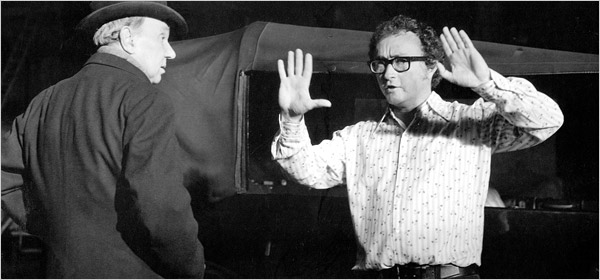 Gavin Muir and Curtis Harrington
Gavin Muir and Curtis Harrington
The film closes with the lines from Poe’s “Annabel Lee” that gave it its title: “And so, all the night-tide, I lie down by the side / Of my darling — my darling — my life and my bride, / In her sepulchre there by the sea — / In her tomb by the surrounding sea.”
So, what do we have here? Is Night Tide a brilliant achievement, a neglected masterpiece? You can judge for yourself (there’s a very nice print on YouTube, though there wasn’t several years ago when I bought my Kino Lorber Blu-ray), but it’s not necessary to go quite that far.
You don’t have to look very hard to find Night Tide’s defects. The story, as I said before (and as Harrington always acknowledged) borrows heavily from Cat People, which is a better, more original film, and even if you’re not familiar with the earlier movie, it’s not too difficult to see where the story is going (Captain Murdock’s big revelation isn’t much of a surprise); the dialogue is sometimes stilted, both in the writing and in the delivery by the actors, some of the supporting playing is erratic, and the mark of the low budget is visually evident in dozens of ways.
But many of these failings have a positive aspect, too. If you’re going to pick a model, Cat People is a strong one, and many of its virtues are evident in its successor, while the low budget compelled Harrington to stick to the commonplace in costumes and sets, giving the movie a much-needed grounding in everyday reality (while also permitting the director to concentrate on character rather than on special effects). Despite a few overtly arty touches, the black-and-white cinematography (much of which was shot at night), strongly conveys the darkness and moody ambiguity of the story. (The film’s flute-heavy jazz score by David Raskin is both a plus and a minus; sometimes it’s delicate, eerie, and just about perfect, while at other times it’s discordantly, distractingly obtrusive.)
Perhaps the film’s greatest assets are Dennis Hopper and Linda Lawson. Both were experienced television actors in 1960, but Night Tide was the first movie lead for both of them, and the awkwardness and uncertainty that are sometimes detectable in their performances actually suit their characters very well. Hopper is convincingly shy and callow (a “fair young man, innocent and searching” as the Tarot reader calls him); his yearning for human contact comes across as touchingly genuine. (At the beginning of the movie, Johnny has some pictures taken in an automated photo booth; he puts his hat on, takes it off, smiles, looks serious… and then tucks the pictures into his pocket and walks away. He has no one to give them to.)
Linda Lawson, despite not being gifted with a very expressive voice, nicely coveys a loneliness and a consciousness of being separated from “normal” people that matches Johnny’s intense desire to connect with someone; she makes the lost, doomed Mora a moving, tragic figure.
Night Tide uses its limited resources to try for something different than the usual rubber-monster-on-the-loose quickie; it’s a mood piece in which feeling and atmosphere are more important than plot, a poetic, offbeat combination of fantasy and horror and mystery, wrapped around an ill-starred, very human love story. In some ways it’s almost an amateur film, but it’s none the worse for that. (Remember that one meaning of amateur is someone who does something just for the love of it.) The movie has a unique flavor, sweet and sad, and for all of its (understandable and forgivable) deficiencies, it lingers in the mind; it gets under your skin.
You can always recognize a film that was truly important to the people who made it, and Night Tide is one of those; clearly, it wasn’t just another job to Curtis Harrington, Dennis Hopper, Linda Lawson, and the rest of the people who worked on it — it meant something to them. If you give it a chance — say late some lonely night — you might find that this old, odd little movie has come to mean something to you, too.
Thomas Parker is a native Southern Californian and a lifelong science fiction, fantasy, and mystery fan. When not corrupting the next generation as a fourth grade teacher, he collects Roger Corman movies, Silver Age comic books, Ace doubles, and despairing looks from his wife. His last article for us was The Eccentric’s Bookshelf: Michael Weldon’s Psychotronic Encyclopedia of Film
The Baby Dragon Café - Book Review by Voodoo Bride
 The Baby Dragon Café (The Baby Dragon #1)by A.T. Qureshi
The Baby Dragon Café (The Baby Dragon #1)by A.T. QureshiWhat is it about:When Saphira opened up her café for baby dragons and their humans, she wasn’t expecting it to be so difficult to keep the fires burning. It turns out, young dragons are not the best magical animals to keep in a café, and replacing all that burnt furniture is costing Saphira more than she can afford from selling dragon-roasted coffee.
Aiden is a local gardener, and local heart-throb, more interested in his plants than actually spending time with his disobedient baby dragon. When Aiden walks into Saphira’s café, he has a genius idea – he'll ask Saphira to train his baby dragon, and he'll pay her enough to keep the café afloat.
Saphira’s happy-go-lucky attitude doesn’t seem to do anything but irritate the grumpy-but-gorgeous Aiden, except that everywhere she goes, she finds him there. But can this dragon café owner turn her fortunes around, and maybe find love along the way?
What did Voodoo Bride think of it:This could have been more than it was.
Don't get me wrong:I liked the romance. Once again it was grumpy/sunshine, and I really liked the grumpy Aiden. He's more of an introvert than actually grumpy, I have to say. I totally read this book start to finish to see him get the girl and happiness.
It was the world building and the dragons that didn't vibe for me. I felt like the author didn't really know if the dragons were pets or beings that had similar intelligence as humans. The baby dragons felt really off because of that. I also thought the café wasn't used enough in the story. It was more a starting point than something the book revolved around.
The writing style was nice enough, but didn't draw me in. I was not bored enough to stop reading, and not entertained enough to glue myself to the book.
All in all a nice enough read, but I won't be reading other books in this series/world.
Why should you read it:Grumpy, introverted gardener.
Book Review: When the Wolf Comes Home by Nat Cassidy
I received a review copy from the publisher. This does not affect the contents of my review and all opinions are my own.
 When the Wolf Comes Home by Nat Cassidy
When the Wolf Comes Home by Nat Cassidy
Mogsy’s Rating: 4.5 of 5 stars
Genre: Horror
Series: Stand Alone
Publisher: Tor Nightfire (April 22, 2025)
Length: 304 pages
Author Information: Website
I have to admit, the first time I read Nat Cassidy with Nestlings, my feelings were mixed. But boy, am I glad I gave his work another chance, because When the Wolf Comes Home was a trip that went straight for the jugular. It’s horror that masks itself as a traditional werewolf tale, but what you’ll find instead is a raw and emotionally charged story that goes much deeper than that.
Plot-wise, the story follows a young Los Angeles woman named Jessa Bailey who has reached a dead-end in her acting career and is currently trying to make ends meet by working at a dingy diner. After experiencing a traumatic health scare, she makes her way back home feeling anxious and dazed, only to have her night turned upside down a second time when she discovers a terrified little boy hiding in the bushes outside her apartment. After getting him inside and squared away some clothes and food, she gets his story—or most of it, anyway, before they are attacked by a monster. The beast, which looks half man and half wolf, proceeds to tear through the building and kill many of its residents, and Jess and her new charge only barely manage to escape.
It soon becomes clear that the monster is hunting the boy, but that’s not all that’s coming after them. Certain elements in the government are also interested in getting their hands on him, and a Special Agent named Michael Santos has been tasked to track him down on behalf of a secret organization. Jess has no idea why so many people are desperate to find the boy, but the longer she spends with him, the more she realizes he’s special. Strange and uncanny things seem to happen around him, which Jess finds disturbing and hard to believe. However, once she is named as a person of interest in the attack on her apartment, their fates become intertwined. With no one else to turn to, Jess becomes the boy’s protector and his only chance of survival.
When the Wolf Comes Home is the kind of novel that would translate well to the big screen, with cinematic writing that moves at a fast clip and a story with plenty of action and just the right amount of emotional resonance. But while a film adaptation of this book would undoubtedly be a horror movie, simply because of all the gore and terror, I also think it would be a lot more complicated. As the plot progresses, the surface peels back to reveal several layers of meaning. Our protagonist Jess is deeply flawed and unsure of herself, still feeling raw from the pain of losing her estranged father whom she’s never forgiven for abandoning her. The story’s themes hit hard when you realize the monster chasing her is more than a creature of folklore.
There’s also a surreal quality here that I wasn’t sure what to make of, initially. There were certainly scenes that bordered on sheer absurdity, and I confess, when the first of these scenes hit, my regard for the novel dropped considerably. But this was before I realized how integral these moments were to the big picture. Without spoiling anything, these distortions to reality are directly related to the mystery surrounding the boy and the ideas underpinning the entire story. I couldn’t possibly hold the surrealism against the book after that and even started to enjoy these moments when they added a spot of humor to an otherwise bleak premise.
And truly, most of this book is dark. Sometimes it gets too dark, and you wonder how much more our characters can afford to lose and still manage to keep their hope and sanity. There’s a heaviness that borders on exhausting, and so perhaps it is not surprising that my main complaint lies in the ending. At times, when I’m feeling generous, I think to myself that there’s no other way things could have played out. But when I’m in a more critical mood, I feel like the pacing was all wrong. If nothing else, the novel probably should have ended soon after the climax and not have such a long denouement.
Still, When the Wolf Comes Home is a fantastic read, and a standout in horror fiction. In fact, it easily ranks as one of the most memorable horror novels I’ve read in recent years. When you pick up the book, look at its cover and read its title, you’d be forgiven for thinking this is just another werewolf story. I know that’s what I thought at first. But instead, what Nat Cassidy has delivered here is entirely his own: a wild and weird blend of tension, chills, and heartbreak. It simply works.
![]()
![]()
Swordfights, Mysteries, and Dark Sorcery: Solomon Kane: The Serpent Ring #1 by Patrick Zircher
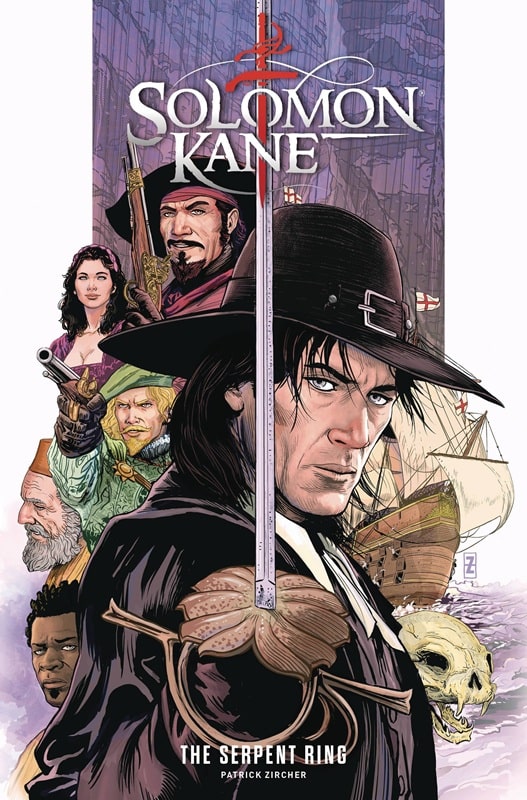
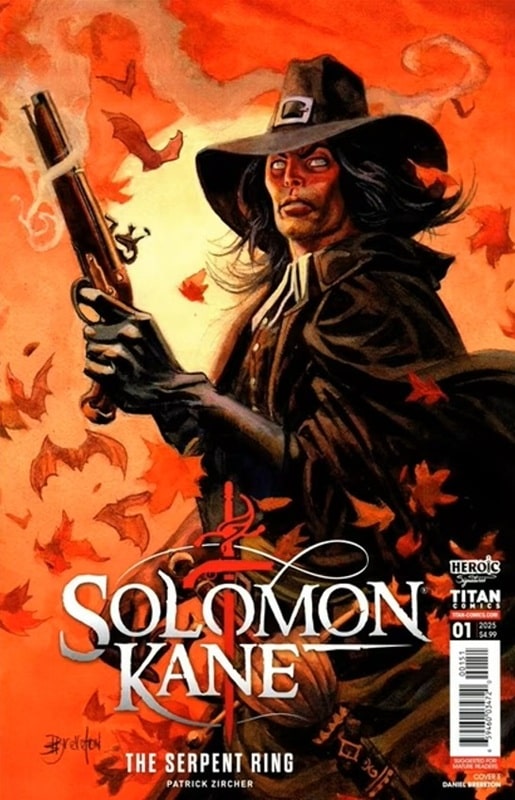
Solomon Kane: The Serpent Ring #1, and variant cover by Daniel Brereton (Titan Comics, March 26, 2025)
Sometimes a project and a creator are brought together in the right place at the right time. Titan Comics’ Solomon Kane mini series The Serpent Ring is one of those times. Writer/Artist Patrick Zircher is working at the very top of his game. The project is dear to his heart, and it shows.
The first issue begins, fittingly enough, in Africa. This would have pleased Kane’s creator Robert E. Howard, because some of REH’s best Kane tales, “The Footfalls Within,” “The Hills of the Dead,” “Wings in the Night,” etc, take place on that continent.
[Click the images to ring in bigger versions.]
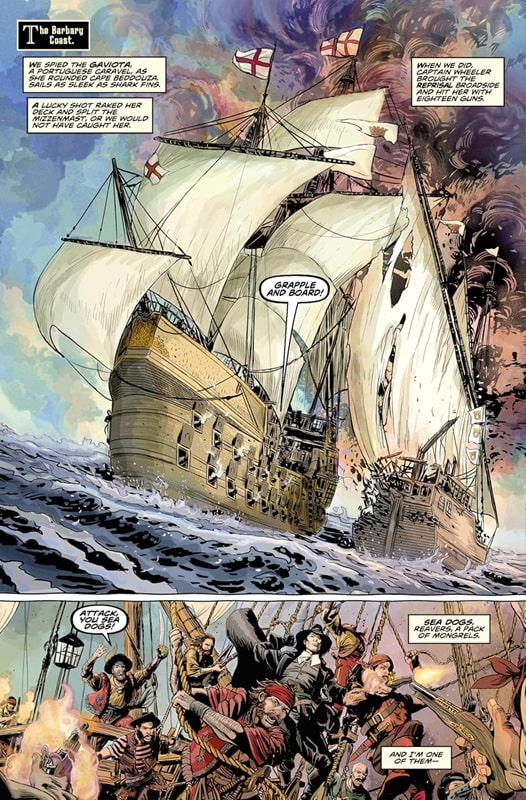
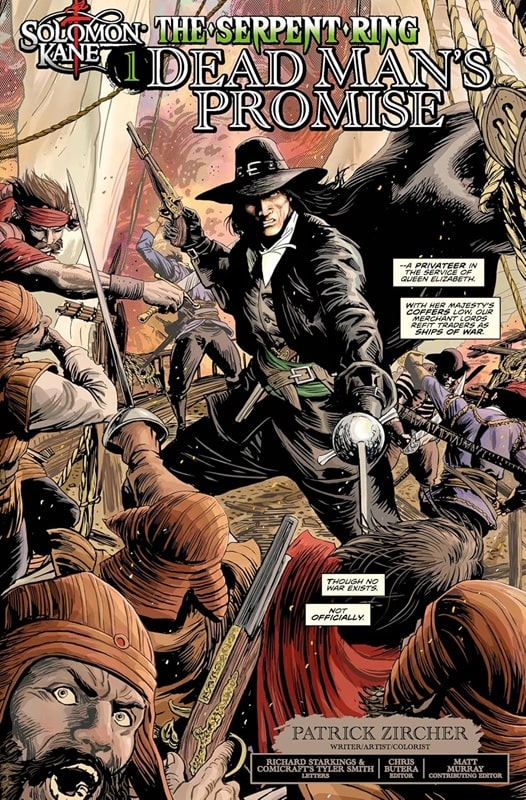
Interior art for Solomon Kane: The Serpent Ring #1 by Patrick Zircher
The first few pages of the comic are a prologue introducing some mysterious characters and incidents. We pick up with Solomon Kane three pages later, serving with a band of Queen Elizabeth’s privateers. Kane and his companions are in a pitched battle with the crew of a Spanish ship.
In an unfortunate occurrence Kane kills a passenger, ‘an innocent man,’ and makes a promise to the dying man to atone for his mistake. This sets the main plot in motion and Kane’s quest will take him from the Barbary Coast to Italy. On the way there will be swordfights, pistol battles, mysteries added to mysteries, and intimations of dark sorcery.
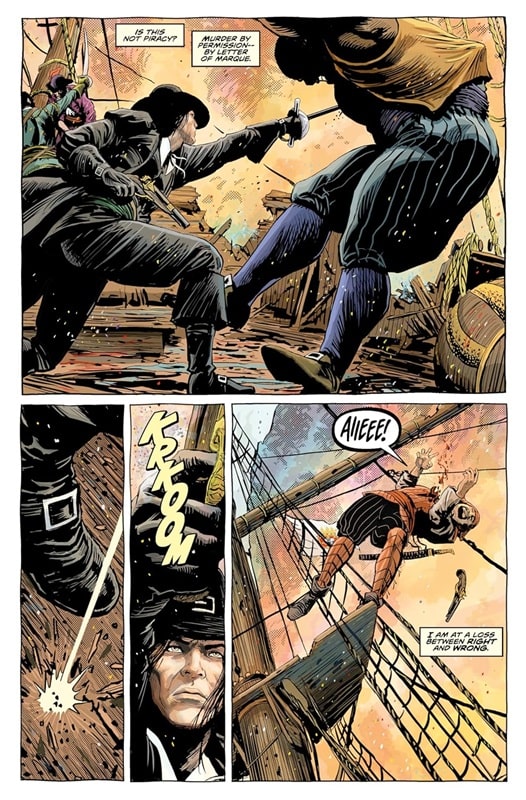
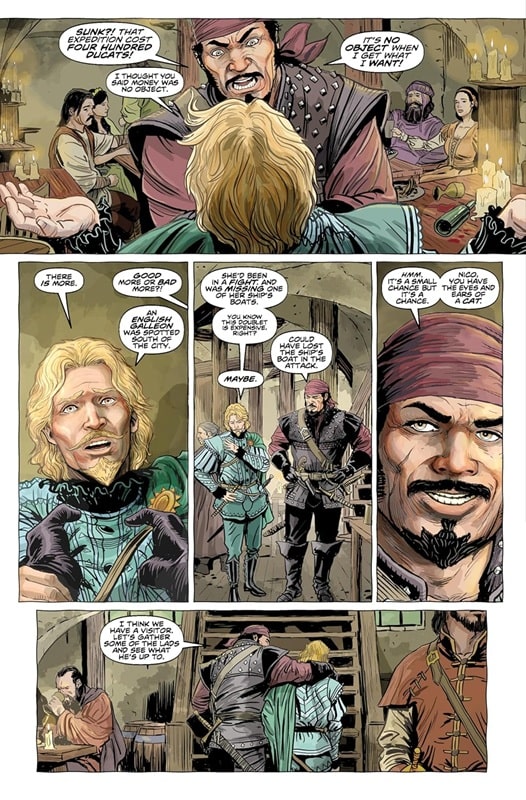
More interior art for Solomon Kane: The Serpent Ring #1 by Patrick Zircher
That’s all the plot I’ll give away, because you should read it for yourself, so let me talk a bit instead about Patrick Zircher’s work on the comic. Having spoken to Patrick online a good bit, I know this is one of his favorite comics he’s ever worked on. He’s a huge fan of Solomon Kane and it really comes through on the pages.
The story has an epic feel as it ranges around Europe, and a large cast of characters. All of that is well researched and beautifully illustrated, be it sailing ships or the streets of Napoli and Venice. Period costumes, weapons, and people are all extremely well done.

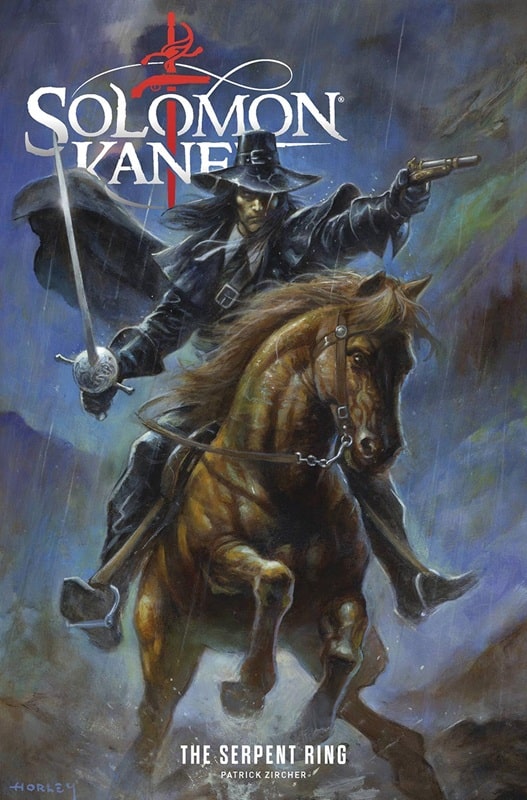
Issues #2 and #3 of Solomon Kane: The Serpent Ring. Covers by Rafael Kayanan and Alex Horley
For the Robert E. Howard fan this is prime stuff, Solomon Kane drawn and written by someone who loves the character and the world. It’s very much in the spirit of Howard’s work. I asked Patrick for a quote about his feelings working on the book and he said:
Solomon Kane embodies, in one character, what I love in stories. Action, adventure, suspense, horror, heroism, and wrestling with the ‘big questions’ of life.
Can’t ask for more than that.
Charles R. Rutledge lives in Atlanta, Georgia. This is his first article for Black Gate.
Women in SF&F Month: International Giveaway
I’m giving away one book of the winner’s choice for Women in SF&F Month today! Since there were some US-only giveaways earlier this month, this giveaway is for everyone else (though there are a few caveats given international shipping). Here’s how it works: You can choose your own adventure from the books/authors featured this month available on Kennys Bookshop, and I will ship the winner the book of their choice. This giveaway is open to anyone on the list of […]
The post Women in SF&F Month: International Giveaway first appeared on Fantasy Cafe.Oaths & Vengeance cover reveal
Teaser Tuesdays - A World Alone
Zombies! Very excited about diving into this one.
 THERE'S ONE IN THE HOUSE. The dragging thump of footsteps, somewhere downstairs, is what tips me off.
THERE'S ONE IN THE HOUSE. The dragging thump of footsteps, somewhere downstairs, is what tips me off.(page 1, A World Alone by R.K. Weir)
---------
Teaser Tuesdays is a weekly bookish meme, previously hosted by MizB of Should Be Reading. Anyone can play along! Just do the following: - Grab your current read - Open to a random page - Share two (2) “teaser” sentences from somewhere on that page BE CAREFUL NOT TO INCLUDE SPOILERS! (make sure that what you share doesn’t give too much away! You don’t want to ruin the book for others!) - Share the title & author, too, so that other TT participants can add the book to their TBR Lists if they like your teasers!
GUEST POST: What Fantasy Monsters Reveal about Our Deepest Fears by Caroline R.
 (Hyperion Japanese cover art)
(Hyperion Japanese cover art)Despite the genre’s escapist premise, fantasy literature often hosts cutting commentary on real-world issues. The monsters that terrorize these tales—from mythical beasts like the Kraken to the eerie walkers of today’s The Walking Dead—can symbolize humanity’s deepest fears and our most naked vulnerabilities. Through these creatures, fantasy stories have always held a mirror to the shifting anxieties of their eras. As an avid fantasy reader who worries constantly about our collective future, I’m interested in how fantasy monsters represent universal alarm—and how the stories that harbor these monsters continue to fulfill our ever-increasing need for escapist media.
The earliest mythical monsters in human history stemmed from the need to explain mysterious natural phenomena. The creatures of ancient myths often embody our most basic, physical fears: the violence other species, the destruction wrought by severe weather, humanity’s defenselessness against unthinking and uncontrollable natural forces. In ancient Greece, for instance, all meteorological occurrences—from prosperous harvests to devastating floods—were thought to be the direct result of godly intervention. The Greek gods were alternately merciless monsters and generous benefactors; they both caused and exacerbated humans’ powerlessness.
Some of the beings that populated classical myths were more straightforwardly monstrous, and these too represented fears inherent to human existence: the Minotaur, trapped in a labyrinth alone, represents the violent parts of human nature that emerge with isolation. The serpent-like hydra, with its multiple heads, could be said to embody chaos—the uncontrollable force of natural disasters, perhaps, or the seeming inevitability of war.
Many of these monsters can also be linked to moral and religious narratives. The Minotaur’s defeat by the hero Theseus could be said to symbolize the triumph of virtue over vice, a theme that appeared in ancient mythology and remains popular in fantasy literature today. The hydra, which is often associated with Ares, the god of war, sometimes represented punishment for moral failings, reminding us that ignoring religious or ethical obligations could trigger disastrous punishments. Thus, these early myths used monsters not only to explain the natural world, but also to prop up a moral framework.
 (THESEUS AND THE MINOTAUR by Barret Chapman)
(THESEUS AND THE MINOTAUR by Barret Chapman)As exploration and colonialism brought unfamiliar cultures into contact with each other for the first time, new fantasy monsters emerged to account for explorers’ fear of the unknown. Fantasy monsters developed during this era often symbolized the threats posed by unfamiliar territories, cultures, and species, embodying anxieties about difference. The Kraken of Nordic folklore offers an excellent example. A colossal, squid-like creature, the Kraken could pull down ships with its powerful tentacles. For European sailors during the Age of Exploration, the mythological Kraken symbolized the very real danger of the open sea.
Other fabled monsters were developed during this era to represent the indigenous peoples of colonized lands Ogres, cannibalistic giants, and other “savage” human-like creatures populated stories like The Travels of Sir John Mandeville, a fictional 14th-century travelogue that describes various monstrous beings believed to inhibit the New World. These "monstrous races”, which include “dog-headed Cynocephales” and “one-legged Sciapods”, mirrored appearance-based prejudices against native peoples.
Unlike the religious mythology of classical societies, stories that emerged during this era were more explicitly fictional. The fictional form gave writers license to exaggerate stereotypes that portrayed indigenous people as grotesque barbarians, reinforcing the fear and misunderstanding that often accompanied encounters between European explorers and native populations. This fear was not only of physical harm, but also of contamination wrought by cultural difference. Narratives of the time often portrayed European explorers or settlers as the heroic figures who, by defeating these monsters, demonstrated the superiority of their culture and values.
As we’ve seen, the development of fantastical monsters has always been rooted in real fears. This continues today, with fantastical monsters in literature reflecting the complex existential woes of modern people. As technology has advanced, social structures and global concerns have shifted, and so too have the monsters that embody these concerns. Now, many fantasy monsters represent common fears of environmental degradation, political collapse, and social injustice.

One compelling example of this is Blood Over Bright Haven by M.L. Wang. The story’s villain—who I won’t reveal, since you should read the book yourself—causes the protagonist to wonder whether she can trust anyone. The villain’s conniving manipulation, and the unjust magical system of the setting, both parallel modern distrust in authority and misuse of power.
In many modern fantasy narratives, the villains represent worst-case scenarios that humanity dreads: unchecked corruption (represented by the Darkling from Shadow and Bone), fear of being forgotten (represented by the veil in The Invisible Life of Addie LaRue) and the devastation wrought by modern warfare (represented by the tyrants in The Poppy War). These creatures mirror real-world fears and anxieties, but the narratives where they appear often provide a kind of hope—usually, despite the worst, the protagonists of these stories emerge victorious and some form of justice is served.
Those happy endings are what allow modern fantasy to maintain its escapist allure, even when it contains allusions to very real social ills. Generally, fantasy books and series end with something of a happy conclusion: the protagonist tends to vanquish the monster; the world tends to return to some semblance of order; the villains tend to end up dead or exiled. In a world where these just endings are so rare, reading fantasy allows us to indulge in satisfying depictions of the justice we don’t see in real life.
Thus, fantasy’s use of realistic monsters does not betray its escapist properties, but bolsters them. It wouldn’t be interesting to read about a world in which everything is perfect all the time, but it can be exciting and validating to read about a world in which grit and determination can lead to meaningful social change.
The journey from ancient myth to modern fantasy reflects a shift in our relationship to reality. In early mythologies, monsters were believed to be real, physical embodiment of the unknown and unexplainable forces of nature. They were creatures to be respected and feared, forcing humans to recognize the limits of their knowledge and physical ability. As our understanding of the world expanded, these monsters were gradually relegated to the realm of fiction, appearing in explicitly fictional narratives that allowed us to confront our fears from a safer distance. While most people no longer believe in dragons or sea monster, their symbolic power hasn’t been diminished.
The monsters that populate fantasy literature have always been imaginative and otherworldly, but their significance goes far beyond simple escapism or entertainment. Through these creatures, and the characters’ reactions to their violence, fantasy can often elucidate something insightful about the real world. From the ancient monsters that represented natural threats to the modern creatures that reflect existential dread, fantastical villains can all teach us something about the most profound aspect of the human condition. They give voice to the darkness within and without, reflecting both evolving external threats and timeless internal struggles.
But, despite the terrifying nature of these creatures, the genre itself remains fundamentally optimistic, offering visions of triumph against every kind of evil. While the real world often feals messy and unjust, these stories offer a reassuring sense of order. Many of us feel powerless to confront the monsters we encounter every day—the dangers of unchecked authority, the collapse of social systems, and the degradation of the environment, to name a few—but fantasy provides a safe space to confront these fears.
At their core, fantasy monsters aren’t just symbols of our fears—they’re also reflections of the human condition. They show us the darkness we often try to ignore, but also offer hope that, despite our vulnerabilities and flaws, we can overcome existential challenges. By confronting these monsters in stories led by fearless protagonists, we learn more about our own fears—and how we can rise above them.

Author bio: Caroline is a writer for Reedsy and NowNovel who covers everything from the nitty-gritty of the writing process to the business of finding ghostwriting jobs. When she isn’t writing, Caroline loves reading indie books and spending time outdoors.
Book review: When the Moon Hits Your Eye by John Scalzi

Book links:
ABOUT THE AUTHOR:
Publisher: Length: Formats:
The moon turns into cheese. Not metaphorically. Not in a dream. Like, literally. One day it’s the regular rock-ball we all know and ignore, and the next, it’s dairy. That’s the book. That’s the premise. I rolled my eyes too. But then I started reading, and - well, I ended up liking it more than I thought I would. More than I probably should’ve, honestly.
This is John Scalzi doing what he does best - taking a totally absurd idea and running with it. The moon becomes cheese (type undetermined). People react. Some panic, some scheme, some try to monetize it, some go to church. And through it all, Scalzi’s trademark mix of snark, satire, and sneaky emotional depth holds the whole gooey mess together.
There’s not really a central protagonist here-unless you count humanity in general, or maybe capitalism. Instead, we bounce around between a rotating cast of scientists, astronauts, cheese mongers, billionaire tech bros, diner regulars, and one very cursed Saturday Night Live episode. It's like a disaster movie crossed with a sociology paper, but funnier and with more dairy puns.
The plot meander a a bit and I admit I did I lose track of a few characters. But the short chapters kept things moving, and there’s something irresistible about how this book doesn’t try to be anything other than what it is: a ridiculous thought experiment with a surprising amount of insights into human behavior.
If you’ve read Kaiju Preservation Society or Starter Villain and enjoyed the vibes, you’ll probably enjoy this one too. If you haven’t, but the idea of “slice-of-life apocalypse, but make it cheese” sounds appealing, you might be in for a good time. Just don’t come in expecting hard sci-fi. This is soft cheese fiction. And that’s kind of the point.

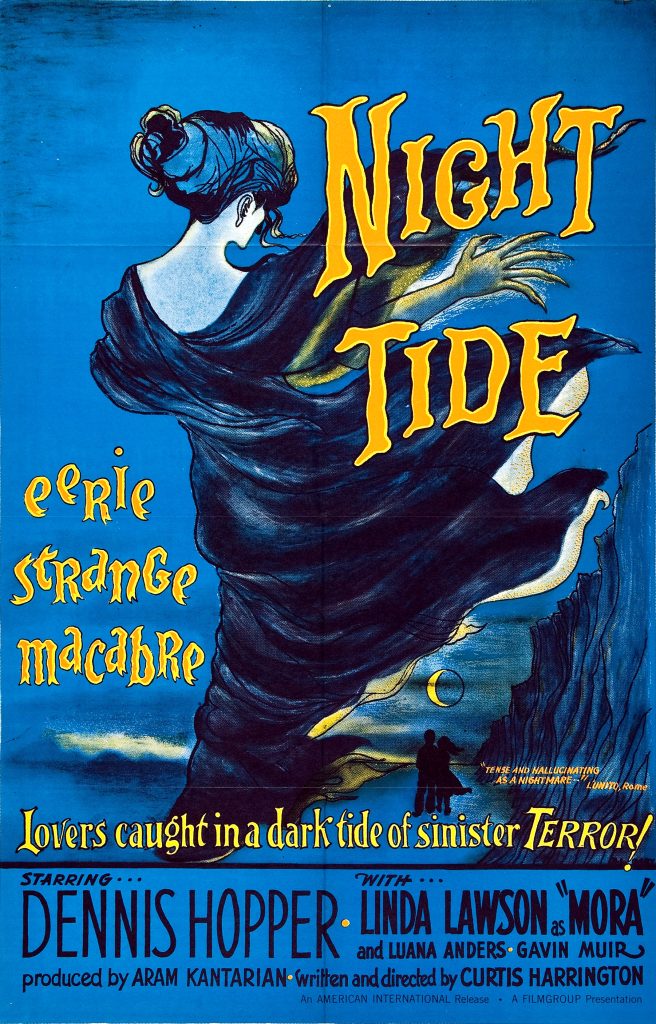

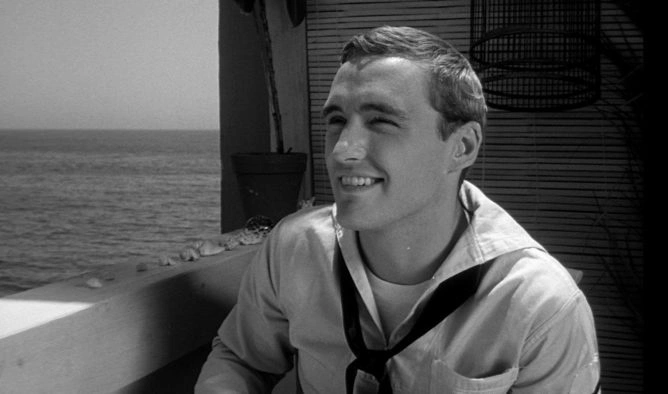
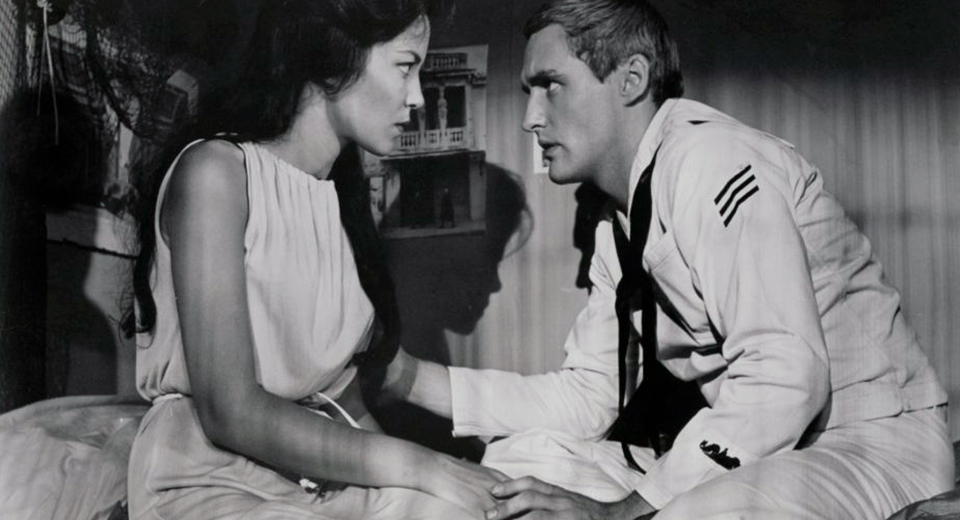
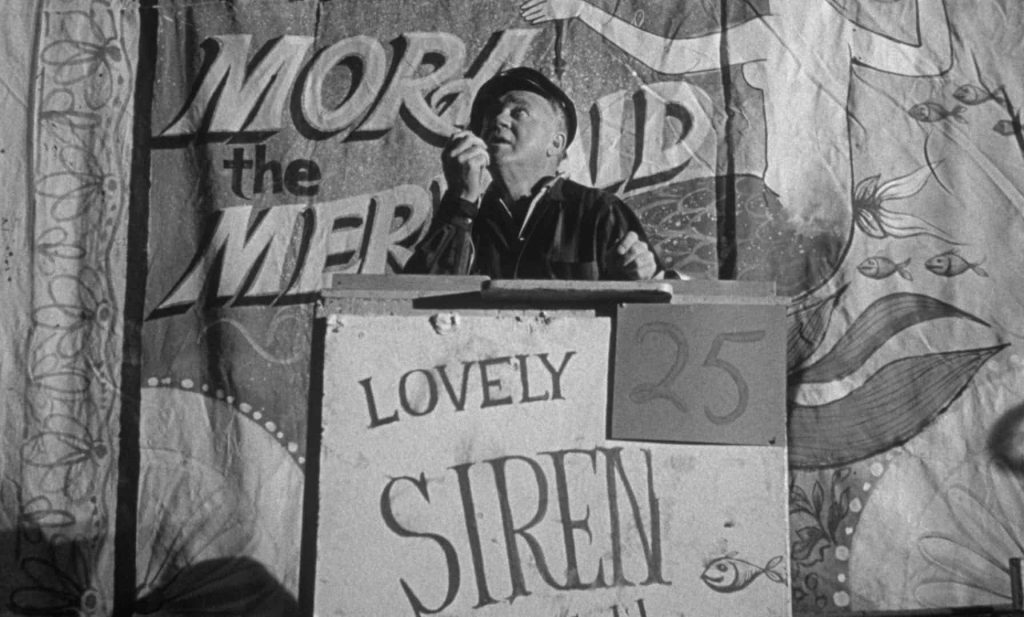
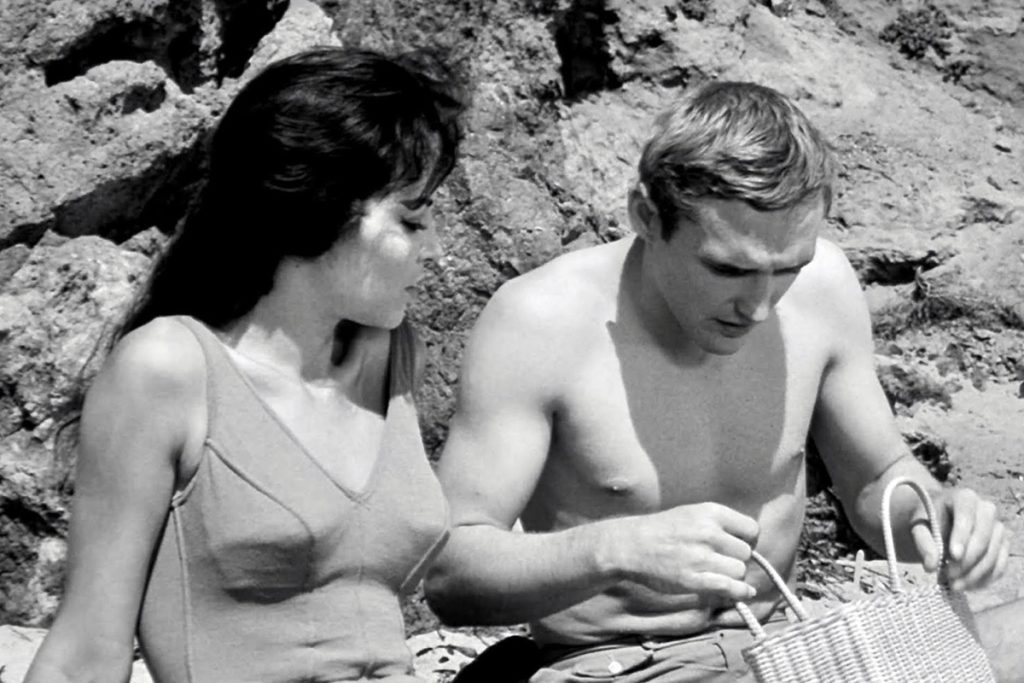
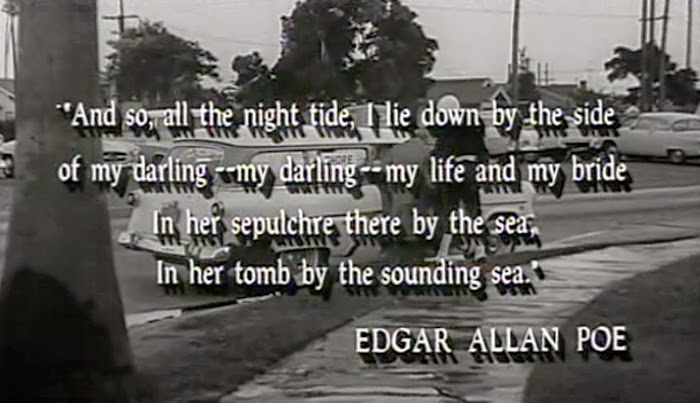
Recent comments